




















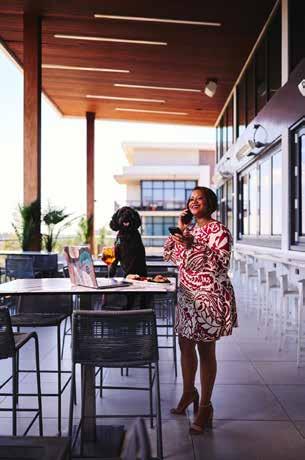



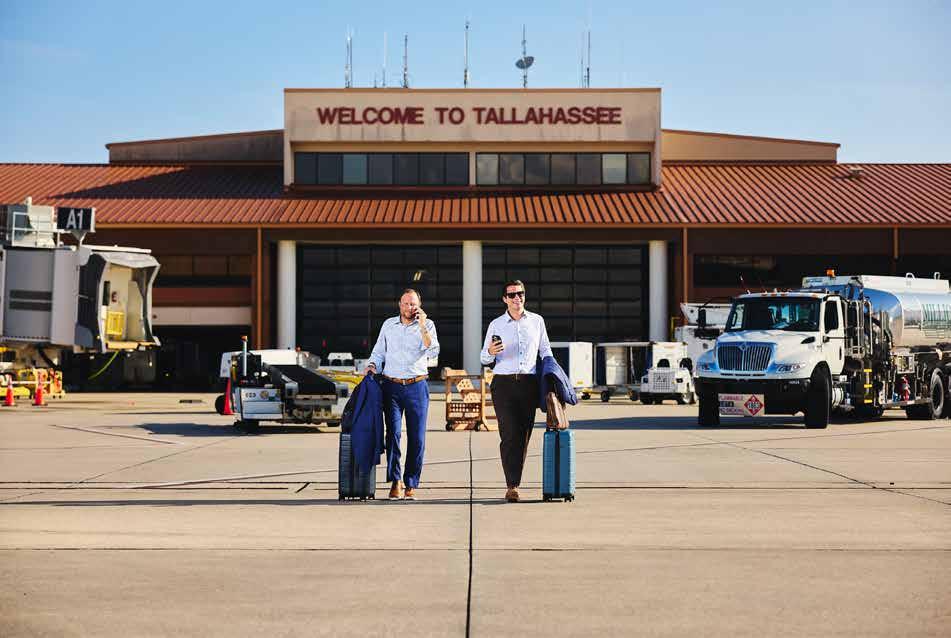



There is no more important role that government plays than to ensure the safety and health of its citizens. Jared Torres is an expert advocate thoroughly versed in the policy that governs these critical sectors. With decades of government experience at the highest levels, Jared is the guide that America’s premier companies rely upon to help them navigate these challenging and lucrative policy siloes. When the stakes are high and the margin for error is small, Jared is the expert who stands ready to protect your interests.
This edition of INFLUENCE is unexpectedly, and tragically, timely. Many of us Floridians just experienced one of the most harrowing experiences of our lives, if not the most. Catastrophic flooding has obliterated entire homes, swept boats out to sea (or into neighbors’ yards), turned cars into boats and set homes ablaze.
Hardest hit areas in the Big Bend have seen entire towns wiped out from Category 4 force winds.
This edition features the Great Communicators — people whose job it is to provide information and create communication strategies on behalf of clients, for local governments or nonprofits, or in the media — and the theme is “always on.”
That’s because, as Great Communicators in various parts of The Process, these honorees answer the call of duty whenever and wherever. And here’s a case in point.
As Floridians were preparing to evacuate, I spoke with one of our honorees, who told me they were evacuating with three things: their family, their gun and their Starlink. That third item is a necessity in the world of communication strategy because it provides connectivity even when the power goes out, when phones go dead or when the internet fails. That means they were bringing along the Elon Musk-created gadget so they could not only keep their family safe, but so they could keep in touch with clients and ensure work still got done.
It’s a perfect example of the “always on” that dominates The Process.
None of this year’s Great Communicators, nor any who have earned the honor in the past or will in the future, work banker’s hours. So we set out to illustrate each honoree’s “always on” with creative photo shoots meant to highlight how when duty calls, you answer even if it’s at a kid’s baseball game, high tea in London or on the golf course.
And while I think these are some of the best images we’ve ever featured in INFLUENCE Magazine, because they are so real, I also think this year’s theme effectively captures how, despite Herculean efforts to constantly serve clients, organizations and/or people, these Great Communicators are also striking an important balance between work and personal life. Sometimes they’re so good at it, the two areas merge. After all, most in The Process spend so much time with colleagues, they become just like family.
In this edition, you’ll also find so many important features, including a sit-down with Simone Marstiller, one of my favorite people in The Process, and probably one of yours, too. The profile catalogs her fascinating story of finding success in a highly competitive and driven field, and it sets an example for the future leaders in Tallahassee.
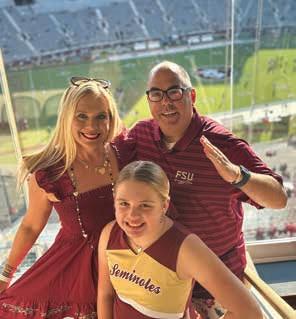
We also feature efforts to bring film incentives back to Jacksonville — a perennial debate if ever there was one — and how one communications pro trekked to the roof of Africa and then made a documentary about it (talk about always on!).
Our Great Communicators are listed in no particular order. Each offered personal tales of striking that elusive work/life balance, how they learned to be great communicators and other interesting tidbits you’ll want to read about. That includes Max and Adam Goodman, brothers who work separately but who both shared stories of how their father — himself an ace communicator — shaped their professional strategies.
The Florida Politics and INFLUENCE Magazine team are already hard at work for our highly anticipated biannual special feature — INFLUENCE 150, a rundown of the most influential people in Florida Politics. You can already submit nominations to Peter@FloridaPolitics.com.
In the meantime, I hope you will join Michelle, Ella and me in looking to the horizon for all of the possibilities that adversity brings. Our prayers are with those recovering, and our hope for the future is bright. After all, the sense of community and hospitality that emerges after any tragedy is always inspiring, and Helene has not been any different.
Our Great Communicators will no doubt keep telling you all about it.
Peter Schorsch Publisher Peter@FloridaPolitics.com


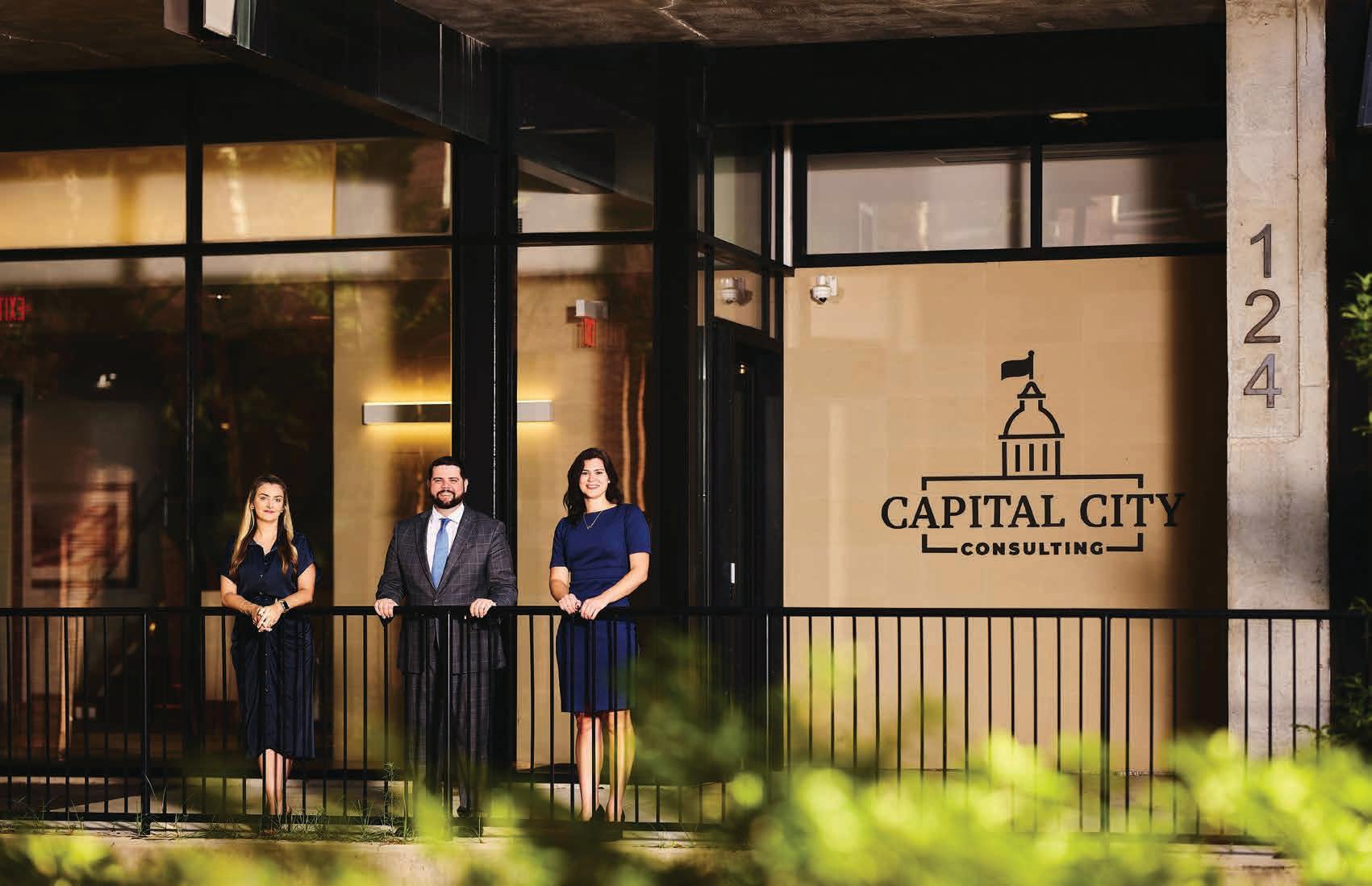
our influence just got

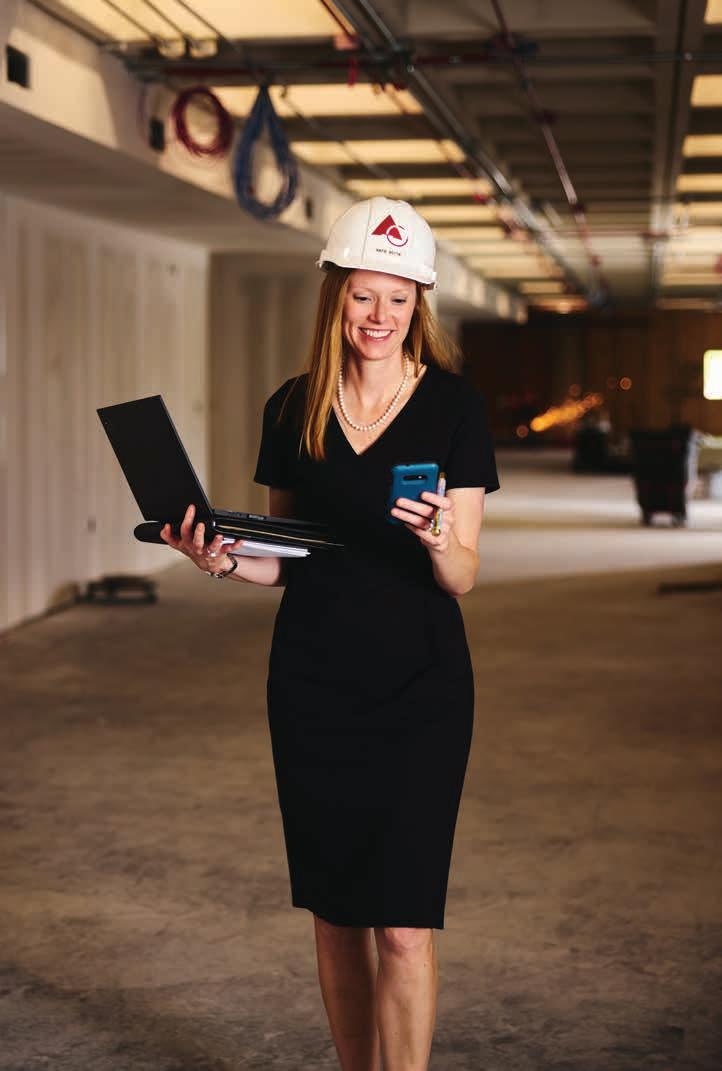
INFLUENCE reached out to more than 40 of Florida’s top coms people in The Process to quiz them about having a job where you’re “always on” and there’s nothing “typical” about a typical day. They were also forthcoming about what it takes to balance work with a personal life. Hint: Starlink helps.
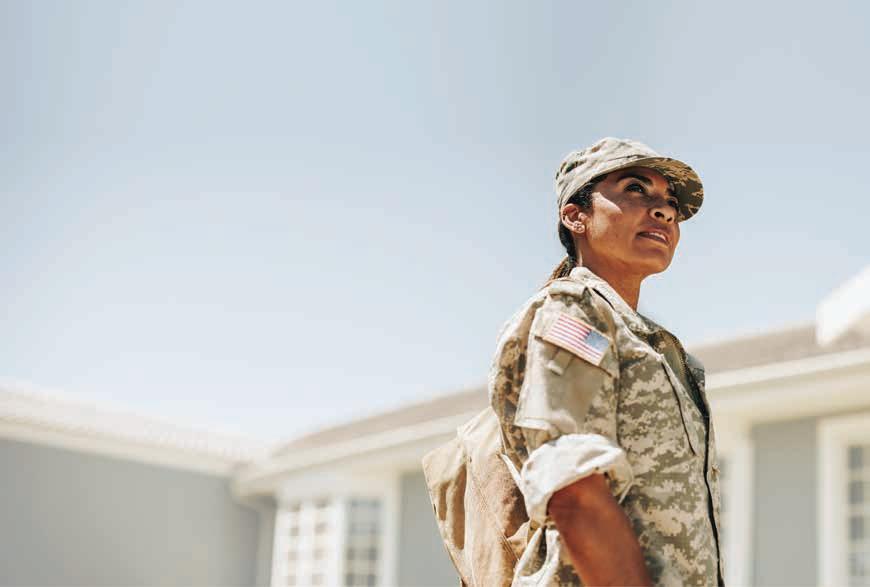
We’ve all thanked a veteran in one way or another. At the airport, in a parade, through a donation. As well we should. America’s military veterans didn’t just volunteer—they set aside years of their lives to defend our country, its values, and its allies. These 18 million men and women represent an essential strength of the U.S., embodying the nation’s spirit of public service, courage, selflessness, and leadership. Upon their return to civilian life, some service members transition easily, transferring their skills to civilian jobs and reentering the embrace of their families and communities. But this is not the case for all veterans. Many bring back with them traumas and injuries—physical or mental—that can last a lifetime.
When veterans can’t access the help they need, we all suffer— veterans and their families most of all. Those who need support deserve to be treated with respect by the nation for which they have sacrificed so much. In short, those who served deserve to be served.
Philip Morris International (PMI) has launched a nationwide initiative to empower the veterans community and support these men and women through national and local programs. We are sponsoring organizations with a track record of improving veterans’ lives, partnering with law schools in select communities to help veterans access benefits, and supporting military veterans and their spouses as we expand our business across the U.S.
Individually and collectively, we have an opportunity to do something meaningful for America’s veterans. Working together, with an eye to the future, we can deliver measurable progress so all veterans have a fair shot at succeeding at home, at work, and in their communities.
See how we can better serve those who served DOWNLOAD THE WHITE PAPER
Three stories about moviemaking: One about communicator Preston Rudie’s trek to climb Mount Kilimanjaro and another, a biopic about Kionne McGhee’s transformation from Miami street kid to respected attorney and politician. The third outlines City Council member Rahman Johnson’s plan to incentivize film production companies to choose Jacksonville as a shooting location.
The Southern Group brings home the gold as Florida’s top-earning advocacy shop.
Four Florida children’s hospitals are collaborating to make the state a leader in pediatric cancer care.
Hoping to build a sense of community in his hometown, lobbyist Gene McGee is shifting career gears to operate Citrus County’s first distillery and tasting room, Aggregation Distillery Company.
Once again, The James Madison Institute hosted its Florida Tech and Innovation Summit for 2024 in June. Innovators and policymakers gathered for a day of presentations on the fast-moving, ever-changing world of technology, touching on hot topics such as Artificial Intelligence, cybersecurity, education, and expanding connectivity.

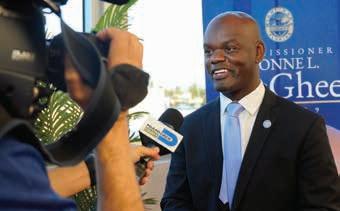
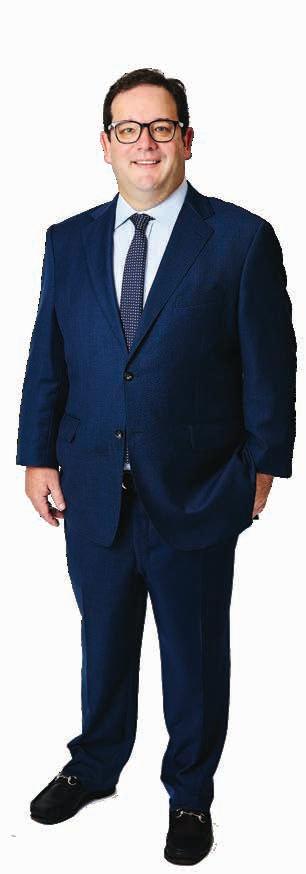
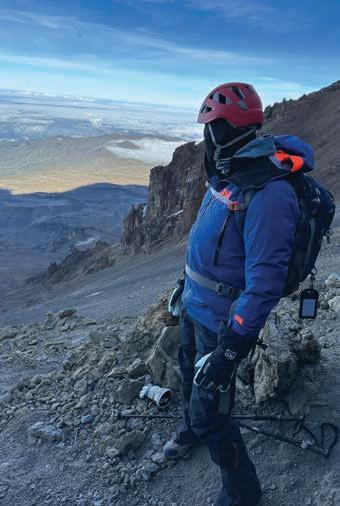


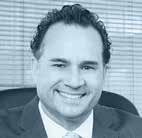
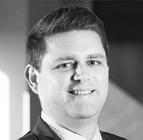

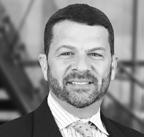

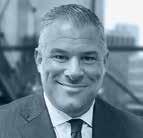
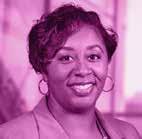
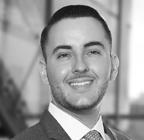
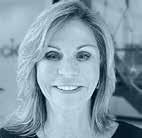
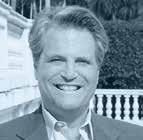
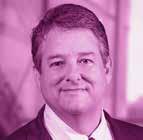
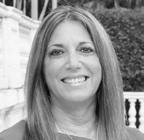
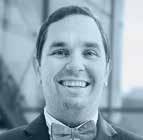
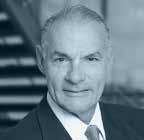


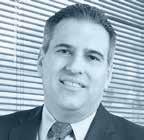
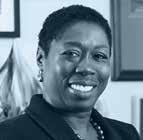

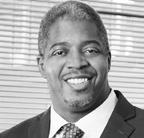
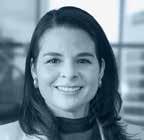
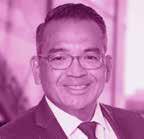
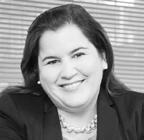




OCTOBER 21 - 22, 2024 | Hyatt Regency Grand Cypress | Orlando, FL

SECURING FLORIDA’S FUTURE: REGISTER TO ATTEND FLORIDA’S PREMIER ANNUAL BUSINESS LEADERS’ EVENT
Under the strategic direction of the Florida 2030 Blueprint, Florida is on its way to becoming the 10th largest economy in the world by 2030, poised for its businesses, residents, and communities to thrive along the way.
Register to join us for the 2024 Future of Florida Forum (F3) & Florida Chamber Annual Meeting, where leaders across Florida industries will discuss what the future of Florida looks like, what’s working, what’s not, and how we’re doing on our progress towards achieving the 39 future-focused goals of the Blueprint. This is an unmatched opportunity you won’t want to miss to network with your industry peers and policymakers, while learning how Florida’s trajectory will impact your organization.
Scan the QR code or visit flchm.co/F324 to learn more, register, and view our sponsorship opportunities.


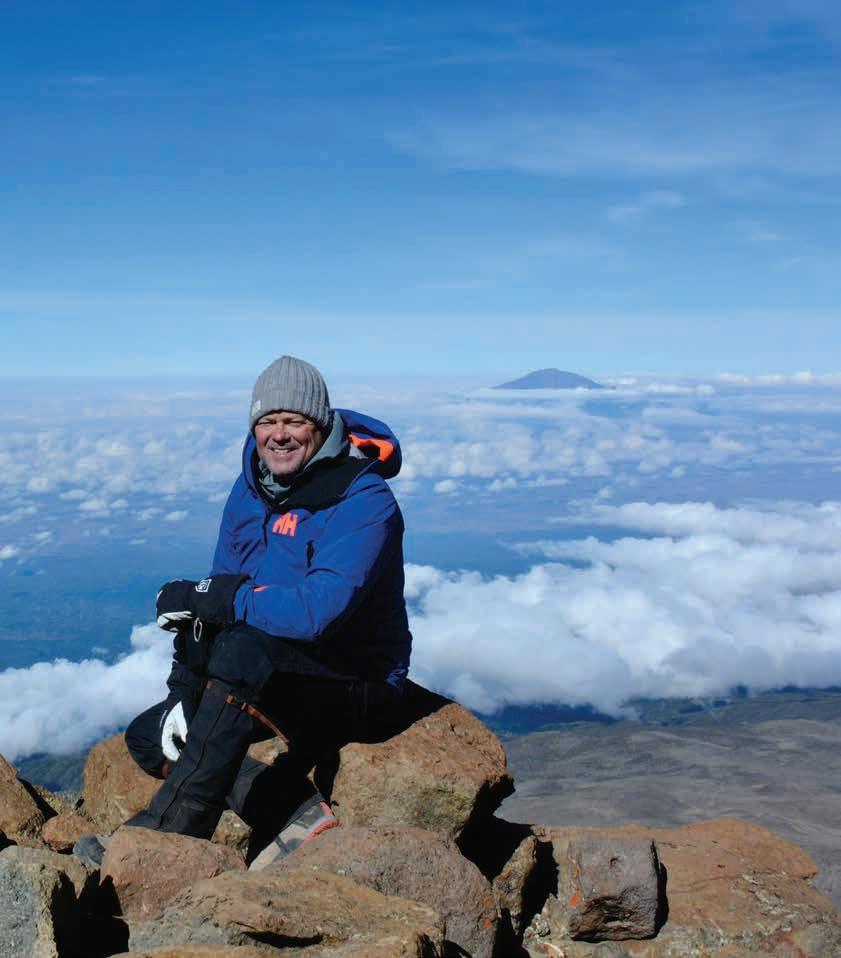
he’s not done
By Janelle Irwin Taylor
one of seven natural wonders of africa world’s highest single freestanding mountain above sea level tallest volcano eastern hemisphere conquered
Mount Kilimanjaro, lovingly nicknamed “Kili,” is one of the seven natural wonders of Africa, the world’s highest single free-standing mountain above sea level in the world, and the tallest volcano in the Eastern hemisphere.
Preston Rudie, a former award-winning television reporter-turned government Comms Director-turned comms shop owner, recently climbed it. And he made a documentary about it: “Conquering Kili — Why I climbed to the roof of Africa.”
Preston Rudie, a former award-winning broadcast journalist, summited Mount Kilimanjaro after traversing a route widely considered the toughest one. Why? To learn how to better disconnect and, of course, to send a powerful message of perseverance to his daughter.
“kili, she just lets you see her when she wants you to see her. you hear like, rockslides in the distance. it’s pretty daunting when you get up close to it...”
As one of the seven summits — the tallest mountains in each of the world’s seven continents — Kilimanjaro is considered the most obtainable, with guides available to help capture this iconic summit without the need of expert mountaineering skills.
Make no mistake though, it’s a physical and mental feat that requires both endurance and fortitude.
A 30-second trailer for the documentary offers a glimpse into Rudie’s experience.
“Kili, she just lets you see her when she wants you to see her. You hear like, rockslides in the distance. It’s pretty daunting when you get up close to it. You just can’t understand the sheer size of this mountain,” Rudie says while narrating the trailer.
If the trailer is a taste, the film itself is a feast of African wildlife, sweeping views of vistas and the brutal elements that make Kilimanjaro a famous trek for hiking enthusiasts.
There are several ways to summit Kili, and each hiker chooses a route and timeline based on their personal goals and abilities. Most summits are done in anywhere from five to nine days, with the success rates to summit increasing as the trek gets longer because a longer hike allows for better acclimatization.
Rudie chose the most challenging one, the Western Breach. Shortly after Rudie summited, the route was closed because it was deemed too dangerous. He chose a nine-day trek to the top. He was gone from his family — wife Veronica and daughter London — for a total of 19 days.
Summiting a mountain whose peak — Uhuru Peak — sits 19,341 feet above sea level presents a challenge for anyone, particularly someone coming to hike it from what is essentially sea level in Florida. That means it required extensive conditioning and mental preparation.
It’s not a feat most people care to undertake, and those who do — anywhere between 30,000 and 50,000 people per year — usually have a reason to do so. For Rudie, there were two reasons.
The first was to “take back control” of his life.
“I hear this from so many clients and friends, especially those in the C-suite. We aren’t good at creating a healthy work/life balance,” Rudie said. “So in order for me to do this trip, I had to carve out the time for myself. That was hard at first, but I eventually accepted and understood that it was OK to go to the gym in the morning and start my workday at 9 a.m. instead of 7:30.”
The other reason: His daughter.
“I also wanted to show my daughter that when you put your mind to something and work hard, anything is possible,” he said.
That’s also one of the reasons he decided to make a documentary of his experience. He said if no one watches it besides her, he’d be fine with that, because the message is mostly for her. It’s a story of perseverance and determination, traits he wants his daughter to hone and appreciate.
And when she watches, she’ll see her dad put in the work and find success, despite adversity.
Before his trip, Rudie’s training routine was a big time in-
vestment. He worked out at Orangetheory three to four times per week. On days when he wasn’t working out there, he walked 3 to 5 miles. He changed his diet, cutting out sodas and replacing unhealthy snacks with healthier options.
“I ended up dropping 18 pounds and mentally left with the right mindset,” Rudie said.
What his daughter might not notice is the other investment the trip took: money.
“I became one of REI’s best customers,” Rudie joked.
But in all seriousness, he might just have been their best customer at that time. He didn’t have the clothes or equipment for such a trip. The climate is unpredictable on Kili, requiring different articles of clothing for different climates. There are daypacks, gear packs, base layers, top layers, hats, gloves, gaiters, trekking poles, sleeping bags, hiking boots, specialty moisture-wicking socks, and so much more.
Rudie used Kiliwarrior Expeditions to guide his trek, and he hiked with some strangers and a couple of friends who decided to join just a month before he was set to depart. The company is one of few that specialize in the Western Breach route, which it
Preston Rudie surveys his climb on a nine-day trek to the summit of Mount Kilimanjaro along the mountain’s most difficult route to the top.
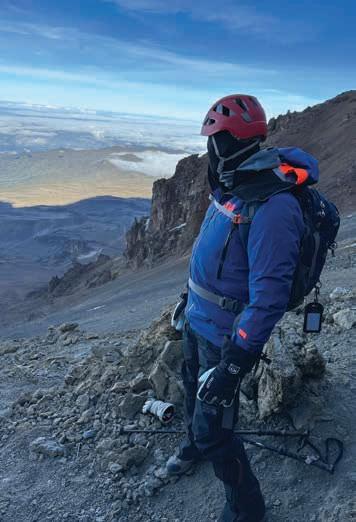

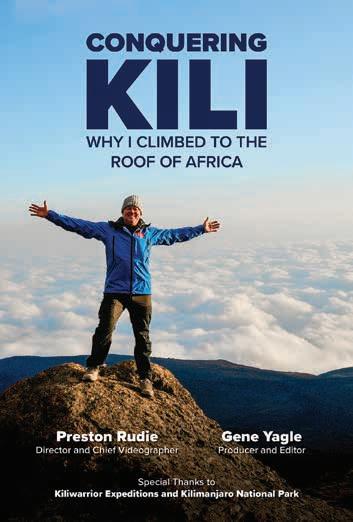
describes as “a rarity and trove for more advanced climbers.”
It also offers a nine-day trek using the Lemosho Northern Circuit, a nine-day hike using the Lemosho-Barafu route, and a seven-day trek using the Machame route.
In the world of hiking and mountaineering, those experienced will tell you it’s often an exercise for the mind as much as for the body. Fighting the altitude and elevation gain for several days takes its toll on the body, and persevering requires mental fortitude.
For Rudie, he said there were never any times he wanted to give up, but he said it was definitely taxing.
“I was injured from overtraining and that made it more difficult,” he said. “But I was able to manage the pain and discomfort with a few shots of Toradol and Ibuprofen. That said, I certainly had moments during summit day where I was surprised how quickly I felt exhausted.”
He described that day — the day he reached Uhuru Peak and captured the iconic summit photo next to the wooden signpost with yellow lettering — as including “a few 10-minute breaks.” But even with those breaks, he said the fatigue came roaring back after just a minute or two of resuming the climb.
“You just felt wiped out, but you pushed through,” he said. The experience, Rudie said, solidified his commitment to work/life balance, and it turned him into a bit of a climbing junkie. In January, Rudie is planning another trek, this time to climb three
volcanoes in Ecuador that will require basic mountaineering skills. For the uninitiated, that’s the use of things like crampons, ice picks and ropes. The Ecuador trip will include summiting Cotopaxi, a 19,347-foot peak that barely edges out Kilimanjaro in altitude.
Later, Rudie’s goal is to climb Aconcagua in 2026. As the tallest mountain in South America, it would be Rudie’s second of the seven summits. Aconcagua is the tallest mountain in the world outside the Himalayas, where Mount Everest is located. Aconcagua is nicknamed the “Mountain of Death” and has a summit success rate of just 30%.
For now, Rudie is still reveling in his Kili success and looking forward to his next adventure in Ecuador in a few months.
“From the friendships forged to the experience of being in nature and alone with your thoughts, I found my time on Kili to be healthy and cathartic,” he said.
Left: A movie poster advertising Preston Rudie’s documentary shows him celebrating an epic ascent to one of the tallest mountains in the world, and the tallest in Africa. Below: At the summit of Mount Kilimanjaro, Uhuru Peak, with a Tampa Bay Lightning flag.
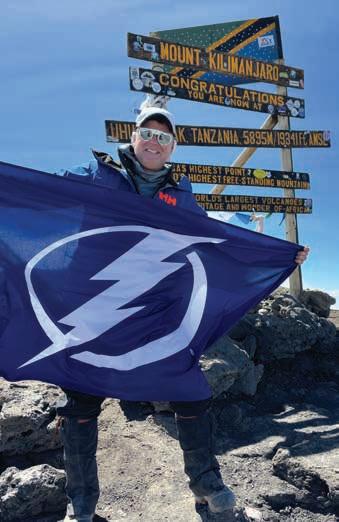

When the stakes are high, balance is the key.
What you do in a challenging situation depends on the circumstances and what you’re trying to accomplish. You need to be strategic to get the right results. Tucker/Hall is the strategic communications firm that can help you develop customized, balanced solutions so you can reach your goal – especially when the stakes are the highest.
Clay Hollis, Tampa 863 397-0702
Towson Fraser, Tallahassee 850 443-1444
Tampa | Tallahassee | Jacksonville | Orlando

By Jesse Sheckner

Miami-Dade County Commissioner Kionne McGhee isn’t out of mountains to climb.
He survived a traumatic, impoverished childhood that led many others down a dark path. He escaped it, turned his life around and earned a law degree, working first as a prosecutor, then as a defense attorney, before embarking on a successful political career.
Now he’s had a movie made about his early life: “The Reject,” a feature-length film that just headlined the Urban Film Festival in Miami.
The picture, directed by Bla G and Yonel Aris and produced by Marco Molinet and rapper-actor Romeo Miller, is based on McGhee’s autobiography, “A Mer[e] I Can is American.” It depicts McGhee’s formative years living in public housing in a dangerous Miami-Dade neighborhood, when he was labeled “emotionally handicapped” in school, struggled with dyslexia, and risked expulsion due to truancy and prison time due to brushes with the law he’d later practice.
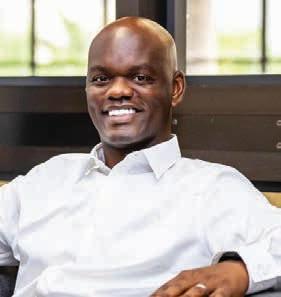
Then, he course-corrected with the help of strong mentorship and personal will.
“The Reject” is a celebration of that journey. Yes, it examines the trauma people in marginalized communities face: poverty, violence, a broken education system.
“Yet this film isn’t just about trauma,” said McGhee, who served for eight years in the Florida House, two of them as Democratic Minority Leader.
“It’s about post-traumatic growth, the power to rise after hardship and find strength in places of deep struggle,” he said.
McGhee noted that the film, which stars Kamal Ani-Bello as him and Miller in a supporting role as one of McGhee’s wrestling coaches, also explores neurodiversity “in a way that’s real and raw.”
“It’s about breaking down barriers, challenging the status quo, and giving voice to those who’ve been overlooked,” he said.
Tickets to screenings at the Urban Film Festival were free, and those for “The Reject” quickly ran out. Miller celebrated the early success on his Instagram page.
“We’re incredibly grateful for all the support and thank you to everyone who secured their spot,” he said. “This is going to be an incredible night.”
Molinet, a childhood friend of McGhee’s with more than a dozen credits on IMDB, told the Miami Herald “The Reject” was shot in eight days on a shoestring budget. He said most of the film’s funding came through Miller.
The two co-stars, Miller and Ani-Bello, met at another Miami film festival in 2019 when Miller presented an award to the young actor, who at the time was participating in a youth program Molinet runs.
“He told Romeo: I’m going to work with you one day,” Molinet told the Herald. Five years later, they’re on screen together.
McGhee is still writing his story. In 2010, he ran for the Florida House and fell fewer than 400 votes shy of win-
ning. He won two years later.
During his time in the Legislature, he drew praise for his support of sensible gun control measures, increasing the minimum wage and for passing a measure to better protect homicide witnesses.
As he neared term limits in the House in 2020, he launched a successful bid for the Miami-Dade Commission, defeating one General Election opponent by an 8-point margin. He retained his District 9 seat unopposed in June.
McGhee said he hopes “The Reject” encourages people who have faced similar challenges to open up about and grow from their experiences.
“This is a story that gives hope to those who have been labeled, dismissed or deemed unworthy,” he said. “It’s about turning pain into purpose, refusing to be defined by the world’s limitations and recognizing the immense potential for growth in the aftermath of adversity.”
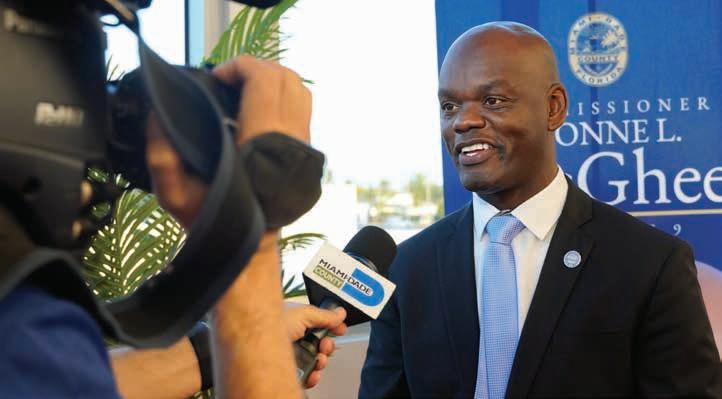

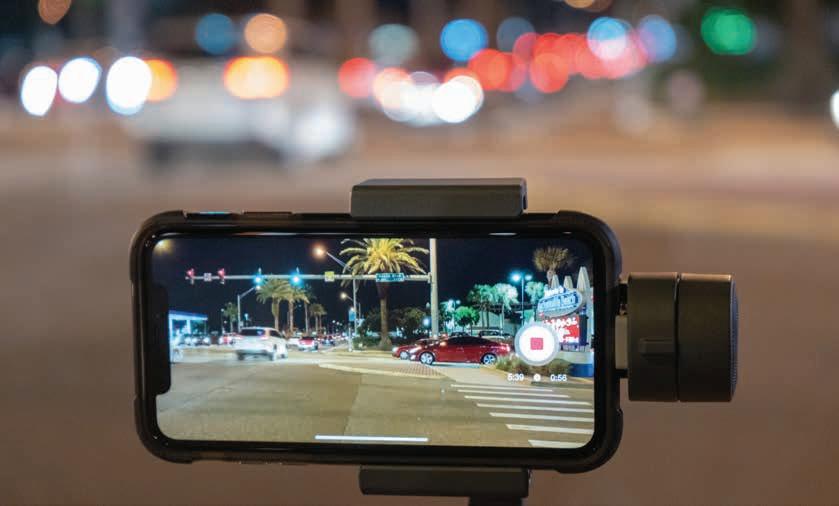
Jacksonville was once a thriving locale for big-budget films, and one City Council member wants to revive the industry.
Rahman Johnson, who represents Jacksonville’s 14th district on the West Side of town, was at the forefront of new programs to bring more film and television productions to the city. For Johnson, a Jacksonville native, it’s a calling.
“I wanted to make sure that we were able to support that community and possibly attract other (film and TV) productions,” Johnson said of his early days on Council. “Not only is it great for the film
By Drew Dixon
community here on the talent side, we have a lot of production people that live here who travel away to do the work.”
He said reviving the film industry locally would lend to a positive economic impact, but just as importantly, it would build a stronger cultural landscape.
It’s an endeavor close to Johnson’s heart. He’s a professional performer himself, and a member of the Screen Actors Guild and other film and television production associations. His resume reads like an impressive roll call of his performances. He’s an actor, a former news television an-
chor and former producer. He’s presented on entertainment hubs such as Nickelodeon and has appeared as an actor in several film and television productions.
Similar to his own back-and-forth history with film and television, Johnson said he wants to resurrect and embolden Jacksonville’s history of film. Jacksonville, for the uninitiated, was one of the original hubs of filmmaking a century ago. A landscape with multiple choices of scenery and a temperate climate positioned Jacksonville as one of the main production centers for movies during the silent-film

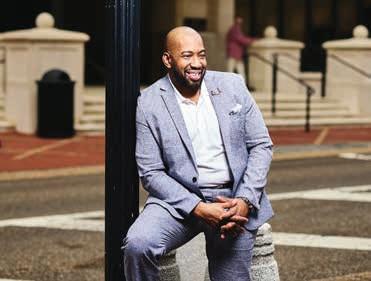

bureau hasn’t had enough support.
era of the early 20th century, according to Visitjacksonville.com.
But moral and cultural tension between the local residents and often flamboyant film industry crews, actors and support personnel eventually led to the movie business pulling up stakes from the North Florida metropolis and heading to Hollywood, which became the true mecca of movie making.
Jacksonville has had some high-profile returns from the film industry, including lasting and iconic movies such as the Creature from the Black Lagoon released in 1954 and the remake of the Manchurian Candidate, which Johnson appeared in, released in 2004, among other big-budget productions. But landing such productions is touch-and-go at best.
Johnson wants to return Jacksonville to a regular in the film industry. The City Council this year approved the Jacksonville Film & Television Program. The initiative provides performance-based rebates and other incentives for film and television productions that hire local workers, spend on local businesses and other business-related expenses when they produce those works in the city.
There are different tiers to the programs. One offers 15% rebates for productions that spend at least $400,000 in Duval County. Another tier provides for a 20% rebate for $1 million in expenditures on film or television productions. There’s a grant program to help foster filmmaking, too. (https://www.filmjax.com/incentive-program/film-television )
Johnson hopes to showcase Jacksonville’s possibilities, and prove Florida is positioned to be a power player in the
film industry.
He pointed out Florida is a right-to-work state and equipment and support material remain less expensive than other areas in the U.S. But Jacksonville is also in competition with Florida locales, with Orlando still serving as a hotbed for some productions.
The initial phase of the new program, approved in May, has gained some momentum. Jacksonville Mayor Donna Deegan is encouraged.
“These programs will allow Jacksonville to compete with other Florida cities who have similar programs, which will ultimately have a significant economic impact in our area,” Deegan said in a prepared statement shortly after the measure was given the green light.
But Johnson said there’s a reason Jacksonville was a key part of the fledgling film industry a century ago and he wants to get at least part of that relevance back.
“The beauty of this locale is that we’re between a river and an ocean. We’ve got all kinds of set locations,” Johnson said.
Johnson has worked on some productions in Orlando and on Florida’s Space Coast less than an hour east of Disney World. He said production expenses are still higher in those locations than in Jacksonville.
“The incentives that we have here won’t be in those other places. We have to show the film community that we support you being here,” Johnson said.
There has been a film and television recruitment bureau in Jacksonville for years, through filmjax.com. While Johnson acknowledged that’s important, he said the
“They’re trying to recruit here but they don’t have a lot to recruit with,” he said, adding he helped get appropriations of about $500,000 from the city in the previous year’s budget to provide more support.
But that was just the beginning and the new incentive programs will be much more proactive, Johnson said.
“This not only allows for larger-scale productions to come in, which means more people spending more money, but it also allows these larger productions to be able to bring in people from all over,” Johnson said. “This is an economic opportunity for our city to own this part of the industry.”
Johnson said JAX Chamber and its business development wing, JAXUSA Partnership, have made it obvious they want to expand the city’s business base. JAXUSA Partnership has scored many victories on that front, including with Amazon distribution centers, new natural gas businesses, and financial technology firms. He wants that same commitment to film and television, industries worth billions of dollars.
“This is a small amount that we can do, but it opens the door,” Johnson said, adding Louisiana became a regular film and television hub after the state upped its commitment to the industry following Hurricane Katrina in 2005.
“I think that Florida needs to do the same thing. Jacksonville, specifically, has a film office with the infrastructure there. It’s not just a one-or two-off. You may see only one or two films, but there are other short films, independent films and other projects that have been going on here consistently,” Johnson said.
Editor’s Note: Drew Dixon’s spouse is an employee in Mayor Donna Deegan’s administration.

(Including
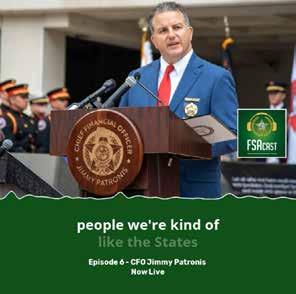
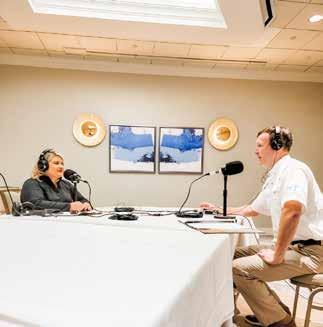
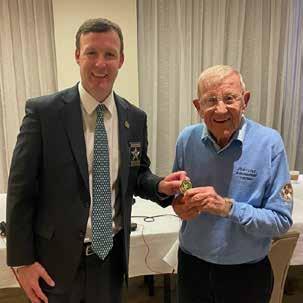
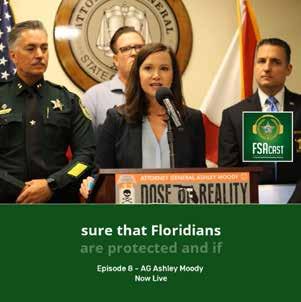
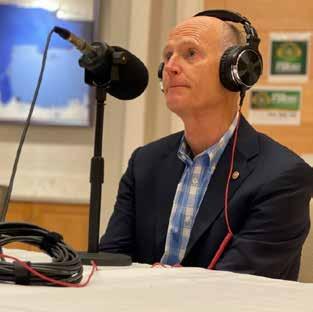
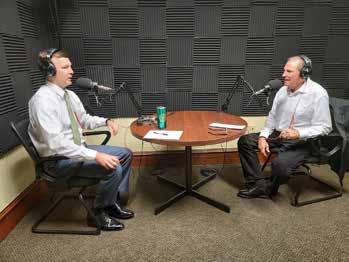





We’ll transform your data into insights.

1,400+ data consultants
Our are ready to help you build a modern approach that adapts at the speed of technology and drives Florida forward.


By Rosanne Dunkelberger
Ever since she was a newly minted graduate of the University of South Florida, Maya Brown has been participating in and advising campaigns for both candidates and nonprofits, as well as lobbying on their behalf.
Now 31 years old, the Founder and Principal Strategist of the Tampa-based consulting firm MB Strategies has a client list that skews liberal, focusing on “diverse
“Our firm believes that effective political engagement should be accessible to everyone, regardless of background or resources...”
candidates, diverse issues” that often begin with limited knowledge of The Process and even more limited resources.
To help these political neophytes, Brown has just released The Blueprint Shop, a suite of five downloadable, concise, budget-friendly workbooks. They cover topics such as research and planning, campaigning, cultivating community support, earned media and donor stewardship. There are
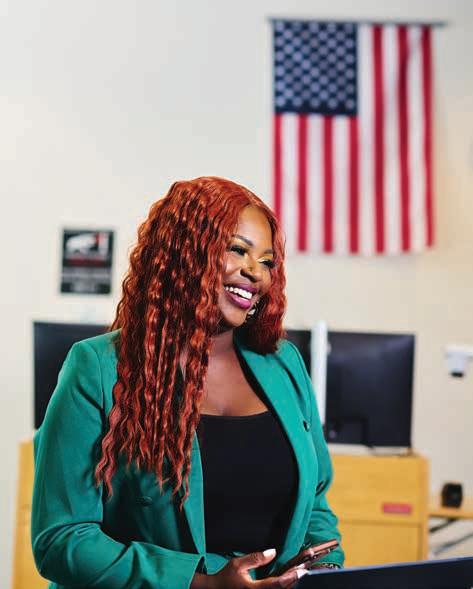
also spreadsheet templates to help track phone calls, cash, candidate petitions, donations and endorsements. The workbooks are priced at between $15 and $21, while the spreadsheets cost $5 to $16.
“Running a successful political campaign shouldn’t be reserved for a select few,” says Brown. “Our firm believes that effective political engagement should be accessible to everyone, regardless of background or resources. By providing comprehensive and user-friendly tools, we’re leveling the playing field and making expert campaign strategy accessible to everyone to ensure that anyone with the passion and drive to effect change can run and win campaigns.”
While the die is pretty much cast for the 2024 General Election, Brown says her workbooks are right on time for those who might be contemplating a run or a ballot initiative in future election cycles.
“I really want to be able to make sure that folks going into the 2026 cycle have this information at the ready,” she says. “So many times, contracts are signed and … six months out from Election Day, folks have already spent the bulk of their money on consultants and vendors with nothing to show for it and no money to actually communicate with voters.
“This is not a knock on the entire consultant class,” Brown continues. She is one, after all. “Because there are such scarce resources when it comes to funding Democratic or progressive races, how do we make sure we are maximizing the highest and best use of each dollar to make sure that we are translating that into votes?”
Brown has a proven track record of running successful campaigns, including the historic elections of House Minority Leader Fentrice Driskell, Florida’s first Black queer lawmaker Michele Rayner, and Hillsborough County’s first woman and Hispanic Tax Collector Nancy Millan. She was also involved in defeating Amendment 3 in the 2020 election, which would have created top-two primaries.
In addition to candidate campaigns, in this cycle MB Strategies is consulting with Ruth’s List Florida to support Amendment 4, a measure that would enshrine abortion protections into the state constitution. Brown was listed as a promising Florida Young Democrat by Florida Politics in 2016 when she led the Hillsborough Young Democrats and was named a Rising Star in the Winter 2021 issue of INFLUENCE Magazine.

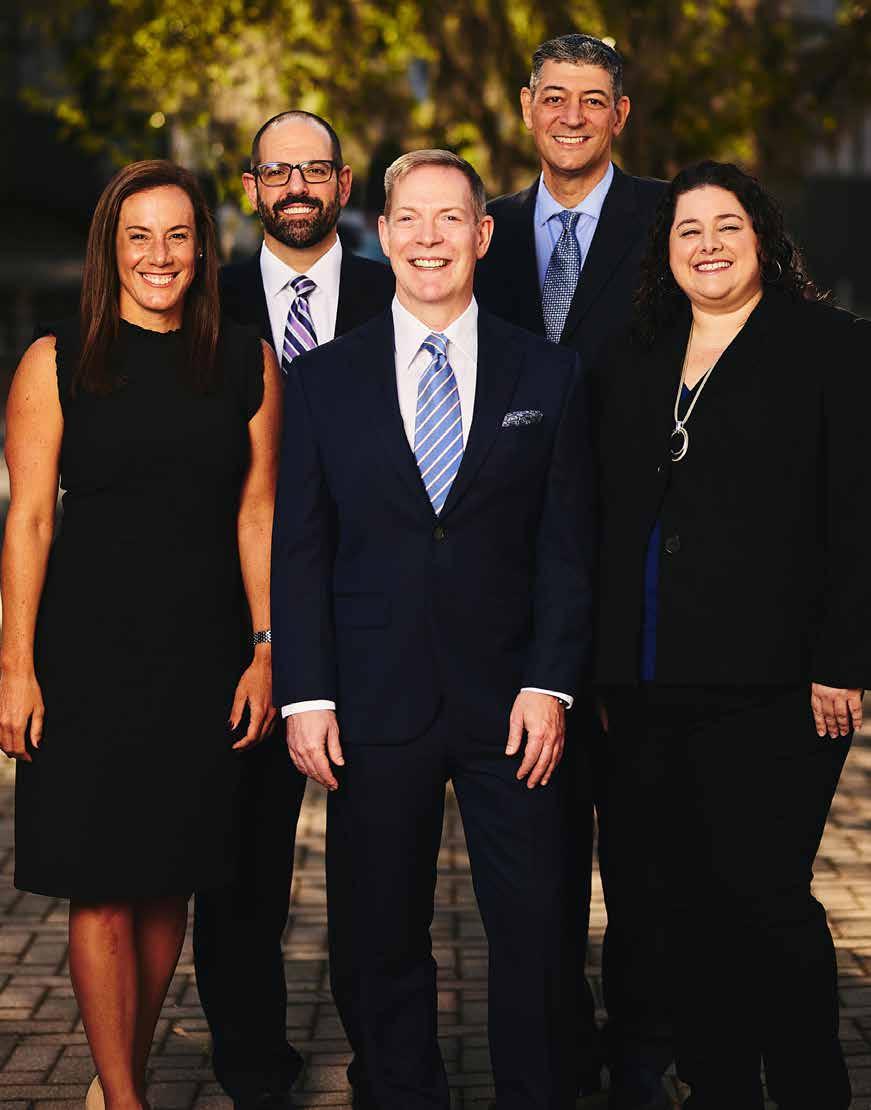

By Mike Wright Photography The Workmans

It’s 7 a.m., and Gene McGee is in fine spirits.
On the phone with an old friend, McGee recounts his last 30 years. From Citrus County Clerk of Courts to partner at Sunrise Consulting Group, he has seen and done plenty.
But his excitement doesn’t come from the career that’s winding down. It’s the one he’s kicking off that gets him fired up: Makin’ whiskey, vodka, gin, and rum.
McGee is a partner at Aggregation Distilling Company, which opened in April in Crystal River and seems to occupy most of his waking moments.
“It feels great,” he says of his new venture. “Lobbying is going to come to an end. I’m not in the distillery to make money. I want to help build a legacy that endures in this community. This has evolved into what I will work on when I retire. I’m in the transition phase.”
McGee, who turned 65 on Aug. 31, got his start in the public sector in 1988 when Citrus County Clerk of
Lobbyist Gene McGee is hoping to build a legacy in Crystal River with his partnership in Aggregation Distilling Company.
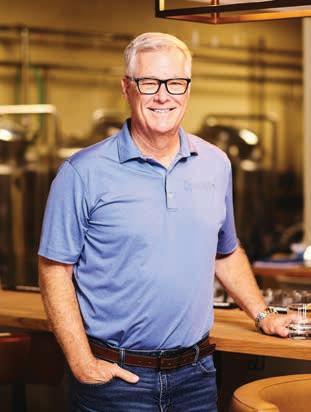

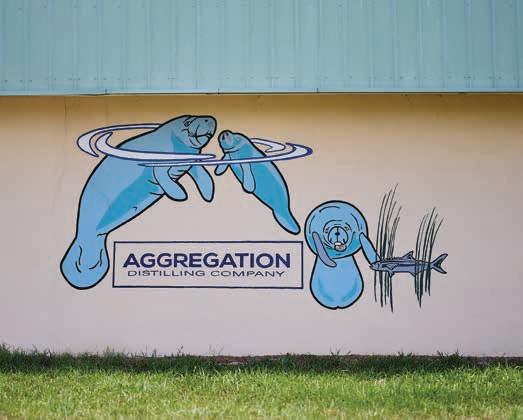
(Clockwise, from above) The company’s name refers to a group of manatees, which is Crystal River’s tourist attraction; the business distills vodka, kumquat vodka, rum, gin and kumquat gin; Aggregation labels feature artistic depiction of manatees; McGee partnered with Jim and Elaine Briley to form the distillery, which features a tasting room where patrons may buy drinks on site; McGee and Briley’s plans include expansion of the business on U.S. 19.
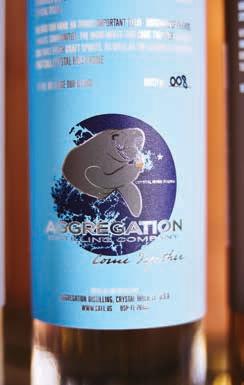
Courts candidate Betty Strifler walked into his print shop. McGee joined her campaign, got involved in county GOP politics, and helped Strifler become the first Republican elected to a Citrus County constitutional office.
His career took a turn after leading a walkout of Republicans against Pat Buchanan during a Hillsborough County Lincoln Day Dinner. The walkout made it to CNN, and Strifler was not amused.
McGee resigned and quickly began working with the Florida Republican Party in Tallahassee on legislative campaigns. That led to becoming a policy analyst for the party, and Legislative Affairs director for then-Secretary of State Sandra Mortham. He did that for four years, until Mortham lost re-election and McGee ventured out on his own.
“I helped elect most of the Republicans to the Legislature. I worked in the executive branch and ran campaigns. I had relationships with everybody. I was the perfect candidate to be a lobbyist,” he says. “These were the days when Republicans were just taking over. I was part of that takeover.”
McGee founded GMA Inc. in 1998. He attracted named clients such as Anheuser-Busch. He learned in business what he already knew: Relationships seal the deal.
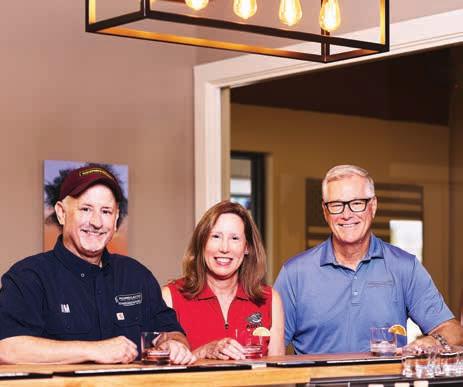
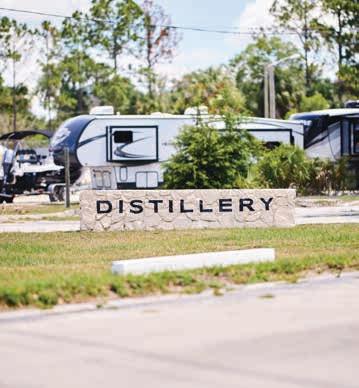
In 2022 he became a partner in Sunrise Consulting Group. He plans to retire from lobbying in two years.
“That’s made my entire career,” he says. “I never would have guessed Betty Strifler telling me to resign for a political stunt would be the best thing that could happen.”
“I wrote down some background information and fed it into Chat GPT,” McGee tells a friend in an email. “Don’t hate me.”
It reads:
“(McGee’s) journey began four years
much of the week in Burgundy, tasting wine and experiencing the culture. He reached a stunning revelation.
“It was attitude-changing for me. What you did was who you are. The guy who makes cheese, that’s the cheese guy and everyone knows it. I realized I don’t make anything. I don’t create anything. I just have relationships and influence people. I decided I wanted to create something,” McGee explains.
The McGees came home and Gene began making wine. It went well. He
site what they produce, not only bottled but individual drinks as well.
“I understood the alcohol beverage industry. I understood the days of big beer are declining,” McGee says. “It’s a highly competitive industry. Fractions of a percentage of market share mean a whole lot in the alcohol industry. Beer was declining overall, and more people are drinking spirits and wine. Younger people want cocktails.”
McGee and the Brileys — Jim’s son, David, is the head distiller — have undergone what they call “phase zero”
“... I DECIDED I WANTED TO create SOMETHING.”
ago when he partnered with Jim Briley, an international tax accountant with a background of turning around large companies. Together, they nurtured the vision of creating a distillery that not only produces high-quality spirits but also embodies the spirit of Crystal River (which) is the only place in North America where you can swim with manatees, and the distillery’s name, Aggregation, is inspired by this unique feature. A group of manatees is called an aggregation…”
So, here’s what happened: McGee and his wife Jennifer honeymooned five years ago in France. They spent
bottled some for friends. He was creating something.
At the same time, Briley sought investors for a craft distillery on property he owned on U.S. 19. McGee knew Briley’s dad, and when he heard of Jim’s plans, he jumped right in.
“His background is big beer. He knew all about it,” Briley says.
McGee’s knowledge related to spirits and beer. Mainly, that interest in craft breweries is waning, while excitement surrounding craft distilleries is on the rise. McGee knew that new laws would allow craft distilleries to sell on
by renovating an old building on site to get the business going. Eventual plans include a new distillery on the same site, along with expansions into beer, wine, food, and hosting independent singer/songwriters.
McGee may be a Tallahassee lobbyist, but his Citrus County roots are geared toward community service. Briley feels the same.
“He believes in it. The contacts and relationships he has can further that vision,” Briley says. “If I’m doing something in the community it has to be of the community. That’s why we went to
Jim and Elaine Briley knew Gene McGee was the perfect partner for a distillery. “His background is big beer. He knew all about it,” Jim Briley says.
the Chamber. Who are the key people who have contributed to this community? He has contacts with people who want to be a part of something bigger.”
McGee sees Aggregation Distillery Company (www.aggregationdistilling. com) as much more than a place to enjoy a locally produced cocktail, more than simply adding to the Citrus County economy, and more than easing from one career to another. To him, it’s much deeper.
“I get to have a positive effect on the community. We can be upstanding. We want to employ people. We want to be one of those companies that make Citrus County special,” he says. “There’s a real community here. A lot of people are like-minded. They understand you have to go above and beyond that for the community. There’s a group of
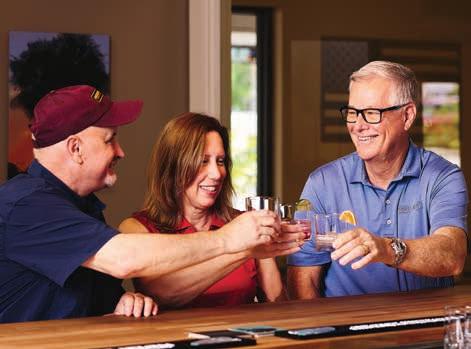
people who give a crap and get together, and we deal with it. That’s what I like about this.”
Before the conversation ends, Mc-
a rectal cancer survivor, tells his friend: “I’ve never been happier. Truly, as a person, I’ve never known this level of happiness.”
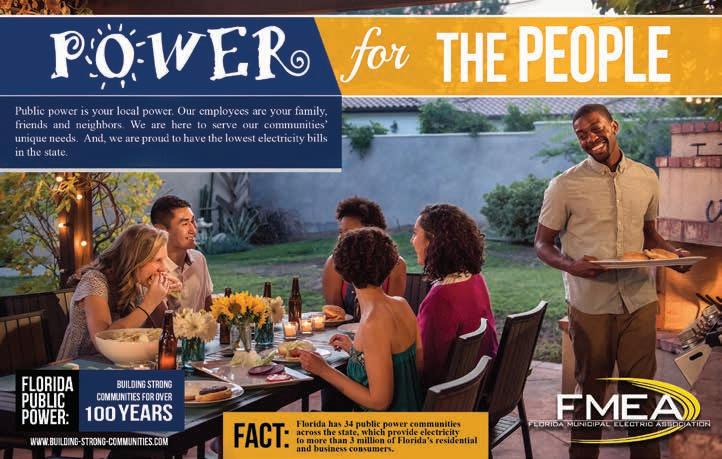


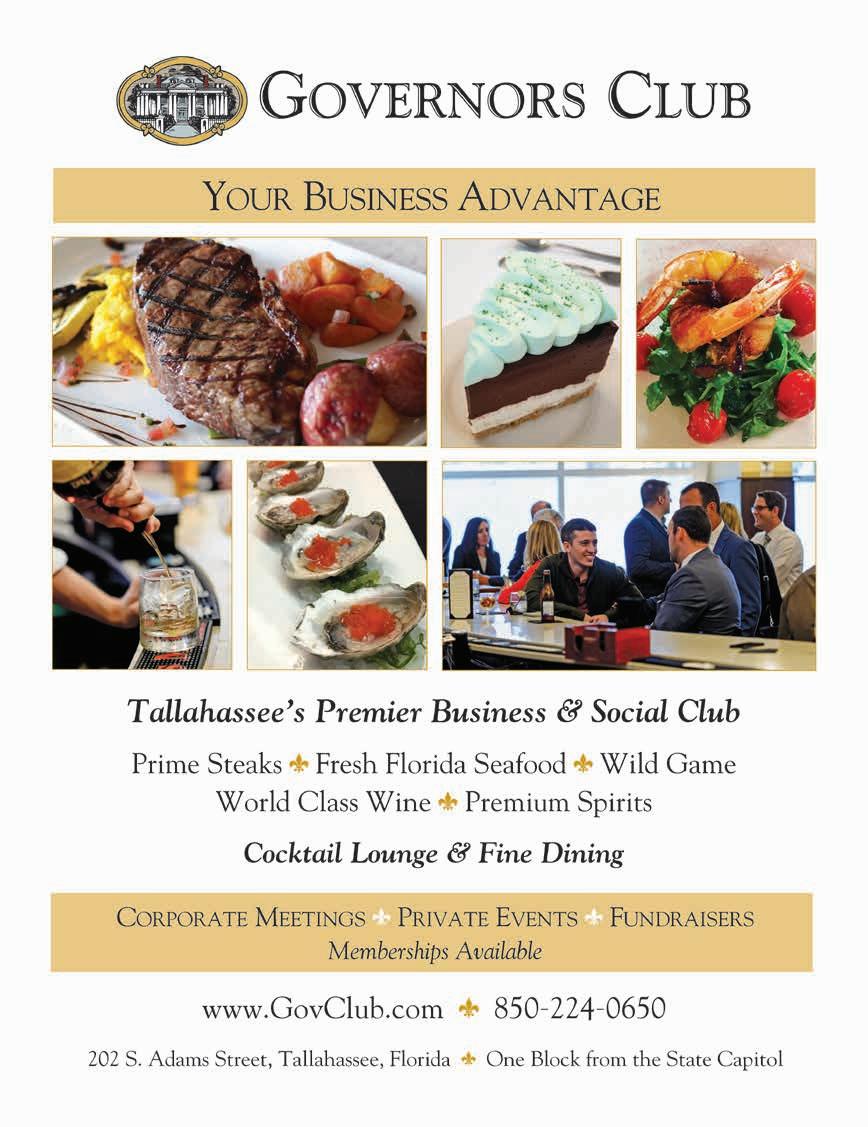
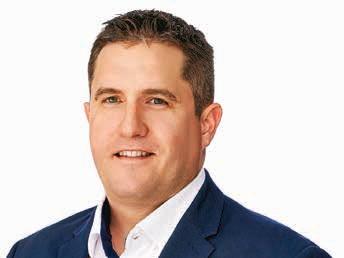
Commercial printing and direct mail company Presstige Printing is welcoming Chris Hudson aboard as Vice President of Political Strategy.
Hudson’s government affairs experience includes campaign and grassroots management — most recently at Americans for Prosperity-Florida — as well as nonprofit work, policy analysis and the preparation of legislation at both the state and federal legislative levels.
“I could not be more excited to join forces with my friend Chris. His expertise and experience combined with the high performing team we have in place will create a dynamic operation that is greater than the sum of its parts,” Presstige Printing President and CEO Westley Weidenmiller said.
Before joining Presstige, Hudson spent 10 years working at AFP-FL, the final four years of which he served as the conservative advocacy group’s Vice President of Government Affairs. He previously worked at the Foundation for Government Accountability, a pro-capitalism conservative think tank that works to expand entrepreneurship opportunities and establish policies to promote getting individuals into jobs and out of government assistance.
With this latest opportunity, Hudson said he’s “excited to get closer to home and get back to my roots.”
“I look forward to getting in the mix on campaigns across the country through direct mail and the other services that Presstige Printing has to offer our clients,” he said.
“I have always wanted to work directly for a design and production facility. There is something special about being able to watch your hard work go from an idea to an industrial press and into the mailbox. Many folks in politics only get to see the idea and design process and don’t see their product until it lands. AFP afforded me every opportunity to sharpen my craft and become the professional I am today. As I endeavor down this new road my thoughts will be with the folks who helped me get to where I am today.”
Hudson earned a bachelor’s degree in political science as well as a master’s degree in international relations from Salve Regina University in Newport, Rhode Island.
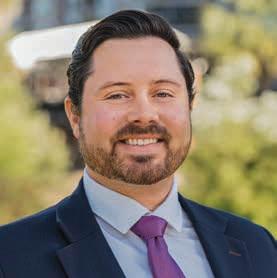
Global artificial intelligence, analytics and data firm SAS has added Patrick Steele to its Florida operations.
Steele, former Legislative Affairs Director for the Florida Agency for Health Care Administration (AHCA), will serve as a Senior Account Executive in SAS’ government and public sector practice in Florida’s capital city.
“His experience in both chambers of the Legislature, leadership experience at two of the biggest agencies in Florida, and deep understanding of how technology works with the public sector is key to driving value for Florida government. Being liked and respected is a rare combination, and Patrick is both,” SAS National Director of State and Local Government Ben Stuart said.
Steele began his career as legislative aide and chief policy analyst for Sen. Debbie Mayfield. He then joined former state Rep. Jamie Grant in the Florida House where he worked on reforming Florida’s enterprise technology architecture.
Steele also has experience working in the executive branch of Florida government, serving in leadership roles for the Department of Environmental Protection and in his most recent position with AHCA.
“Patrick was a valuable member of our team for the last three years and was integral in our success. I’m excited to see him move on to the next phase of his career and I’m confident he will be highly successful in his new role,” AHCA Secretary Jason Weida said.
Steele is a Florida State University alumnus twice over, earning a Bachelor’s degree in political science and a Master of Business Administration with a specialty in Management Information Systems from the Tallahassee-based institution.
SAS is a global data analytics firm that also specializes in artificial intelligence use as an analytics tool.





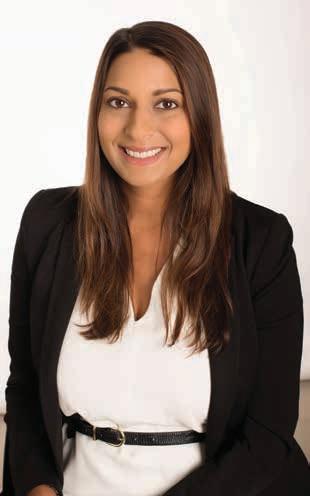
Purvi Doshi is no stranger to the suite of offerings Ballard Partners offers as part of its global firm. As a professional with more than 15 years of comprehensive experience in public affairs, lobbying, and communications, with a proven track record of success across a wide range of industries, she was the perfect fit for Ballard’s continued expansion on the west coast.

EDIE OUSLEY, PRESIDENT
Doshi is now serving as Partner in the firm’s Los Angeles office, bringing experience in real estate development, construction, startups and more to the nation’s second-most populous city.
“I am excited to join Ballard Partners, a firm known for its strategic approach and unwavering commitment to client service.” – PURVI DOSHI
“We are thrilled to welcome Purvi to Ballard Partners,” said firm founder and President Brian Ballard. “Her deep understanding of California’s political landscape and her extensive experience in diverse sectors will be invaluable to our clients in Los Angeles and beyond.”
Doshi is no stranger to the City of Angels. She began her career as the lead staff member for Los Angeles City Councilmember Bernard C. Parks She later worked as a consultant at Mercury Public Affairs, where she was responsible for navigating complex projects for clients in real estate development and construction.
Most recently, Doshi served as the Government Affairs lead at SoCalGas, where she played a pivotal role in se-
curing support for major pipeline projects while advocating for the responsible use of natural gas in California’s energy mix. Additionally, she brings significant expertise in emerging industries, having served startups Pacaso and AirMap.
“I am excited to join Ballard Partners, a firm known for its strategic approach and unwavering commitment to client service,” Doshi said. “I look forward to leveraging my experience to deliver outstanding results for our clients across California and throughout the West Coast.”
“Purvi’s addition strengthens our Los Angeles office and positions us to better serve clients in the region,” said Joe Buscaino, Managing Partner of Ballard Partners’ Los Angeles of-
fice. “Her diverse background and strategic thinking will be a tremendous asset to our team.”
Founded in Florida, Ballard Partners has quickly grown to international prominence over the past decade. After setting up shop in Washington seven years ago, the firm has gone on to open satellite branches in multiple states as well as international offices in Israel, Turkey and Nigeria.
The firm expanded into California in late 2022, opening its first office in the Los Angeles metro area. It later set up shop in the state capital, Sacramento, and added former top staffers in California Gov. Gavin Newsom’s administration to its roster of advocates.

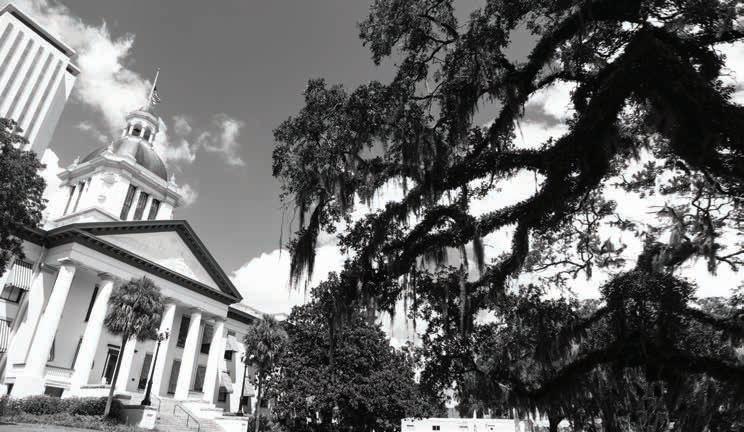
is a boutique government relations rm that specializes in successfully helping businesses do business with government.
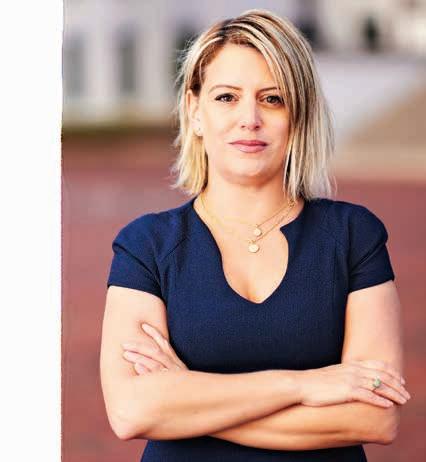

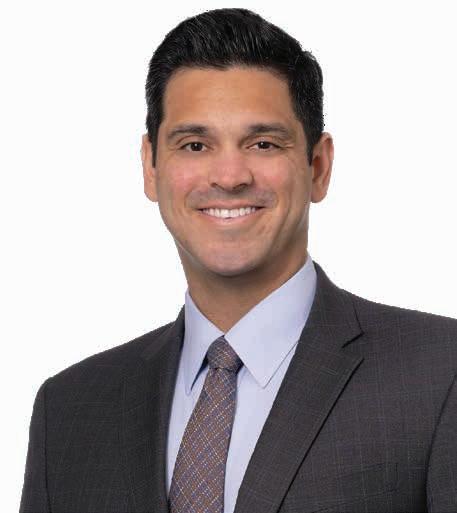
Andres Malavé had already made waves as the first Hispanic Communications Director in the Florida Speaker’s office. Now he’s bringing his skills to the lobby firm Jones Walker as part of its recent expansion.
Malavé will serve on the firm’s Government Relations team where leaders expect him to boost the firm’s service to clients by serving as “a creative, well-connected, and principled leader.”
“Andres is a top-notch political professional. Not only did he craft a winning communications plan to deliver the largest Republican majority in state history, as Communications Director of the Florida House, he helped us to effectively deliver results on priority legislation and show the rest of the country, and the world, how to do things the Florida Way,” said House Speak-
er Paul Renner, who Malavé previously reported to as Communications Director in Renner’s office.
Malavé also previously worked as Communications Director for the Florida House Republican Campaign Committee, where he was part of the team that helped deliver for the GOP a House supermajority.
Prior to his work in the House, Malavé held roles with Americans for Prosperity and Stand Together in Florida, where he held various responsibilities, such as leading the regional communications team.
“Andres’ experience in the Speaker’s Office and working across the policy spectrum around the country will make him a valuable part of our team. His knowledge of The Process and his relationships with legislative and in-
dustry leaders across the state will be key in his ability to advise our clients,” said Marc Dunbar, Partner at Jones Walker’s Tallahassee office.
Jones Walker Director of Business Advisory and Management Consulting Chris Moya praised Malavé for his commitment to building “trust and relationships” among lawmakers and their staff, describing it as “second to none.”
Earlier this year, Jones Walker reopened its Tallahassee office, adding staff as part of its expansion. Other additions to the office included Daniel Russell, Jennifer Ungru, William Hall III, Daniel McGinn, Peter Dunbar, Martha Edenfield and French Brown IV
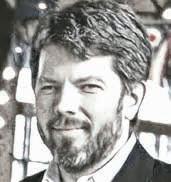
Shawn Pattison is bringing more than a decade of experi-
ence working with national organizations during periods of growth to the Florida Nursery, Growers and Landscape Association (FNGLA), after being tapped this year to serve as its new Chief Operating Officer.
His expertise extends to consulting services, coalition building, advocacy and corporate public affairs.
Pattison previously worked as a national field director for Concerned Veterans for America and was the Vice President of Operations at StandTogether.
“We are thrilled to welcome Shawn to our team,” said FNGLA CEO Tal Coley. “His proven track record of operational


excellence and innovative thinking makes him the perfect fit for our organization.”
FNGLA is the largest state nursery and landscape association in the U.S. It represents Florida’s nursery and landscape industry, which generated $31.4 billion total output sales in 2020 and directly employed more than 266,000 people.
The group’s leaders touted Pattison as an executive known for his commitment to mission-driven work, ability to cultivate cohesive teams, and track record delivering results. He most recently worked on strategic organizational planning, implementation and change management initiatives.
Pattison’s early experience includes working on two tree farms, managing his own small landscaping business and planting an estate vineyard. He is an alumnus of Hampden-Sydney College and a veteran of the U.S. Coast Guard.
He succeeds FNGLA’s long-time COO Linda Adams, who is retiring.
“During her 40 years with FNGLA, Linda has played an integral role in fostering the success of the association and cultivating a capable team of professionals,” Coley said. “Her countless contributions and dedication have proven invaluable.”
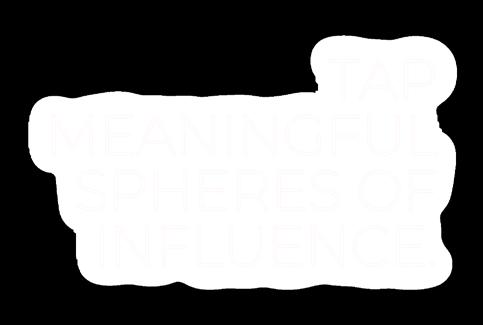


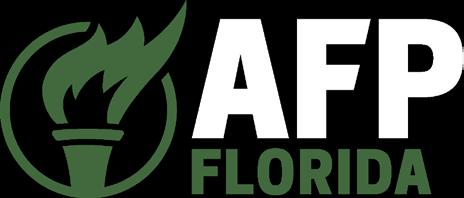
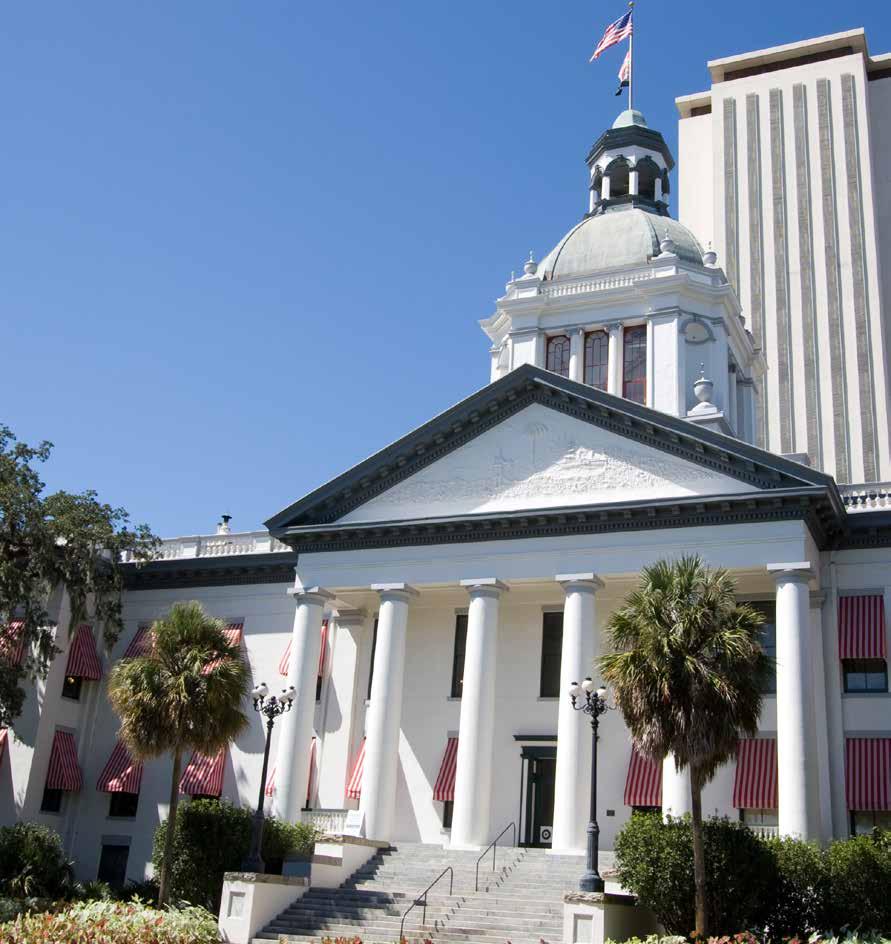
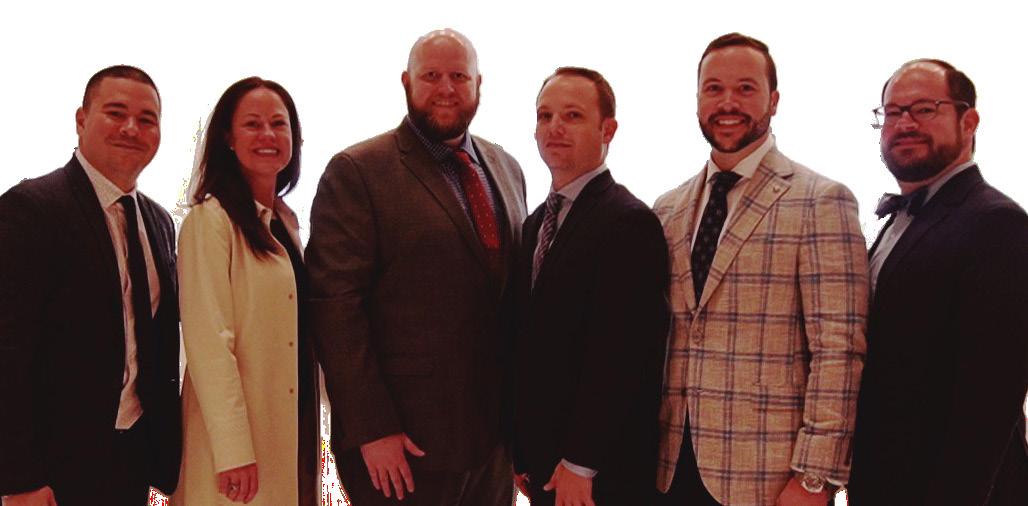



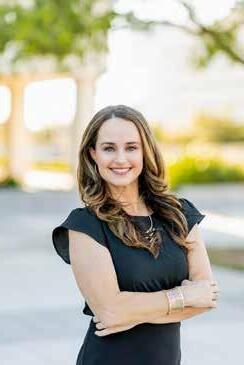
J e n n M e a l e P o g g i e
C E O
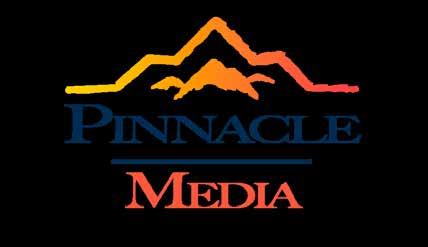
P i n n a c l e M e d i a i s a n a w a r d - w i n n i n g ,
F l o r i d a - b a s e d p u b l i c r e l a t i o n s a n d
m a r k e t i n g f i r m .



j e n n @ p i n n a c l e m e d i a f l . c o m
S e r v i n g c l i e n t s a r o u n d t h e c o u n t r y , P i n n a c l e
M e d i a d e v e l o p s c o m m u n i c a t i o n s a n d
m a r k e t i n g s t r a t e g i e s t o m e e t c l i e n t s ' g o a l s .
W e c a n h e l p y o u R i s e A b o v e t h e N o i s e .
P u b l i c A f f a i r s &
C r i s i s C o m m u n i c a t i o n s
S t r a t e g y
S o c i a l M e d i a &
M a r k e t i n g
W r i t i n g & D e s i g n
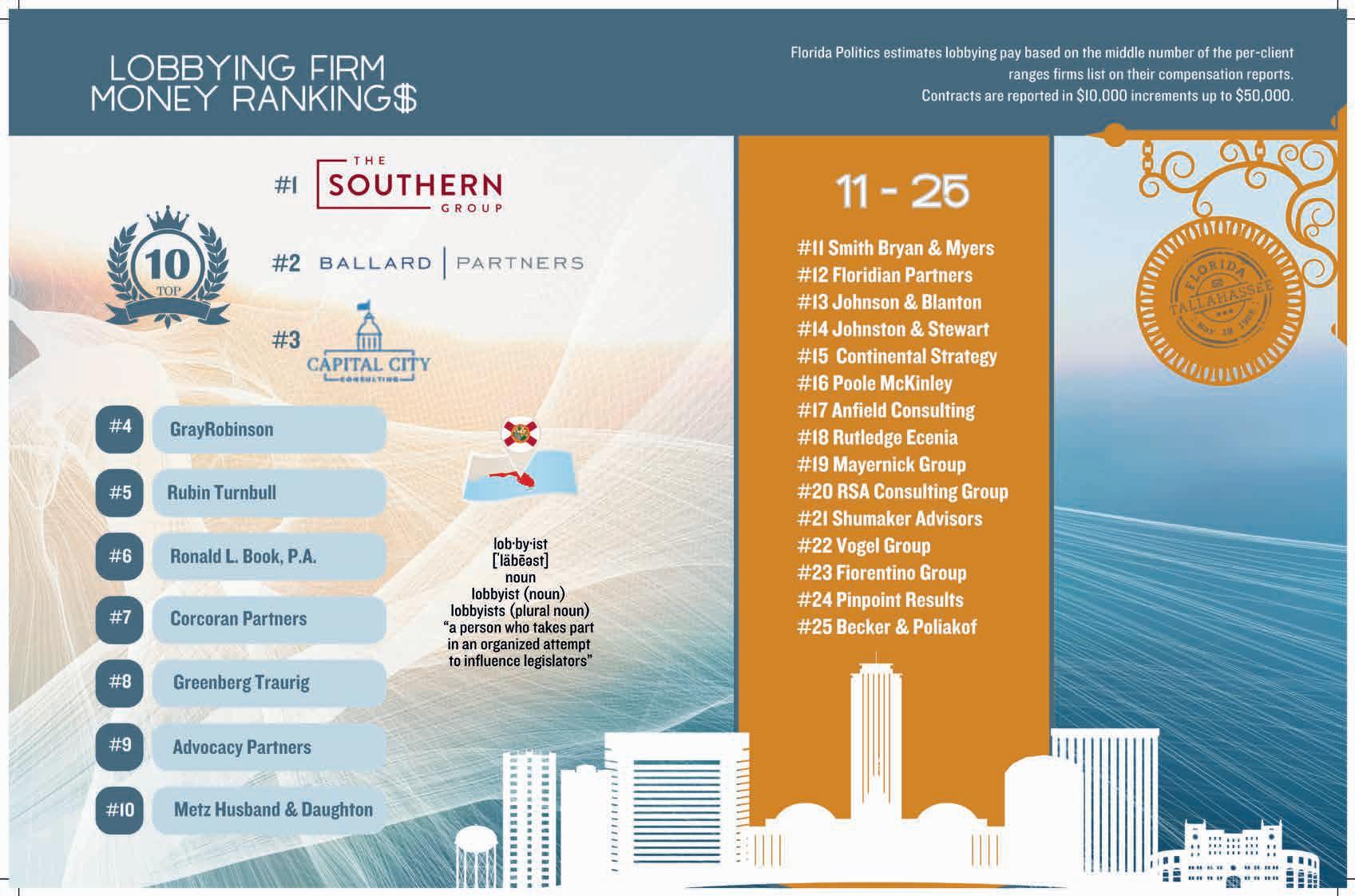

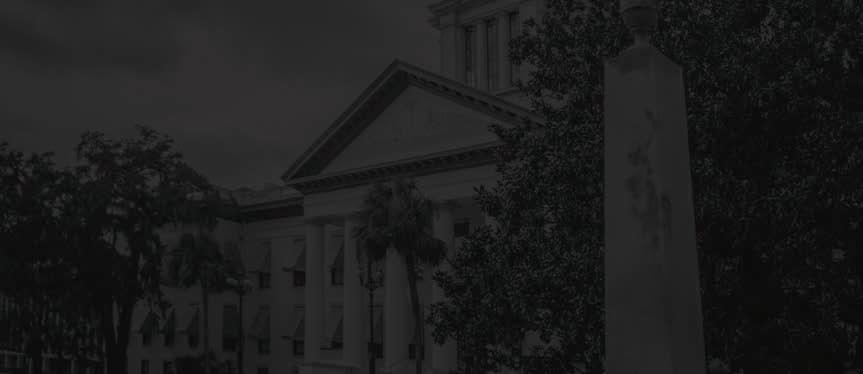




We are a team of high-energy, results-driven lobbyists and advisors determined to help our clients succeed in today’s fast-changing governmental and political landscape.
What’s different about us? As a boutique consulting firm, we take a true team approach to serving clients at the local, state and federal levels of government. When you engage our firm, you get all of us—from our principals to our consultants, all of our diverse experience, our deep relationships built for decades, and our complete dedication to your success.
We’re proud of our long-time client relationships and our reputation for achieving results while maintaining the highest ethical and professional standards.
Get to know us at RubinTurnbull.com.
Tallahassee Ft. Lauderdale Miami Washington, DC

Significant other? Children? Grandkids? I have a significant other, Dave, and we have a 4-year-old GSP named Magnolia, “Maggie”.
In 25 words or less, explain what you do. I’m a problem solver; I evaluate situations and identify solutions while working to protect and preserve the natural resources of the panhandle.
Without using the words Democrat, independent or Republican, conservative or liberal, describe your political persuasion. Common sense.
During your career, have you had a favorite pro bono client? I’ve primarily worked in public administration and haven’t had this opportunity yet.
Three favorite charities? Last Hope Rescue Florida, RedRover, and Susan G. Komen for the Cure
Any last-day-of-Session traditions? One of my best friends and I go to Jeri’s for lunch and split a bottle of champagne to celebrate surviving another Session.
What are you most looking forward to during the 2025 Legislative Session? I love having my friends back in town. You never know who you’ll see when you turn the corner at the Capitol!
Professional accomplishment of which you are most proud? There are a few things I’ve been proud to be a part of, but I’m really excited about the work we’re doing for Hurricane Michael recovery in the panhandle.
Who is your favorite Florida Capitol Press Corps reporter and why? I think it would be difficult to pick a favorite, but I’m usually following Bruce Ritchie, Gary Fineout or Matt Dixon (Go Pack Go!).
Other than FloridaPolitics.com, your reading list includes … emails and some sort of historical fiction or thriller.
What swear word do you use most often? I can’t say that here!
What is your most treasured possession? I have a few, but I will always cherish a quilt made by my mom and a prayer blanket from our friend Kathy.
The best hotel in Florida is …
We’re lucky there are so many great ones in Florida, but I have a fond place in my heart for the Costa d’Este Resort in Vero Beach.
You’ve just learned that you will be hosting a morning talk show about Florida politics. Who are the first four guests you’d invite to appear? Darrick McGhee, Lyn Stanfield, Frank Walker and Stacey Webb (if they can participate from Heaven).
Favorite movie? White Christmas.
When you pig out, what do you eat? Queso, tacos and a margarita. You can never go wrong with that trio.
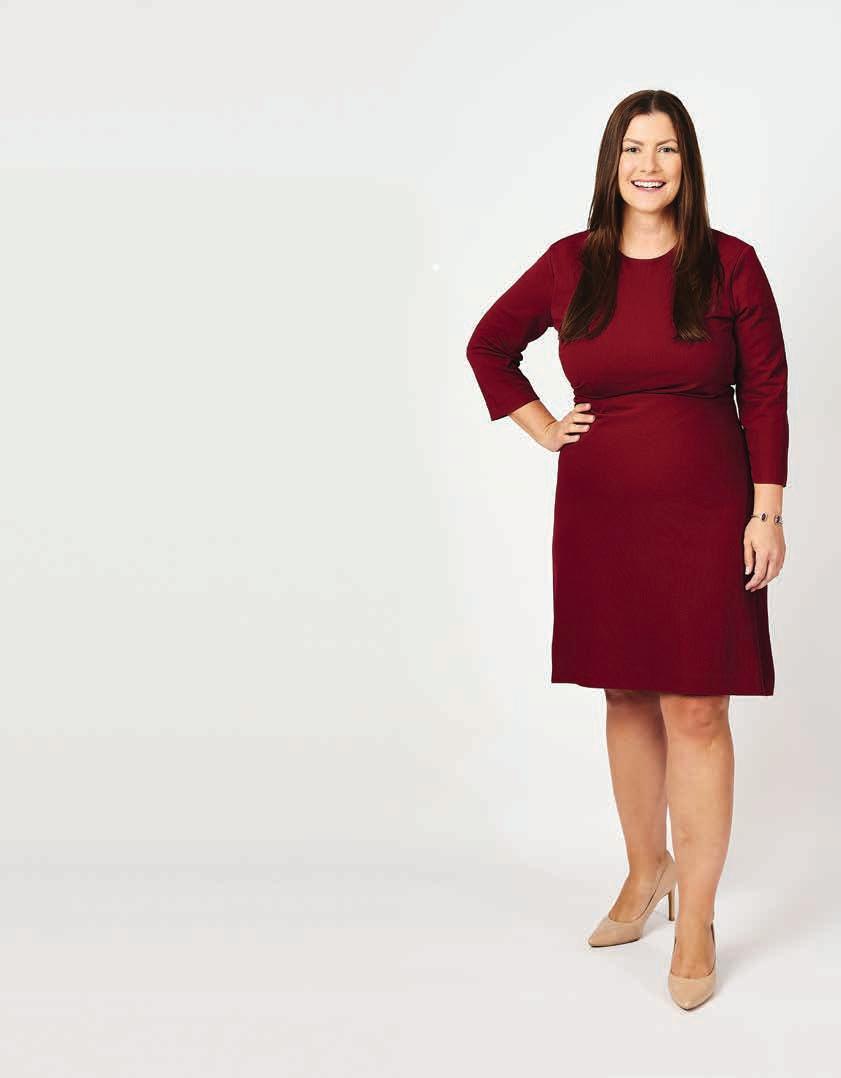

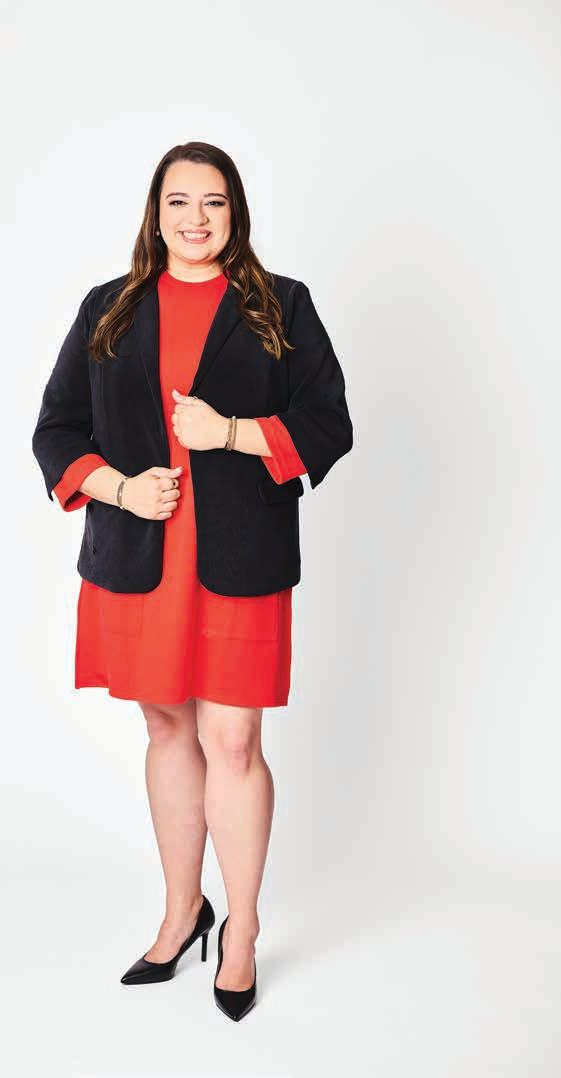
Significant other? Children? Grandkids? I am a proud Auntie to my sweet 2-yearold nephew Mason and am still looking for Mr. Right.
In 25 words or less, explain what you do. I have the privilege of connecting, advocating, strategizing, and educating on behalf of the incredible work our clients are doing at Johnston & Stewart Government Strategies.
Without using the words Democrat, independent or Republican, conservative or liberal, describe your political persuasion. “There is no limit to the amount of good you can do if you don’t care who gets the credit.”
During your career, have you had a favorite pro bono client? While in the public sector I was able to serve some of Florida’s most vulnerable populations in the health and human services arena, which strengthened my commitment to advocating for those in need. I am looking forward to continuing to shine a light on those that work hard for our children and community in my new role.
Three favorite charities? Operation Smile, Children’s Miracle Network, and Prevent Child Abuse America.
Any last-day-of-Session traditions? Getting dinner with friends to celebrate surviving those 60 (plus) days and then sleeping for two (plus) days.
What are you most looking forward to during the 2025 Legislative Session? Connecting with all of my favorite people around the Capitol, and of course seeing everyone in their Garnet and Gold on FSU Day — Go Noles!
Professional accomplishment of which you are most proud? During my time working in the DeSantis administration, I had the profound honor of contributing to the response efforts for Hurricane Ian in 2022. The way in which all stakeholders came together so seamlessly to address
the immediate needs of Floridians, each working tirelessly and selflessly towards a common goal, left an indelible mark on me. Witnessing this unified effort was a powerful reminder of the strength and resilience that can emerge in the face of adversity. Being able to play even a small role in this monumental response and seeing firsthand the positive impact of our collaborative efforts to ensure that affected communities could begin the recovery process, was undeniably one of the most meaningful and impactful moments of my career.
Who is your favorite Florida Capitol Press Corps reporter and why? I am appreciative of the reporters that are committed to delivering real-time updates, which are especially valuable in our fast-paced world.
Other than FloridaPolitics.com, your reading list includes … Although I am mostly reading legislation (and amendments,) I enjoy reading a good autobiography.
What swear word do you use most often? Pinky swear.
What is your most treasured possession? Pictures. Yes I still print them out every once in a while.
The best hotel in Florida is … The Don CeSar in St. Pete Beach.
You’ve just learned that you will be hosting a morning talk show about Florida politics. Who are the first four guests you’d invite to appear? There are too many great options, but I have always thought it would be interesting to sit down with the family members of elected officials to get their perspective and a behind-the-scenes look from their viewpoint.
Favorite movie? The Parent Trap.
When you pig out, what do you eat? Always pizza.
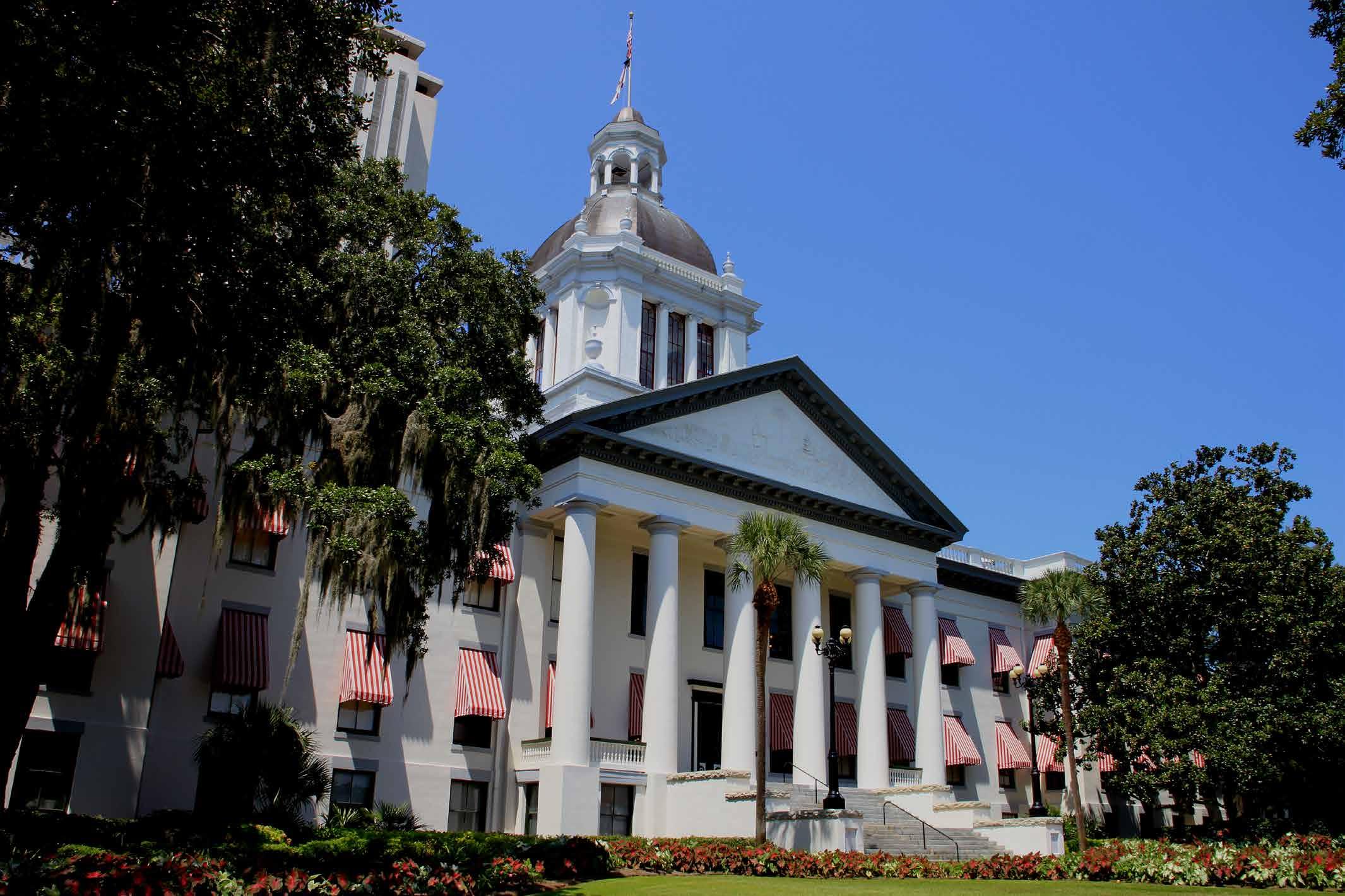


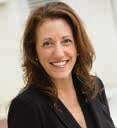
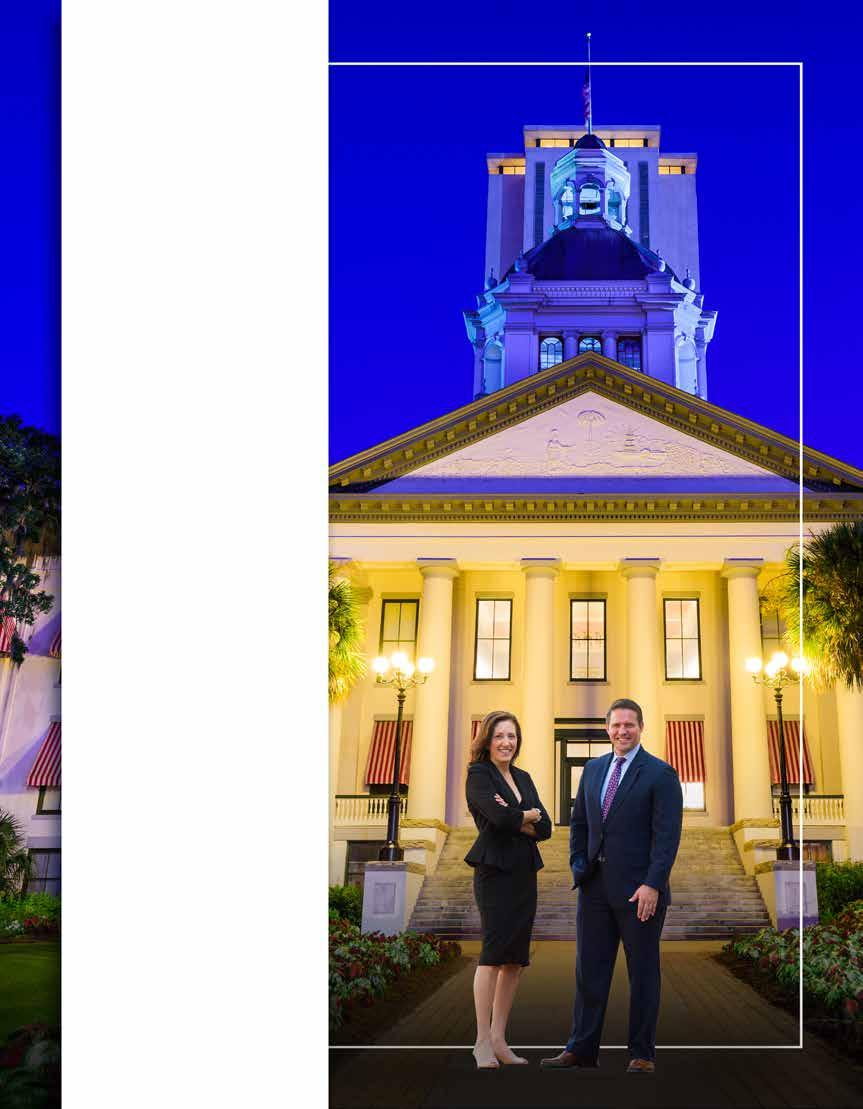
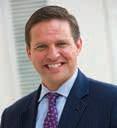
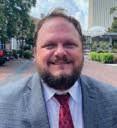
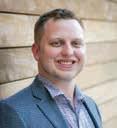

Significant other? Children? Grandkids?
I’ve been married to Meredith since 2012, and we have a 9-year-old son named Ford. We also have two dogs, an Italian Greyhound named Vinnie and an English Bulldog named Stella
In 25 words or less, explain what you do. I help organizations and regulated entities, particularly insurance companies, navigate government and regulatory environments.
Without using the words Democrat, independent or Republican, conservative or liberal, describe your political persuasion. I believe in individual freedom and the accompanying responsibility.
During your career, have you had a favorite pro bono client? I have really appreciated the opportunity to represent the Holocaust Documentation and Education Center in Hollywood. HDEC preserves the oral histories of Holocaust survivors, which I believe is invaluable for educating future generations.
Three favorite charities? Ronald McDonald House; Tall Timbers; Florida Police Chiefs Education and Research Foundation
Any last-day-of-Session traditions? Our wedding anniversary is May 5th, so the last day of Session occasionally falls on our anniversary. Those are fun years. Otherwise, we order a pizza and go enjoy our couch.
What are you most looking forward to during the 2025 Legislative Session? I am interested to see how our economy behaves for the next several weeks and how it impacts the direction of the 2025 (and 2026) Session.
Professional accomplishment of which you are most proud? In 2022, I worked with the Florida Police Chiefs Association, Sen. Danny Burgess and Rep. Mike Giallombardo to establish
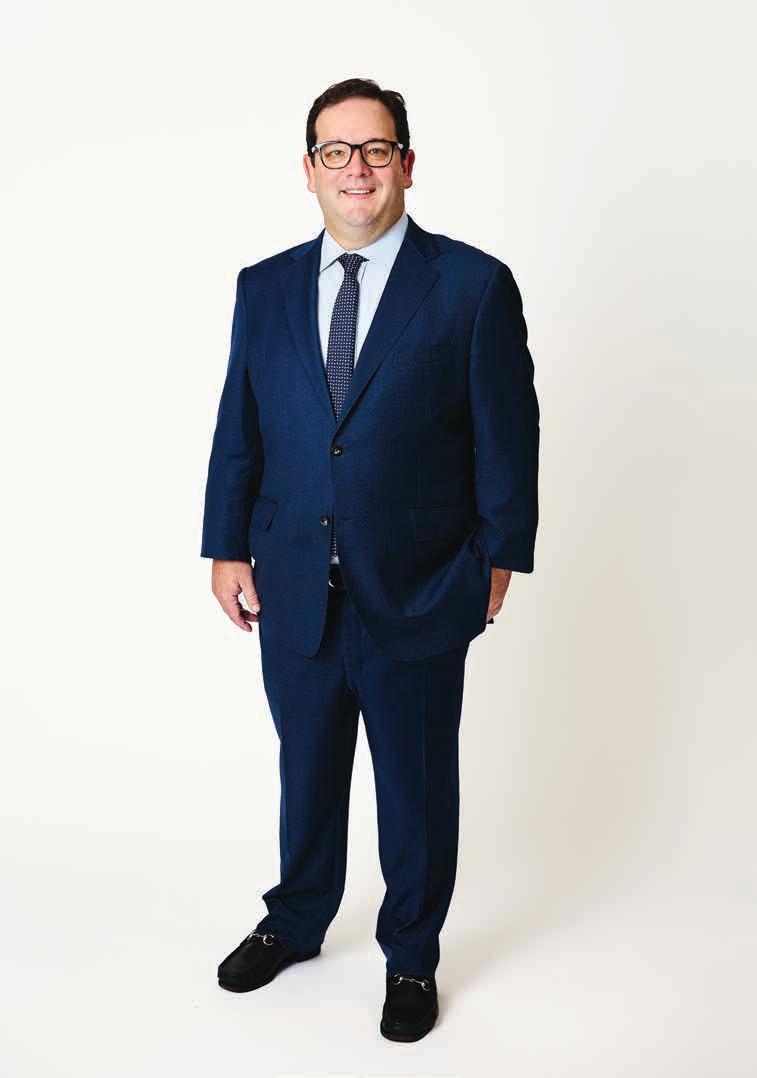

responders. I know that important policy has helped many first responders find the help they need and deserve.
Who is your favorite Florida Capitol Press Corps reporter and why? In addition to present company, I’m a big Dara Kam fan.
Other than FloridaPolitics.com, your reading list includes … Wall Street Journal; Gatorsports.com (kind of a sad read lately); News Items by John Ellis (a great Mike Grant recommendation).
What swear word do you use most often? Oh … Unfortunately, it probably rhymes with luck.
What is your most treasured possession? Probably a framed newspaper article profiling my grandfather. He had a great life story and a huge personality. The article is a great reminder.
The best hotel in Florida is … The Ritz Carlton Amelia Island or the Vinoy. Both hotels have excellent vibes.
You’ve just learned that you will be hosting a morning talk show about Florida politics. Who are the first four guests you’d invite to appear? Wow. That kind of depends whether the show is supposed to be Jerry Springer or 60 Minutes. Assuming 60 minutes, I’ll go with Danny Perez, Jason Pizzo, Grady Judd and Ben Sasse
Favorite movie? National Lampoon’s European Vacation. Be a pig.
When you pig out, what do you eat? That’s a tough question for me. I enjoy eating. However, there is nothing quite like a ribeye with crispy fries and compound butter. That gets me every time.


With a 40-year track record of lobbying success and longstanding relationships at all levels of Florida government statewide, Colodny Fass is ranked annually among Florida’s top lobbying law firms.
Given that we live in an ever-changing technological world, how can our education system keep pace with the new innovations and policies of the 21st century? This past summer, that question fueled the 2024 Florida Tech and Innovation Summit hosted by The James Madison Institute. Innovators and policymakers from around the country came together in Coral Gables to lead the discussion on AI innovations and regulations, bringing the latest technology into classrooms, laying out the do’s and don’ts of cybersecurity, connecting the unconnected, embedding surveillance in education, and more. Panel conversations and speakers ranged from industry professionals to lawmakers, with Governor Jeb Bush taking center stage sharing his administration's advancements in education and where he envisions the future of Florida’s education system heading.
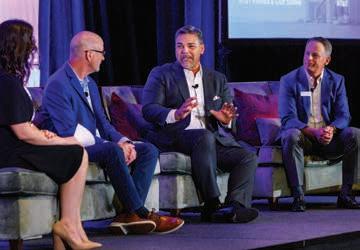

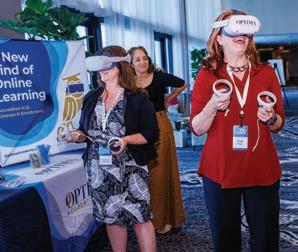
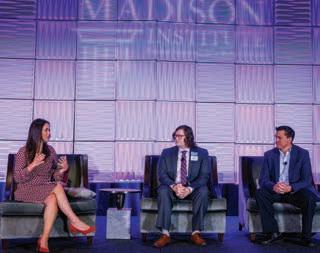

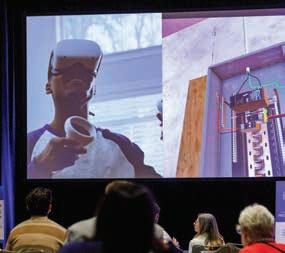
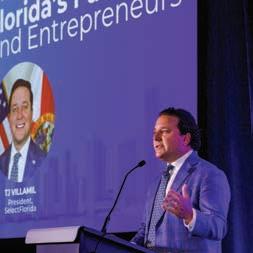
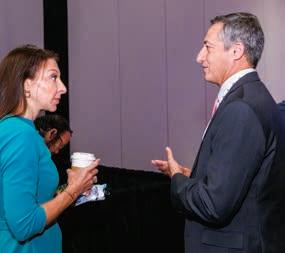
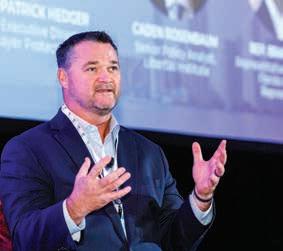

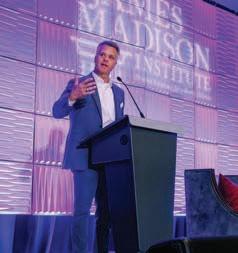

1. Rep. Michelle Salzman with Gov. Bush after the keynote address. 2. Attendees of the 2024 Florida Tech Summit watching a presentation by Meta showcasing the educational advancements brought by the latest generation of the Quest 2 VR headset. 3. President of SelectFlorida, TJ Villamil, talking about how Florida can fuel future innovators and entrepreneurs. 4. CEO of OptimaEd, Erika Donalds, and Texas Rep. Giovanni Capriglione before their panel, “Bringing Education Into The 21st Century.” 5. Michigan Rep. Jaime Greene and Vice President at Stride, Cindy Wright, demoing OptimaEd’s interactive curriculum. 6. Florida Rep. Brad Yeager on the panel discussing “The Do’s and Don’ts of Cybersecurity and Digital Literacy.” 7. JMI Board Member Harout Samra leading the opening remarks at the 2024 Florida Tech Summit. 8. JMI President and CEO Dr. Bob McClure opening the 2024 Florida Tech Summit. 9. Tirzah Duren from The American Consumer Institute moderating a panel with Florida Rep. Alex Rizo, with Andy Markus from AT&T and JMI board member Joe York, also with AT&T. 10. Brooke Medina from the John Locke Foundation moderating a panel with Daniel Woislaw and Jon England on “Embedding Surveillance in Education.” 11. Bartlett Cleland from Institute for Policy Innovation moderating a panel with James Erwin, Nathan Leamer, and Dr. Edward Longe on “Connecting the Unconnected.”
SEASONED EXPERTISE + TARGETED RESULTS: YOUR WINNING FORMULA
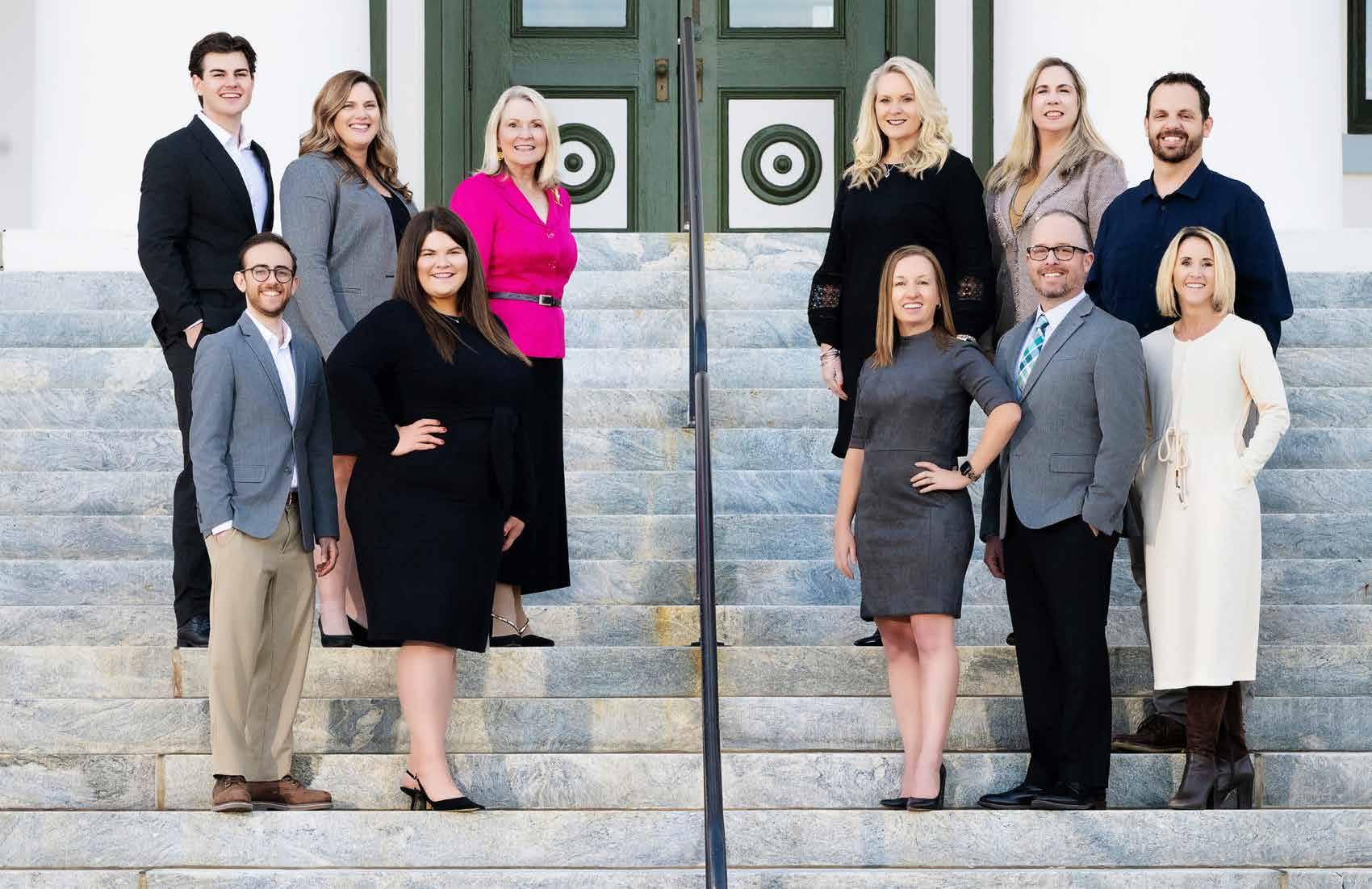

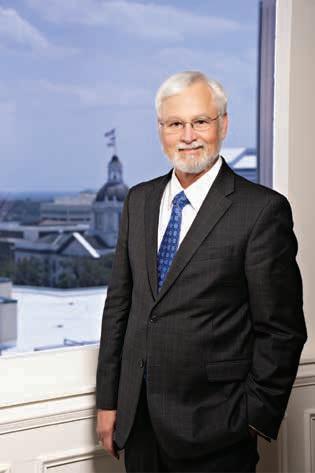
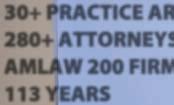

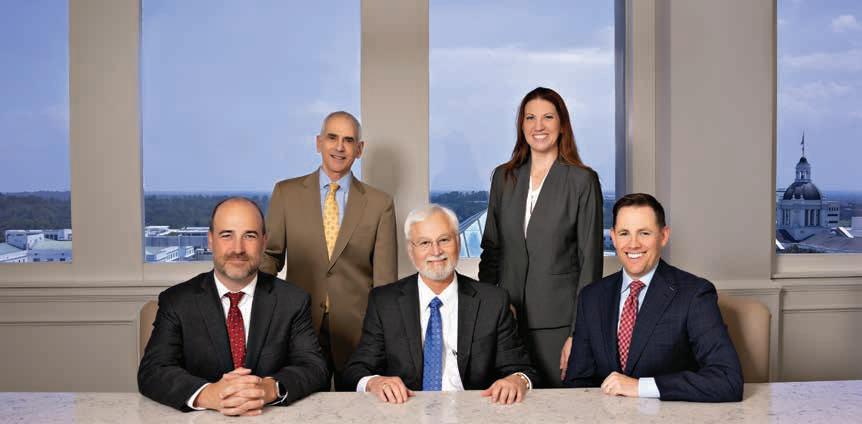



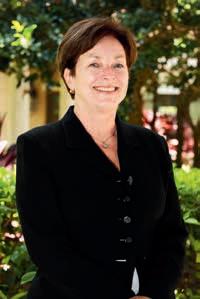

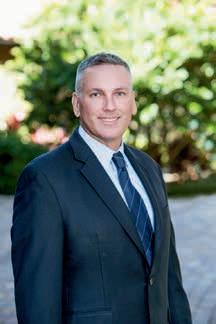

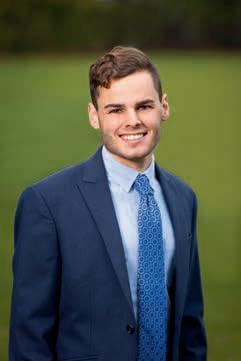
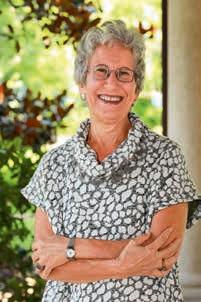

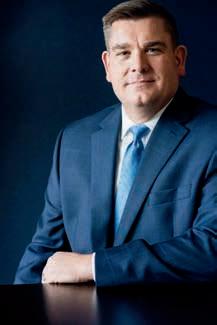
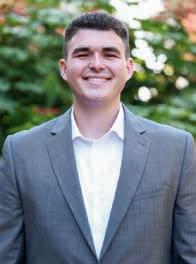

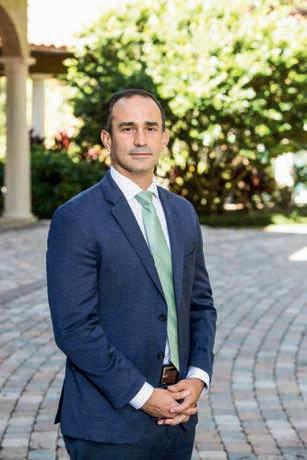
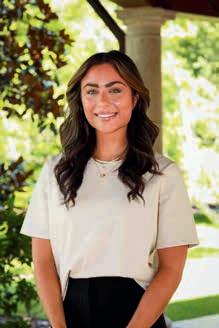
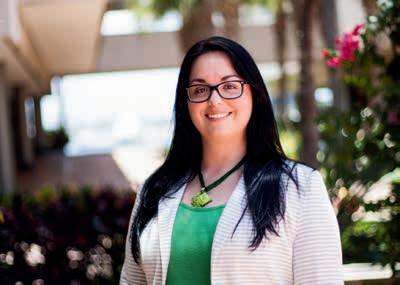
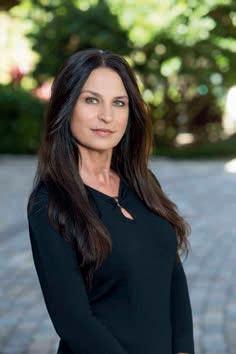


By Ryan Cohn
n today’s political and regulatory landscape, “always on” is more than a communications catchphrase; it’s an essential strategy for grassroots advocacy. Organizations often want to activate their top advocates to generate broad support for government affairs priorities, but it’s unrealistic to assume that everyone will simply spring into action when a crisis hits or key legislation is at stake.
If a salesperson approaches someone cold and asks them to buy their product, the first response likely will be, “who are you, and why should I trust what you say?” Advocacy is no different. You have to build trust and nurture relationships over time.
You can do this by establishing an always-on grassroots advocacy program. At its core, this approach engages those closest to your organization as part of your government relations strategy — whether it’s a company’s employees, a trade association’s members, or a nonprofit’s donors. The goal is to prepare and empower them to speak on your behalf.
The good news is that grassroots advocacy isn’t only for Fortune 100 companies.
But you can’t expect employees or supporters to act during a crisis or political activation without consistent prior engagement and education on all things public policy. By keeping communication lines open about political and regulatory issues affecting their industry before legislative battles loom, you build trust and prepare them to act swiftly when needed.
HCA Healthcare’s Good Government Group is one of the best examples of a successful, always-on grassroots advocacy program. Started in Florida more than a decade ago, this internal advocacy initiative now engages more than 200,000 employees nationwide in public affairs and government relations activities. For years, our firm has worked with HCA Healthcare to build this network by consistently informing and educating employees about issues that impact their livelihoods, communities, and industry.
The key to the Good Government Group’s success is constant communication. The program regularly shares updates on the legislative process at both the state and federal levels, keeping employees informed about new regulations and helping them understand how public policy affects their work. This consistent internal communication fosters a deeper level of engagement, encouraging employees to feel connected to the issues. So when it’s time to take action — whether by contacting lawmakers or showing support for a critical initiative — they’re ready. They understand the stakes and are invested in the outcomes. What sets high-quality advocacy initiatives apart is they don’t just ask employees to act when a bill is up in committee. Instead, they foster long-term relationships by offering education and updates that resonate with employees. When a call to action arrives, employees are already familiar with the issues and motivated to participate. This approach strengthens lobbying efforts and builds a culture where employees feel valued as partners in the company’s public affairs strategy.
The good news is that grassroots advocacy isn’t only for Fortune 100 companies. Smaller organizations or trade associations can start by creating an always-on advocacy network through ongoing education efforts, such as regularly sending newsletters or hosting webinars, to keep internal supporters and partners informed about political and regulatory issues. The key is consistent, proactive engagement.
Build those relationships early, and keep communication flowing. That way, when the time comes to mobilize, your advocates will already be engaged, knowledgeable, and ready to raise their voices on your behalf.
Ryan Cohn is Executive Vice President and a partner at Sachs Media, a public affairs and strategic communications firm for highstakes challenges.

By Jim Horne
fter reading the recent headlines regarding Florida’s No. 1 ranking in education and parental choice, I couldn’t help but reflect on how far we’ve collectively come in the school choice journey that began decades ago. Although interchangeable, the shift in terminology from school choice to parental choice is significant. It represents a new tier of progress amplified by the Legislature’s 2023 HB-1 efforts, creating opportunities for all families in Florida.
SCHOOL CHOICE BEGINNINGS
When I entered the Florida Senate in the mid-’90s, I was among six newly elected state senators. I was eager to effect change in a state facing high crime, juvenile delinquency in schools, and lower educational standards overall. In 1994, the Senate went Republican for the first time in 122 years, and in 1998, Jeb Bush’s election set the stage for school choice measures that have carried over to today.
and introduced high-stakes testing. Governance was also crucial, which led to reorganizing three delivery methods — universities, community colleges, and K-12 schools — into one efficient and seamless K-20 education system.
While I still have the battle scars from pushing through reforms, I firmly believe Gov. Bush’s tenacious approach and our collective work created pathways to Florida’s rise in educational standing in the country.
THE NEXT CHAPTER
Today, school choice 3.0 is underway. Florida’s HB-1 continues the progress Gov. Bush began, expanding options for all Floridians. During a To the Point podcast with my colleague Doug Mesecar of Strategos Group, Florida Sen. Alexis Calatayud spoke of the Legislature’s commitment.
“Parental choice in Florida is our driving focus,”
In 2001, I shifted from Appropriations Chairman to becoming Florida’s first-ever appointed Commissioner of Education under Jeb Bush. As Robin to his Batman, I helped facilitate the Governor’s vision and robust reforms, which have become today’s national standard.
Gov. Bush took earlier ideas, such as charters, and put them on steroids. As a formidable Governor, he was unafraid to take bold actions, often terming them BHAG — Big Hairy Audacious Goals. He expanded charters in what I call school choice 1.0. Then, school choice 2.0 evolved, introducing vouchers that marked a new path, starting with opportunity scholarships.
ACCOUNTABILITY AND GOVERNANCE
Gov. Bush recognized that school choice heavily relied on accountability to drive it. Parents needed accurate information to make the best informed decisions for their families. So, we overhauled the school grading systems
“Parental choice in Florida is our driving focus,” she said. “It is our North Star in every respect. School choice has been guided through the last Session into a place where most states want to be — universal.”
Moving forward, the Senator points to smoother transitions.
“All the infrastructures, payment structures, and hiccups will evolve into a system that parents of any ethnic group or income will learn to use,” she said.
Floridians are poised to be the big winners on school choice, but as Gov. Bush said at the ExcelinEd summit, “we need to empower informed decision-making for our parents.” It’s an exciting time in the state, with the next iteration of choice inching closer to a custom-driven model with wildly shifting modalities. Yet, as school choice continues its evolutionary growth with more parents participating, communication, navigation, and clear information will undoubtedly play the biggest roles.
Jim Horne is a partner at Strategos Group and a former Florida Education Commissioner. He is a leading advocate for national education reform.

Northeast Florida is projected to see a 14% increase in high-risk pregnancies and postpartum conditions over the next decade.
As Northeast Florida’s leader in delivering babies and high-risk pregnancies and the region’s only Level IV NICU, Baptist Health and Wolfson Children’s Hospital are continuing to meet this growing need in our communities and provide moms and babies with the highest level of care.
Baptist Health is committed to working with Florida’s leaders to close the gap on maternal and infant mortality.



• Delivering the most high-risk pregnancies and expanding to meet the region’s growing need
• Providing the most acute neonatal care (Level IV NICU) in the region including access to 250 pediatric specialists experienced in the diagnosis and treatment of the most complex neonatal cases
• Ensuring critical wraparound support through the Motherhood Space, the region’s only outpatient program for prenatal and postpartum mental health
• Providing postdelivery support through the WELLCome Home program, a critical safety net for new parents and infants considered a model for the state

RONALD A. CHRISTALDI President/CEO
Shumaker Advisors Florida, LLC
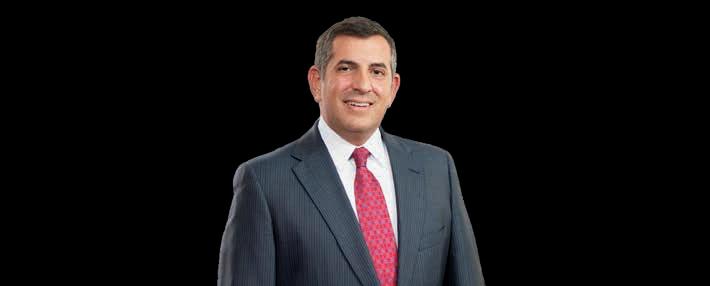
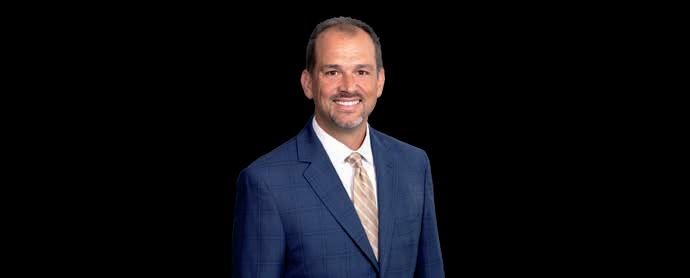

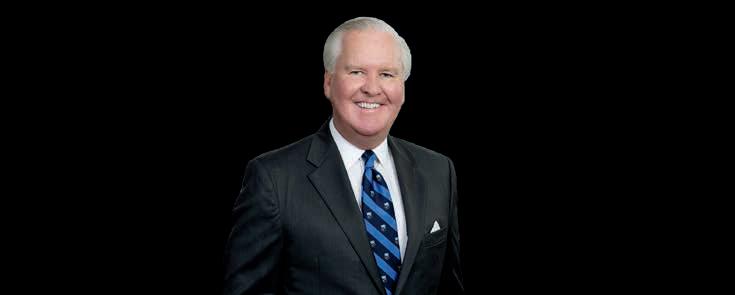
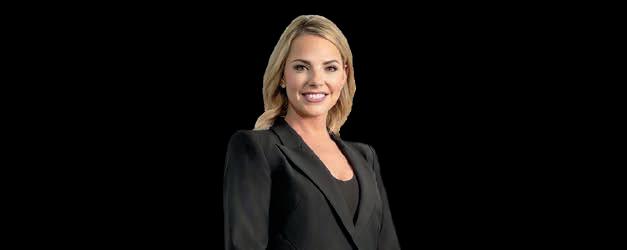
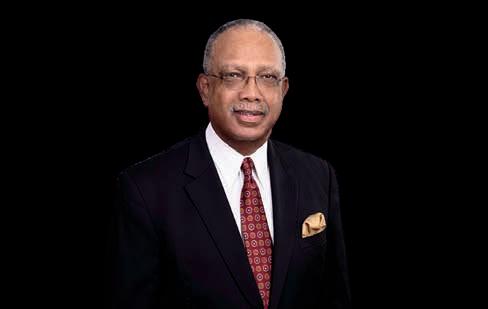
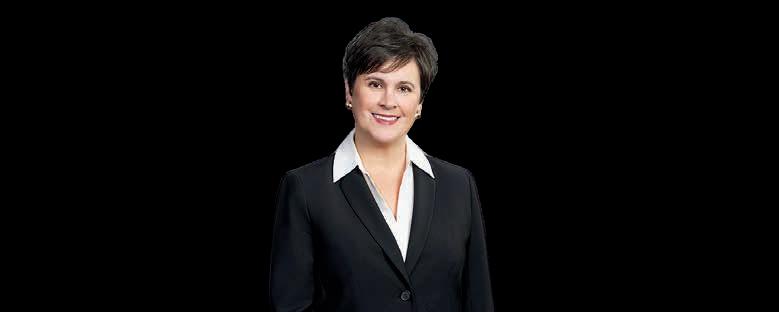
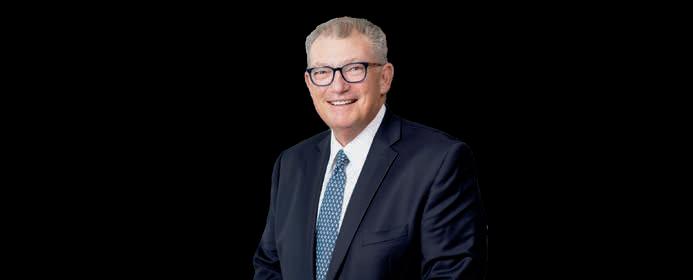




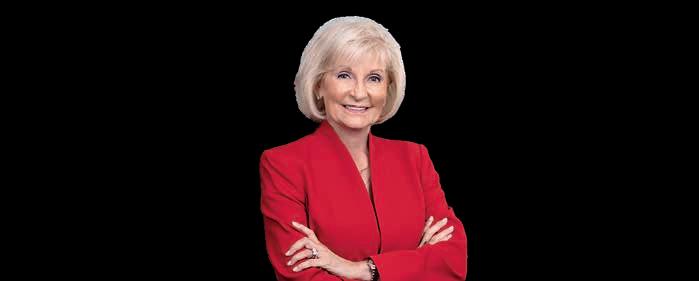
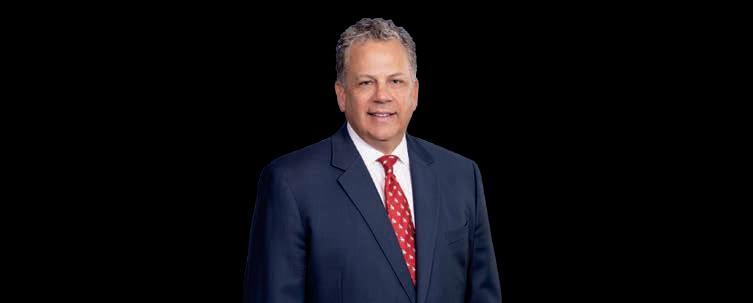
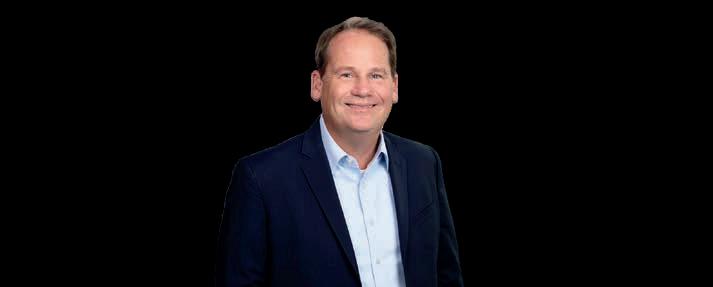
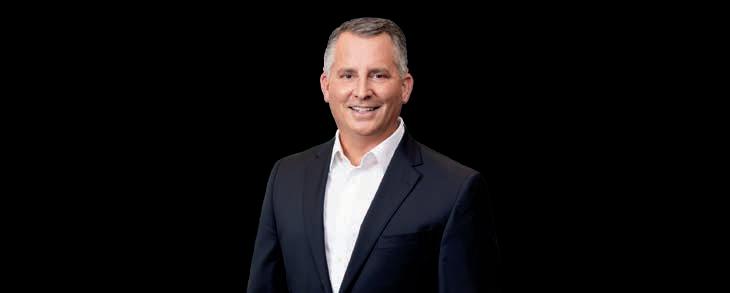
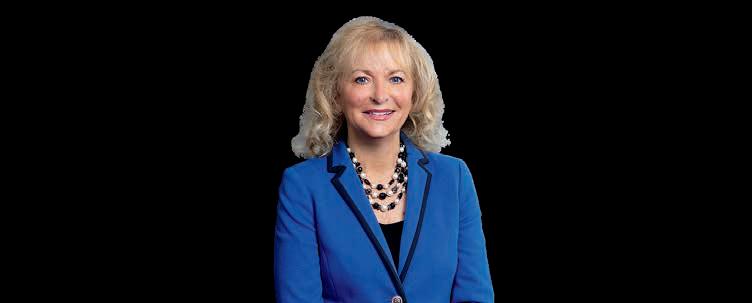



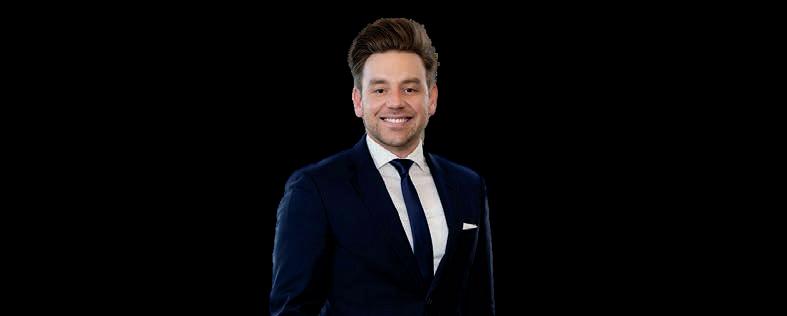
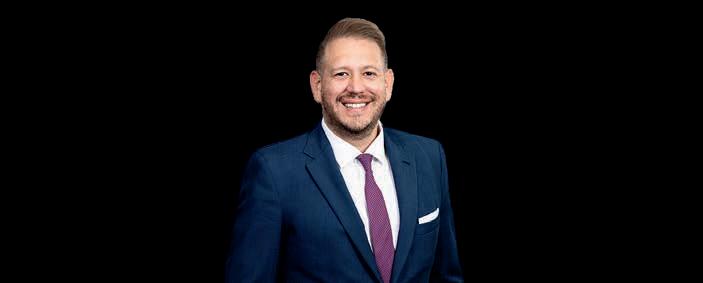
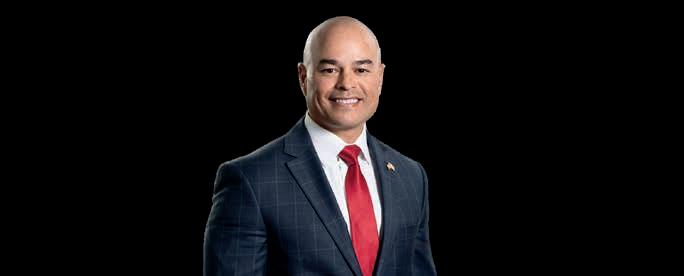

By Drew Dixon
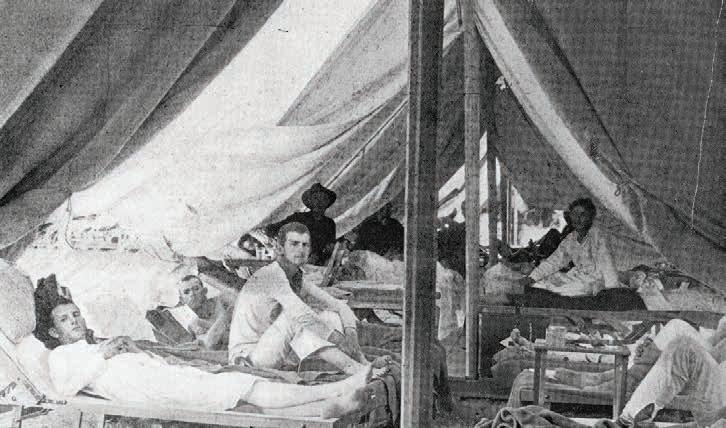
Before the Florida Medical Association was established 150 years ago, Florida’s medical infrastructure consisted largely of pop-up-type hospitals where patients would receive treatment.
In Florida, 150 years of anything is a pretty long time. With the exception of St. Augustine and other historic locales, generally speaking, not too many things have been around the state that long.
That’s what makes it so remarkable that the Florida Medical Association (FMA) celebrates its sesquicentennial this year. The organization celebrated its 150th anniversary this summer in Orlando at the
Hyatt Regency Cypress Resort.
The event showcased how the FMA has evolved, through a packed schedule of luncheons and seminars covering topics ranging from good government practices regarding medicine, to legal issues facing doctors to events involving medical educational issues, among others.
Lauren Byrd, Vice President of Communications and Strategic Partnerships
for the Florida Medical Association based in Tallahassee, said there are now about 25,000 members, mostly physicians with some medical students and residents along with out-of-state physicians who still hold their Florida medical licenses.
“It’s kind of the innovation that’s happened with medicine, and recognizing what Florida started with and what we’ve been able to build,” Byrd said.
That growth spans traditional general family practitioner models up to larger hospital systems. And in celebrating this sesquicentennial, the group has been focused on how the organization has grown since it was founded in 1874.
“The Florida Medical Association is the statewide association today representing physicians,” Byrd said of the organization. But the depth of the association was founded on some life-and-death needs.
“When the Florida Medical Association really started way back when, it was physicians coming together to tackle the health care issues,” she said, adding those early priorities involved health epidemics in newly established cities and groups of people in a pretty wild state that would not see modern development for decades.
There were literally “pop-up” hospitals sprouting around the Florida peninsula at the time, Byrd said.
The medical field had to respond quickly, leaving much of the early formation of the FMA centered on radical changes in health care crises ranging from new vaccines to wide-spread smallpox to having a foundation of a functioning medical industry in the state that was growing even before air conditioning and government-organized mosquito control.
“What it has grown into is an organization that is really still looking at public health and the issues that are facing patients in regard to public health measures and how we can help,” Byrd said. “It’s also looking at physician education and what physicians need and providing them that education, providing them the latest guidance on patient care.”
The Florida Medical Association has become a strong advocacy organization as well. Byrd said that’s likely an enduring legacy that goes beyond the simple histo-
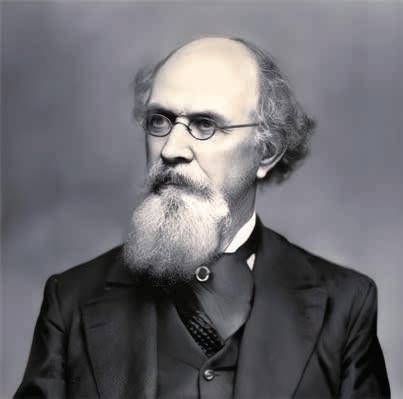
ry of the medical profession over the past century and a half in Florida.
One of the FMA’s objectives is to create a less burdensome regulatory environment for physicians in the state. But the organization gets into leadership training and more astute business awareness as well, an area in which not all physicians receive detailed training in.
“It’s certainly evolved from strictly trying to save lives and manage outbreaks to now a very high-level of protection of the practice of medicine and the advocacy of positions,” Byrd said.
Keeping an eye on both state and federal lawmakers and potential legislative impacts on physicians is an intricate process in today’s medical environment, Byrd said.
“It’s really looking at any legislation or new law that has an effect one way or an-
other. It could be a positive effect. Physicians may want to get behind it,” Byrd said. “Or we could think there’s a problem and we’d like to help with that. We’re the ones treating our patients every day.”
While the diversity of geographic areas in Florida was more profound if not isolated 150 years ago, adding to a greater challenge providing consistent health care, Byrd said the association stepped to the forefront during the COVID-19 pandemic and stabilized some of the treatment as it finally started to subside.
“We became strictly a hub for information,” Byrd said of the FMA’s days during the pandemic. “We wanted to be the place where physicians could go. There was a lot of information swirling around. We wanted to make sure that we were putting out the correct information.
“When the Florida Medical Association really started way back when, it was physicians coming together to tackle the health care issues, adding those early priorities involved health epidemics in newly established cities and groups of people in a pretty wild state that would not see modern development for decades. – LAUREN BYRD

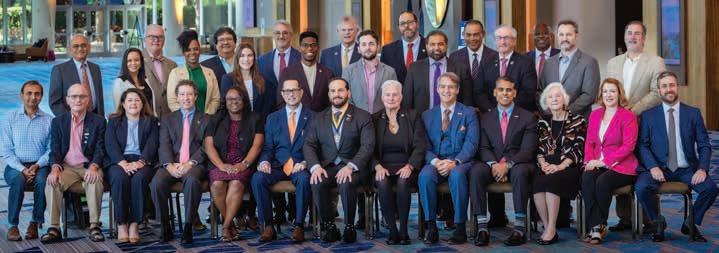
The FMA has grown from a small advocacy organization for physicians to representing what is now 25,000 members, including doctors, medical students and some out-of-state physicians who hold a medical license in the state.
“We had a lot of physicians who were closing their practices and we provided a lot of information there and a lot of guidance there,” she said, adding there were legal advisories and business counseling the association was ready to pass along to doctors.
“We really prided ourselves and worked really hard to be a base for physicians to come and say, ‘What do I need,’” Byrd said.
The Florida Medical Association was able to provide raw information on the spread of COVID-19, including explaining what rights physicians had to financial protections, tips on dealing with staff and, of course, how to help patients cope during a dark period in Florida and U.S. history.
“That was a week-to-week rolling mentality and machine we tried to keep going for our physicians,” Byrd said. “It didn’t matter if you had never been a member or you had been a member since Day 1, it was
getting the correct information out to physicians and helping them weed through all the noise that was happening.”
Byrd acknowledged COVID-19 was a critical moment for the Florida Medical Association as physicians across the state experienced different impacts from major cities to rural counties.
“We had physicians at safety net hospitals who were seeing everybody for the normal stuff they see and then you add this (pandemic) onto it. We had some physicians who were saying they had patients in the hallways and were cleaning out supply rooms so they could put people in it,” she said.
She gushed praise for the Association thriving on a mission that dates back to its founding — advocating for and assisting medical providers to enhance patient care and health care access.
“We were also doing a lot of connect-
ing of who has supplies, who can come up where, where was (help) most needed,” Byrd said. “We were also triaging those physicians, practices and hospitals who really needed our help.”
Given the foundation and response to crises the Florida Medical Association has endured from its beginnings to major crises in recent years, Byrd said she sees the organization as only getting stronger in future, progress that will translate into better care for Floridians.
“I think it’s going to certainly continue to serve the important role that it has with physicians really being on top of what’s happening with medicine,” Byrd said. “Really, at the heart of it is patient care. Obviously, there’s the high cost of health care and we’ll look at how the FMA can play a role and make sure every patient in Florida has access to high quality health care.”


Over 2,500 residents and fellows training at HCA Florida hospitals
More than any other hospital system in Florida
25 hospitals partnering with 4 major universities
Florida International University
Nova Southeastern University
University of Central Florida
University of South Florida

By Janelle Irwin Taylor
How Florida’s Specialty Hospitals for Children is working to make Florida a leader in pediatric cancer care
Florida’s Specialty Hospitals for Children, a group that advocates for ensuring all Florida children have access to world-class, specialized care, is collaborating to boost Florida’s position as a leader in pediatric cancer care and ensuring Florida families battling the unimaginable can access quality treatment without leaving the state.
Florida is the third-largest state in terms of pediatric population and accounts for 6% of all new pediatric cancer cases in the United States. Yet Florida does not have a top 25 pediatric cancer program and has only one top 50 program. An estimated 10% of children with cancer — and approximately half of those with relapsed cases — leave Florida for pediatric cancer care.
Florida’s specialty children’s hospitals are uniquely positioned to elevate pediatric cancer care and secure Florida’s place as a top-ranked state in pediatric research, innovation and treatment.
Right now, 1 in 4 Florida children will receive treatment in Florida’s nonprofit specialty-licensed children’s hospitals: Johns Hopkins All Children’s Hospital in St. Petersburg, Nemours Children’s Hospital in Orlando, Nicklaus Children’s Hospital in Miami, and Wolfson Children’s Hospital in Jacksonville. These four hospitals serve the majority of Florida children with inpatient admissions for complex cancer conditions or rare tumors.
Florida’s specialty children’s hospitals have committed to investing in four key areas — research, recruitment, program development and infrastructure/technology — to bridge coverage gaps and make Florida’s specialty children’s hospitals a destination for world-class pediatric cancer care.
“No family should have to leave our state for critical cancer care. There is a critical opportunity for collaboration with Florida’s Specialty Hospitals for Children and the State of Florida for robust and integrated clinical programs and research that define state-of-the-art cancer care for children,”

a joint statement from the four speciality hospitals reads. “As the four hospitals solely focused on investing in and providing pediatric care, we are committed to building the best cancer programs to make Florida a top-tier state for pediatric cancer care.” Progress is already underway.
Johns Hopkins All Children’s Hospital has the state’s only top 50 pediatric cancer program, ranked by U.S. News & World Report at No. 31 in the nation. The hospital has three fellowship programs to train the next generation of doctors. It also has one of the highest enrollments in the U.S. for children’s oncology group studies.
At Nemours Children’s Health and Wolfson Children’s Hospital, leaders recently collaborated to open a state-of-the-art facility — THE PLAYERS Center for Cancer and Blood Disorders — that has elevated hematology/oncology treatment in our state. The center includes one of the largest pediatric sickle cell programs in Florida and is part of the Nemours Children’s Center for Cancer and Blood Disorders, which is the most extensive pediatric cancer program in the state, with treatment centers in Northeast and Central Florida.
Nicklaus Children’s Hospital recently announced a $15 million gift from South Florida philanthropists Helen and Jacob Shaham to further elevate world-class pediatric cancer care and research through the hospital’s cancer and blood disorder institute. In recognition of the gift, the program now proudly bears the name, the Helen & Jacob Shaham Cancer & Blood Disorders Institute. Nicklaus Children’s Hospital also recently collaborated with Florida International University to conduct a firstof-its-kind clinical trial to guide personalized treatments for some of the deadliest children’s cancers.
Top: Florida’s Specialty Hospitals for Children are led by CEOs Matthew A. Love (Nicklaus Children’s Health System), Martha McGill (Nemours Children’s Health), Allegra Jaros (Wolfson Children’s Hospital), and Alicia Schulhof (Johns Hopkins All Children’s Hospital), dedicated to delivering specialized, life-saving care to children across Florida. Middle: Governor Ron DeSantis and First Lady Casey DeSantis at Nicklaus Children’s Hospital, signing cancer research funding legislation and discussing future expansion of funding beyond NCI-approved programs as part of the Cancer Connective Collaborative. Bottom: Map shows number of ranked hospitals in each state
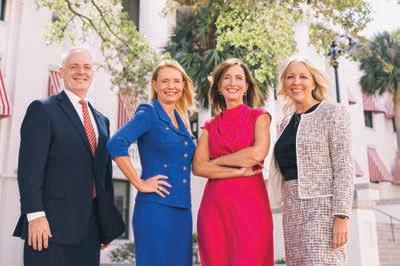
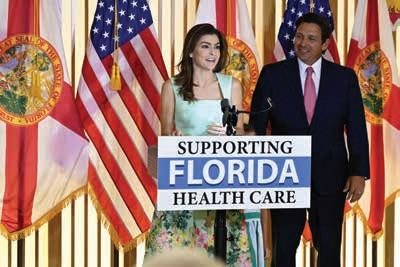
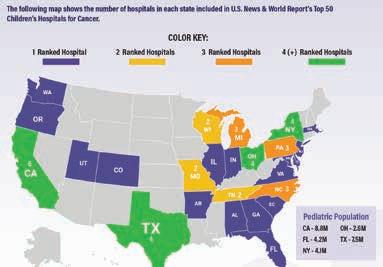


The Florida Hospital Association advocates for Sunshine State hospitals and health care systems to support their ability to provide cutting-edge, innovative health care technology and treatments for Floridians. Modern, sophisticated, high-quality care close to home supports comprehensive patient care for the best outcomes.

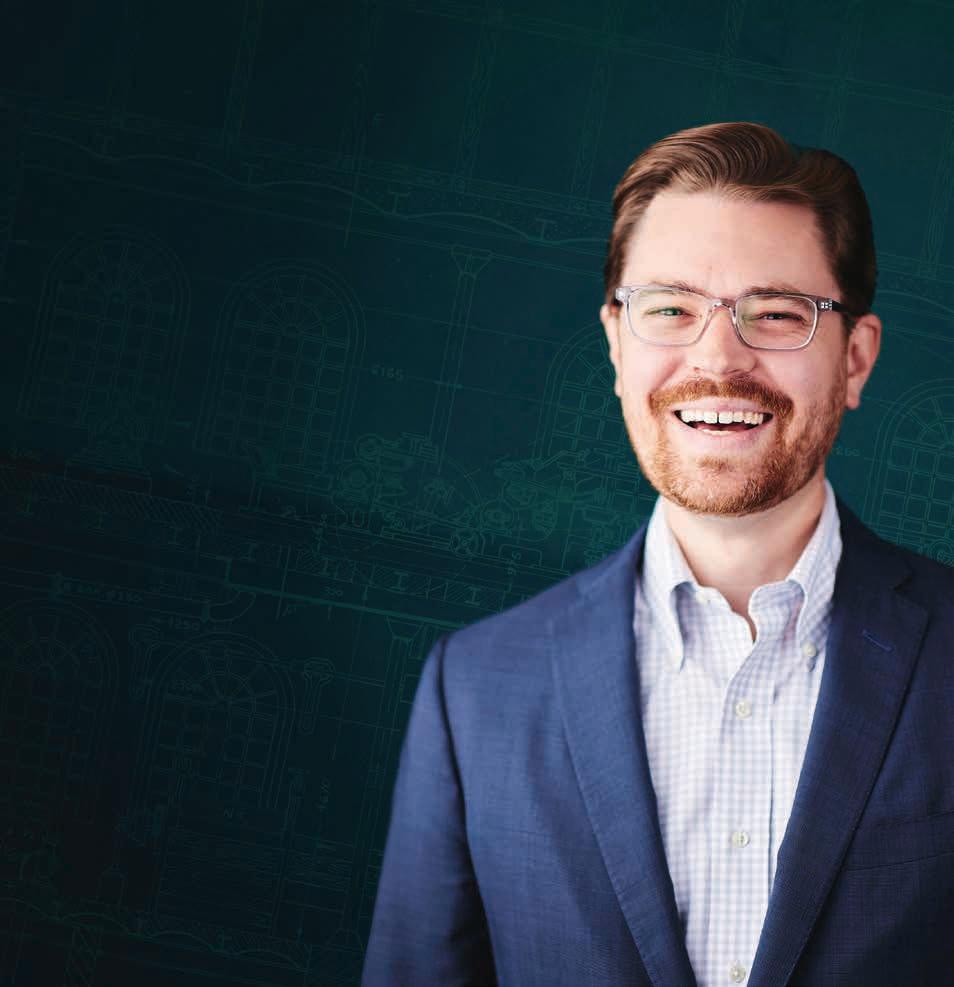
If you need help hanging pictures or mounting a TV, look elsewhere.
But if you need to bring strategy and clarity to the most complex issues, we might know a guy.
Consensus Communications congratulates Ryan Houck for being recognized as one of Florida’s “Great Communicators” by Influence Magazine.






TAMPA GENERAL HOSPITAL AND USF HEALTH MORSANI COLLEGE OF MEDICINE CONTINUE TO DEVELOP AND GROW TAMPA’S MEDICAL & RESEARCH DISTRICT.
In partnership with Tampa Bay Economic Development Council, we are leading the charge on a hub of world-class clinical care, academics, research and biotechnology — creating a more prosperous economy and healthier population.
We would like to welcome the Moffitt Community Engagement Center and Verséa to the district and the city.
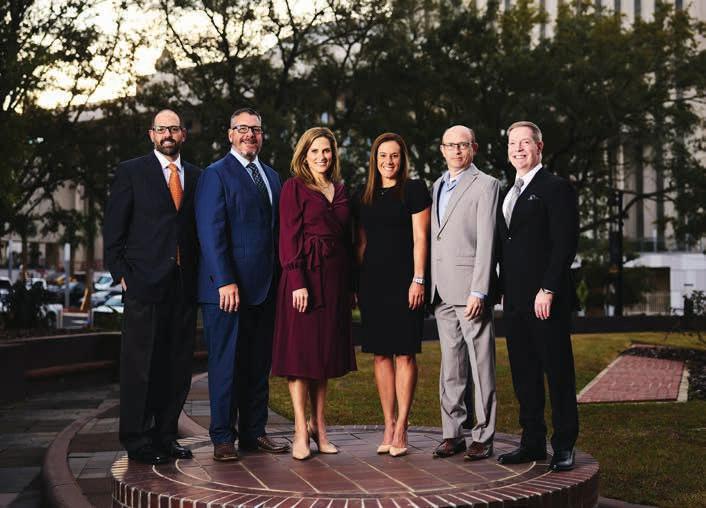
By Bennett Napier, CAE
Headquartered in Tallahassee, Partners in Association Management (Partners) is the largest association management company in Florida. Twenty-three state, regional, and national not-for-profit organizations call Partners their home for day-to-day management.
While Partner’s forte is association management, it also actively supports clients’ government affairs initiatives. Partner’s team members collaborate and augment the expertise of contract lobbyists in assisting with public policy issue development; grassroots campaigns through member engagement; coalition building; and PAC development and management.
Public policy issue development includes identifying and prioritizing policy objectives; conducting analysis of the landscape and respective challenges and solutions (regulatory and legislative); and creating collateral materials (white papers, talking points, impact statements) to educate targeted audiences.
Partners first works on policy with client boards of directors and the association membership. The subsequent product is then augmented by public and media relations firms and carried through the halls of the Capitol by contract lobbying firms, targeting external audiences such as the media, legislators, and regulators.
Partners President and CEO Bennett Napier (far right) with the association management company’s leadership team and lobbying partners who have contributed to the firm’s long-term success.

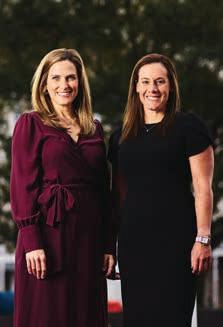
Partners team members with lobbyists who advocate for their clients. Top Left: Lobbyist William Stander of WHISPER and Partners President and CEO Bennett Napier, who serves as Executive Director for Florida Life Care Residents Association. Top Right: Lobbyist Clark Smith of The Southern Group, and Partners Vice President John Ricco, Executive Director for the Florida Cemetery, Cremation and Funeral Association. Above:
Capital City Consulting lobbyist Ashley Kalifeh and Partners Vice President Jillian Heddaeus, Executive Director for Florida Surplus Lines Association.
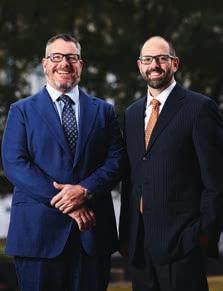
In terms of grassroots, Partners has experience working with organizations on “keeping politics local.” Each year, staff in the firm give association members the necessary tools to build and enhance relationships with legislators in their districts.
A good example of grassroots engagement is Partner’s work with the Florida Life Care Residents Association (FliCRA). This organization is composed of more than 12,000 senior citizens who live in licensed continuing care retirement communities. The average member is 85 years old. The association’s local leaders conduct candidate forums/debates during election season at retirement communities, testify at county legislative delegation meetings, and throughout the year host lunch and community tours with state and federal legislators and their staff.
Gaining influence through informal and formal coalitions and leveraging partnerships is another area of success for organizations managed by Partners.
Death care is a highly regulated profession. Like a health care setting, funeral facilities, and many of their employees, are licensed by the state. The industry has an executive branch regulatory board that meets monthly. Partners’ client, the Florida Cemetery, Cremation and Funeral Association (FCCFA), works with contract lobbyist, Georgia McKeown; regulatory counsel, Wendy Wiener; as well as Clark Smith (who represents Service Corporation International, the nation’s largest funeral provider and a loyal FCCFA member) to advance the legislative and regulatory priorities of
the association. The team communicates frequently to ensure the industry’s interests are well represented among all stakeholders.
Another example is the Florida Ground Water Association (FGWA). In the last few years, FGWA coordinated a non-exclusive, informal coalition of seven Florida environmental industry associations in response to the “pause” in funding for the Florida Department of Environmental Protection’s Petroleum Restoration Program (PRP). The coalition’s goals were to cooperatively share ideas and develop a unified response to Florida government officials regarding the reduced PRP funding budgets.
The coalition consisted of members from the Florida Ground Water Association, the Florida Association of Environmental Professionals, the Florida Association of Professional Geologists, the Florida Engineering Society, the American Council of Engineering Companies of Florida, the Florida Independent Petroleum Producers Association, and the Florida Brownfields Association.
Partners recognizes the stakes are high within Florida politics and money is needed to actively participate in The Process. The Partners team works with client associations to hit financial target goals through a variety of fundraising techniques, including direct outreach to members, and creating and hosting special PAC fundraising events.
Partners’ services enhance an association’s ability to influence legislation and regulations, as well as provide a trusted partner to work alongside lobbying firms to accomplish their mission.
Partners’ client base includes a growing list of interests who are active in the Florida Legislature, which includes insurance, long term care, death care, environmental, public housing, dental, general health care and fire protection.
Bennett Napier is the President and CEO of Partners in Association Management and has been a Certified Association Executive for more than 25 years. He is a past board chair for the AMC Institute, a global trade organization for the association management industry.

Connect with us anytime, anywhere: flmedical.org
The Florida Medical Association is Florida’s premier medical professional association and the most influential advocate for doctors in the Sunshine State. We help physicians practice medicine so that they can deliver high quality patient care that keeps Floridians healthy, protects the public health, and enhances the quality of life in our communities.


How can we make an impact that matters, together?
Deloitte’s Government & Public Services practice –our people, ideas and technology – connect for impact to help Florida leaders improve outcomes for the people they serve.
We combine our human experience, deep insights and emerging trends to help you reimagine the possible, build trust and drive bold innovation.
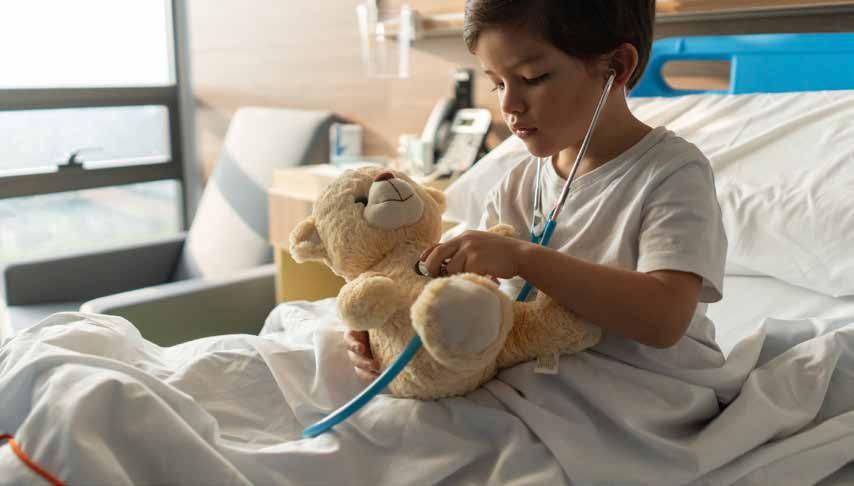
Florida’s Specialty Hospitals for Children are driving the future of pediatric cancer treatment and research to ensure no child has to leave Florida for world-class, specialized cancer care.
As the only Florida hospitals solely focused on investing in and providing pediatric care, Florida’s specialty children’s hospitals are committed to making Florida a national leader in pediatric cancer research, innovation and treatment.
Serving the majority of Florida children with complex cancer conditions
The four hospitals in the state with the highest Medicaid utilization
1 in 4 Florida children will be treated in Florida’s specialty children’s hospitals





Curated by Peter Schorsch and Janelle Taylor
Everyone in The Process knows the drill. When duty calls, you answer. And it doesn’t matter if it’s midnight, if you’re on vacation or if you have to step off the tennis court.
No one knows that reality better than the people who get the word out: the Great Communicators. These individuals manage communication strategies for nonprofits, government agencies, elected officials, candidates, think tanks and everyone and everything in between. For many, it’s their job to make their clients look good. For some, it’s their job to report important news to maintain an informed electorate.
But for almost all of them, their crucial work was put on display in late September and early October as Hurricane Helene ravaged much of Florida, only to move inland and bring more death and destruction as far north as Virginia. These Great Communicators have been tasked with sharing at times life-saving information about warnings, critical resources and available services.
To the uninitiated, it may seem like easy work. How hard can it be to tell people to evacuate, or where to evacuate, or where to get water? But in reality, the unseen work of these often unsung heroes — ask any and they will tell you they aim to never be part of the story — is either difficult, exhausting, distressing, or some combination of all three.
It’s that level of dedication, and the importance of the role, that led us to select these particular standouts in the communications field. Each honoree was provided a questionnaire meant to highlight just how “on” these individuals are, and give us some insight into who they are when they at least attempt some semblance of “off.”
What you’ll find is a group of professionals who somehow manage to juggle family life with work life, often blending the two in unique ways that work for them.
So to this year’s cohort of Great Communicators, congratulations and thank you.

Sarah Bascom, President; Lyndsey Brzozowski, Executive Vice President; Kelsey Deasy, Senior Vice President; Kristen McDonald Grissom, Vice President; Alyssa Rudd, Communications Consultant


Always on but always together and covering each other so we can work as a team and help each other out
With the necessary “always on” grind in the world of communications in The Process, how do you balance your work life with your personal life?
By having a great team. If one person has a client emergency or after-hours need but has a family commitment, someone else steps up to cover and get the job done. If one person is super busy, then we are all super busy. We work really hard so that we can have that balance.
What’s your go-to stress reliever? It varies for all of us, but downtime with our families is usually what we prefer.
We used to do happy hours together as a team, now we go on beach vacations together with kids running around and everyone going to bed at 8 pm. We also try to get together as a team and escape for a night to the beach when schedules align.
If you have to be always on, who do you most enjoy being always on with, and why?
Everyone says their coworkers are like family and I am sure most mean it, but for us it’s more like a group of friends, which makes it like family. We enjoy being together, we discuss work and kids and life and dogs and home repairs. We always
have lunch together and when we find time to escape together we have a great time. I enjoy going to work with these ladies every day, they are friends and happen to be excellent communicators and fantastic at their jobs.
Describe how you came to be a Great Communicator?
We just work very hard at our profession. We bounce ideas off of each other, we listen, learn, read. We discuss different ways to approach a problem, we are constantly looking for ways to better our craft and change up our approach. Communications and especially the political landscape
“We enjoy being together ... we have a great time. I enjoy going to work with these ladies every day, they are friends and happen to be excellent communicators and fantastic at their jobs.”
is constantly changing so you have to be willing to learn and adapt and change your approach so you can grow and stay at the top of your game.
If you could ditch the 24/7 grind, what 9-5 job would best suit you?
I would love to run a bakery if someone else would do the baking at 5 a.m. or a flower shop with Crystal Stickle. And in all seriousness, I would love to be a novelist and do nothing but write all day.
Lyndsey: Travel and food writer/travel the world and write.
Alyssa: Own a furniture store on the coast.
Kelsey: Own a hobby bookstore, with a bakery and coffee shop.
Kristen: I would love to run a doggie day care.
Name your favorite client, and explain how they stole your heart.
Nope. That sounds like a way to make other clients unhappy!
No one works in a high-stress, never-unplug sort of field unless they really love it. Why do you love it?
It changes every day. I enjoy the fast pace of the job, problem solving, writing and the constant changing of the issues. This job is not boring and is always challenging.
Who have been some of your most impactful mentors, and how do you pay it forward for the next generation of communications leaders?
I have answered this question many times and I always name the same two people: former Senate President Jim King who gave me my first shot in politics as a young kid and Ken Cashin who taught me how to run a business. But I also credit former Sen. Mike Bennett who told me when I left the Senate to find something I enjoyed and was good at and make a career out of it.





Chief Operating Officer, Tucker/Hall

With the necessary “always on” grind in the world of communications in The Process, how do you balance your work life with your personal life?
I spent the first 23 years of my career in the news business, working in and managing TV news operations across the country, including three markets in Florida. My last stop in the broadcast business was in Tampa Bay, where I ran the news department at WTSP, the CBS affiliate. As we all know, there is never a shortage of big stories in Florida. In news, you can’t ever fully turn it off. That’s also true in high-stakes communications.
The most important thing is to have a great life partner who gets it, and I’m blessed to have that with my wife Deborah of more than 30 years.

No one works in a high-stress, never-unplug sort of field unless they really love it. Why do you love it?
The most exciting thing for me is to see how our work makes a difference both for our clients and our communities. At Tucker/ Hall, we make sure everyone on our team has the time to support community causes that are important to them. For example, I’ve served on the Propeller Club board since 2016, finishing my term as president in 2023. The Propeller Club is a maritime advocacy organization that was founded nearly 100 years ago to support the maritime business here in Tampa Bay. All my work with the Club is
voluntary, but I have learned so much, met incredible people, and supported an industry that is critical to the economic future of Tampa Bay and Florida.
Who have been some of your most impactful mentors, and how do you pay it forward for the next generation of communications leaders?
The list is long, but I’ll call out one: Jim Harnish, retired senior pastor at Hyde Park United Methodist Church. Jim ministered me, my wife, and our four children for 15 years while he was at Hyde Park, and he has remained a close friend in retirement. Jim gave me the freedom to question my faith, and the confidence to more fully live it out.
Nearly 20 years ago, Jim also asked me to serve on a communications committee at church. The person chairing that committee was Tucker/Hall President Bill Carlson, now my good friend and business partner.
Knowing what you know now about this business, If you could go back and give yourself one piece of advice, what would it be and why?
Go out to lunch! You get to know people and your community better, and you won’t really miss anything back at the office.
MBA, Deputy Executive Director of Community Relations

Always
on always in all ways
With the necessary “always on” grind in the world of communications in The Process, how do you balance your work life with your personal life?
I don’t have balance without my tribe. My wife (Janna) and my daughter (Ava) are my entire world, and they know me better than I know myself at times. As I grow older, I’ve become more focused on being present in the moment. It is also why I often check myself through a self-accountability test. I imagine my life 10 years from now, envisioning the outcomes if I allow distractions to interfere with being present for the most important roles in my life: being a husband and

in others. Also, knowing that I could be a small part in the life story of others would be rewarding.
No one works in a high-stress, never-unplug sort of field unless they really love it. Why do you love it?
For me, it begins with the mission that my team and I get to deliver. We have this incredible opportunity to not only raise awareness of law enforcement and public safety, but we get to work with some of the most dedicated individuals and groups who are striving to create safer communities so that our future is in a better place than our past. It is a mission with a purpose, and that purpose drives me to give my best, even during the most difficult of days. We believe in what we are doing, and we have seen the positive impact that has come from that.
Knowing what you know now about this business, If you could go back and give yourself one piece of advice, what would it be and why?
a father. I’ve lived what it was like to be out of balance, and it is important to me that I never go back to that place so that I can give my best to my family, my team, and those that I have the opportunity to interact with, even if it is a stranger.
If you could ditch the 24/7 grind, what 9-5 job would best suit you?
I’m a strong believer in the power of people and in helping them maximize their abilities and passions. I’m not sure I would know how to handle a 9-5 job, my DNA is built to always be moving forward and seeking progress. However, I know I would find joy in being a professor or motivational speaker so that I can harness my belief

It’s more about the genuine connection and less about the systematic approach that you would find in a book. Your audience is too intelligent and aware to use the so-called “tricks of the trade.” It’s important to provide a message, whether that is in an interview or even through a social media post, with an honest and authentic delivery. It is easy to lose the trust of an audience, and everyone should care more about that than the analytical results of impressions and clicks. If you don’t have trust, you don’t have a message, and if you don’t have a message, you don’t have a mission. My mentor, Karen Moore, would often tell me to always say yes to an opportunity, and I wish I had heard that earlier in my life because that lesson led me to becoming a better listener. We can all learn something from each other, and it is important to say “yes” when someone asks you if they can talk to you about their thoughts and opinions. Saying yes leads to a better community for us all.
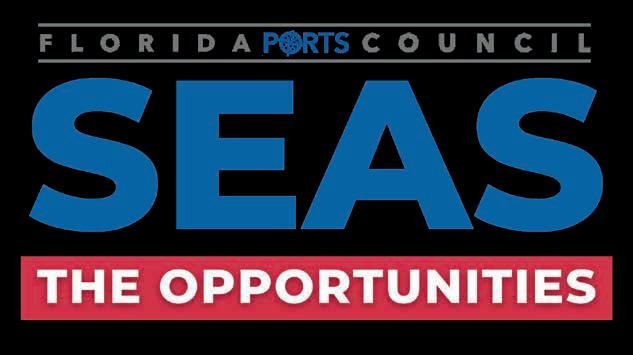
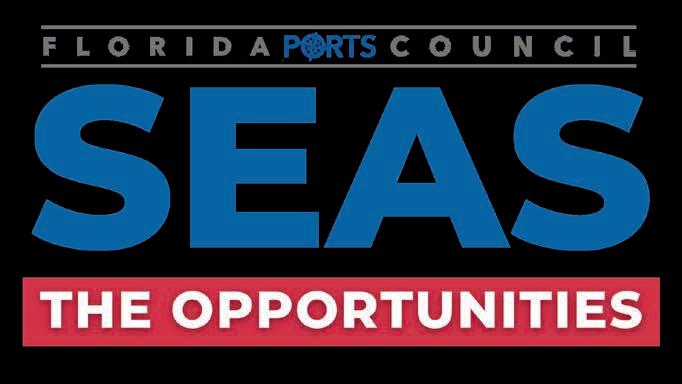



Pathway Public Affairs Principal
With the necessary “always on” grind in the world of communications in The Process, how do you balance your work life with your personal life?
Let’s be honest. Doing the kind of work we do, there’s a blending of the work/ personal life. It’s partly because we’re all addicts. But in my case, it’s also because the people I work with are some of my best friends. So, when you do work that you love with people you genuinely enjoy spending time with, the work dinners, the late-night phone calls, the travel feel less like work.
But I can also be a homebody and an introvert. I try to workout every day. It keeps me sane and focused.
What’s your go-to stress reliever?
Probably golf, because it combines many stress relievers into one. You’re outside in the fresh air. You’re hanging out with friends. You’re drinking cold beers. You’re hitting things and shouting expletives. What could be better?
Who have been some of your most impactful mentors, and how do you pay it forward for the next generation of communications leaders?
Coming up in Rick Scott-world, I’ve probably taken for granted the way that he builds teams that really feel like a family. Jackie Zeckman has been there almost from the beginning.
I’ve been blessed to work with great people throughout my career in Florida, D.C. and a few other pit stops along the way. It’s hard to name all of them. But people like Matt Moon, Melissa Stone, Matt Parker, Craig Carbone, Teresa Koeberlein, Curt Anderson, and Joanna Burgos are people that I’ve looked up to and learned from. More recently I’ve been able to work with Phil Cox, Generra Peck and Marie Sanderson at P2 Public Affairs who have helped me expand my skill set and learn more about the intersection between politics, public policy, and corporate communications.


Always on always thinking about what’s next on my to-do list
Knowing what you know now about this business, If you could go back and give yourself one piece of advice, what would it be and why?
I’d give myself the same advice I give to younger folks in this industry. Making 5- or 10-year plans can be great, as long as you understand that they’re aspirational

and you don’t allow those plans to limit the options you consider. Be open to new opportunities. Take on new challenges. Don’t arbitrarily put yourself in a lane that dictates the choices you make. Move to a random state and work on a campaign. Take a job that you’re not sure you’re qualified for. And work with people who challenge you and your presuppositions.
President and CEO of Pinnacle Media


No one works in a high-stress, never-unplug sort of field unless they really love it. Why do you love it?
Chair, Ballard Media Group
always reaching to make the unimaginable real


If you could ditch the 24/7 grind, what 9-5 job would best suit you?
I’ve always found that working for what you believe in, what you do best, is not work at all. I have often said, only part in jest, that the only times I’ve not been on the clock have been when I was under anesthesia. With that said, I’ve always harbored an unfulfilled ambition to be a bartender at a place filled with unfulfilled professionals — part server, part therapist, part life coach.
What’s your go-to stress reliever?
I thrive in situations that require quick-thinking, creativity, and the need to predict short- and long-term outcomes. I love starting each day knowing there’s a degree of unknown in what challenges and opportunities will arise that require immediate assessment, collaboration, strategy, and execution.
What’s your go-to stress reliever?
Running outside. Nothing clears my head better than a long run. Knowing what you know now about this business, if you could go back and give yourself one piece of advice, what would it be and why?
Read and re-read “The Art of War” by Sun Tzu. You’d be shocked by how many combat tactics from 5th Century B.C.E. China can be incorporated into modern-day public affairs and crisis communications strategies.

I have always cheered for the underdog, in sports as in life, believing that overcoming the odds, the expectations of others, is intoxicating. To that end, I have been a long time fan of a chronically under-performing English soccer team, the Queens Park Rangers, whose mediocrity is trumped by the fans’ never-say-die attitude that says, maybe, just maybe, THIS is the year we’ve been waiting for. May the record reflect those same fans have been waiting a very long time!
Describe how you came to be a Great Communicator?
My father was one of the original “Mad Men” in the ad business who, against all advice from family and others, did the media for a GOP candidate for Governor in Maryland, Spiro Agnew, who went on to great success (and infamy). From that start, Bob Goodman did campaign media for Presidents, Senators, and Members of Congress armed with outside-the-box creativity and an amazing instinct to translate what people were feeling into where they could invest those feelings. The key is to be fearless, to buck the herd, to go where others feared to tread. Those lessons are even valuable to any communicator today who wants to put a unique stamp on their work and on the world around them.

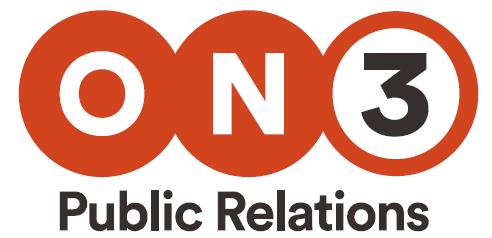
1 5 + Y E A R S O F N E W L O G O . N E W W E B S I T E . S A M E A W A R D - W I N N I N G C L I E N T S E R V I C E
G R A S S R O O T S A D V O C A C Y
C O R P O R A T E A N D P O L I T I C A L
C O M M U N I C A T I O N S S T O R Y T E L L I N G E X P E R T S
C h r i s t i n a J o h n s o n P r e s i d e n t c h r i s t i n a @ o n 3 p r . c o m

WORLEY & MDW
Senior Partner and CEO, MDW Communications
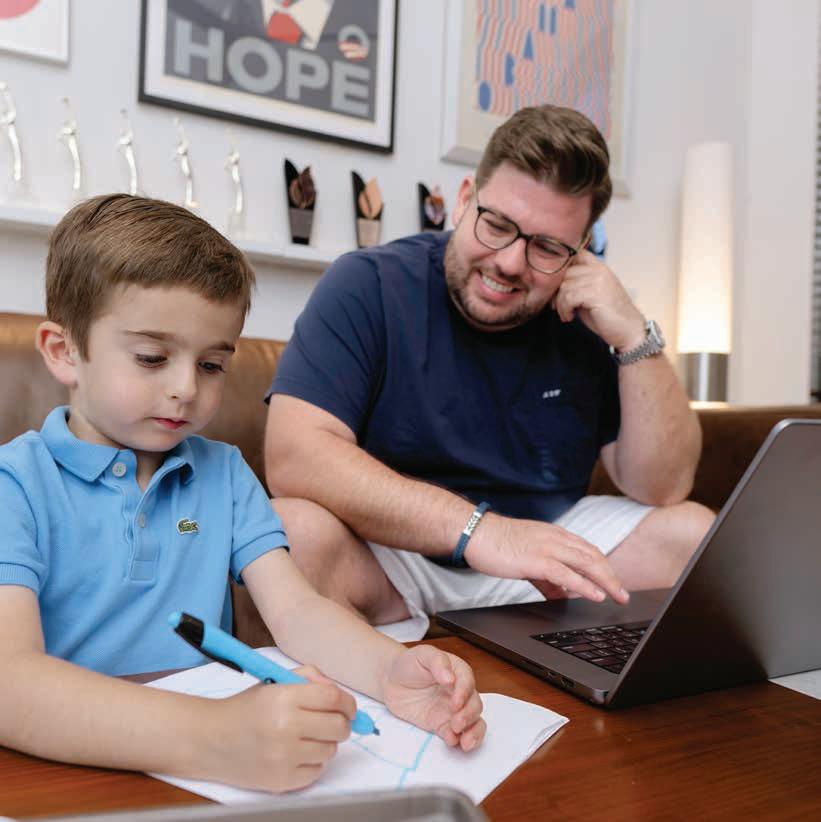


on always exploring

I knew it’s what I wanted to do with my life and I am so lucky that I get to do it every day.
No one works in a high-stress, never-unplug sort of field unless they really love it. Why do you love it?
Ever since 2009, when I read “Bad Boy: The Life & Politics of Lee Atwater,” I was absolutely hooked on campaigns. The excitement around them is so addictive. I knew it’s what I wanted to do with my life and I am so lucky that I get to do it every day.
Describe how you came to be a Great Communicator.
When I was in high school, I really enjoyed debate and became very interested

in politics and campaigns. When I was in college, I was fortunate enough to be elected the National Communications Director for the College Democrats of America, where I was taught by folks at the DNC how to engage with the media and shape a consistent message.
What’s your go-to stress reliever?
A good Nicaraguan cigar.
If you could ditch the 24/7 grind, what 9-5 job would best suit you? Would love to combine two of my big passions and be a full-time travel photographer.

If you have to be always on, who do you most enjoy being always on with, and why?
The Senate has a tremendous professional staff. They are doing the hard work behind the scenes. The opportunity to listen to and learn from their experience and expertise is amazing. From the policy and budget experts in Senate committees, to the dedicated district staff, to the tireless support staff across various Senate offices, there is a wonderful team dynamic where everyone supports and encourages one another.

Name your favorite client, and explain how they stole your heart.
I definitely cannot pick a favorite presiding officer! To serve as someone’s spokesperson during their two years as a presiding officer is an honor and an incredible responsibility I take very seriously. They are each special and unique in their own ways. I have learned so much from each one. In particular, the last two years working for President Kathleen Passidomo have been so memorable. She does it all. She can stay up all night reading and editing bills, and still beat everyone into the office with a freshly-baked Irish soda bread for breakfast, or pan of meatballs and eggplant parmesan for lunch. I knew about her tireless work ethic and keen attention to detail, but witnessing her grace, good humor, compassion, and steadfast leadership, even in the midst of great personal tragedy, has been an experience I will never forget.
No one works in a high-stress, neverunplug sort of field unless they really love it. Why do you love it?
No two days are alike. The history and traditions of the Senate are very special, and I love the opportunity to work for and learn from the Senators who each bring their own personal and professional experiences, per-
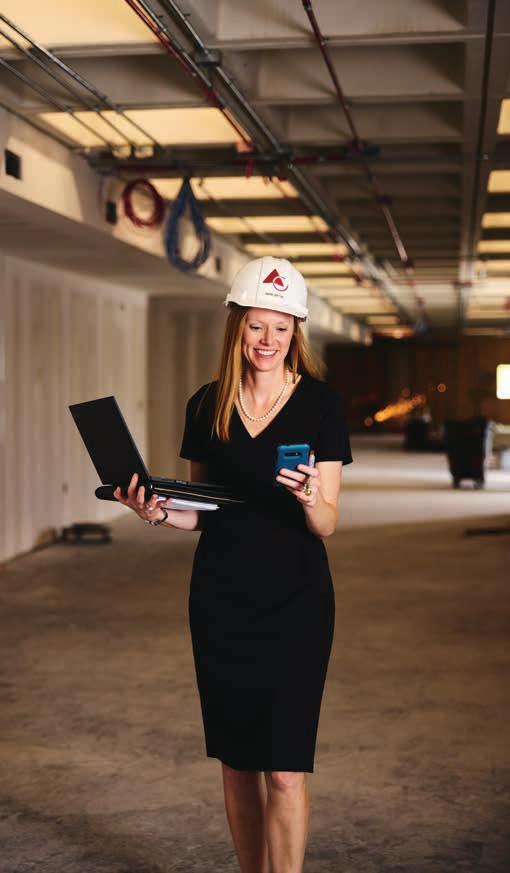
spectives, and convictions to Tallahassee. The Senators and their families make huge sacrifices to serve their constituents, and they work very diligently to make sure the voices of their communities are heard in the legislation they pass. The opportunity to help the President and other Senators communicate with their constituents and the media about the work they are doing here in Tallahassee is important to me. Every time I walk on the Senate floor, or hear the President call the Senate to order, I remember what a privilege it is to work here.
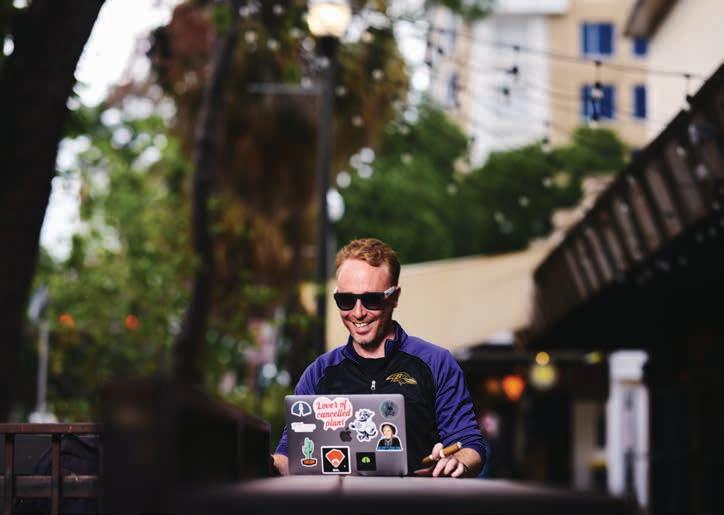
Who have been some of your most impactful mentors, and how do you pay it forward for the next generation of communications leaders?
Frankly, I can name a slew of candidates that I’ve worked with over the years who have just been incredible mentors. Vern Buchanan, David Jolly, Joe Gruters and Fiona McFarland are a few who come to mind.
But the gentleman who has consistently guided me through the ups and downs of this wickedly chaotic profession is one who has always preferred to stay out of the spotlight. Dave Karvelas started out as an AP reporter before taking the reins on Capitol Hill and steering multiple congressional offices as Chief of Staff. That is where our paths originally crossed. Buchanan wins by 369 votes in 2006 and Karvelas takes a chance on a 22-year-old without a sliver of congressional experience who just wanted to live closer to his family in Baltimore and go to Ravens games.

Founder, The Max Goodman Agency
Describe how you came to be a Great Communicator?
Well, I would not call myself a “great” communicator. I believe there is always room to improve and grow in this business.
But I do personally know a couple “great” communicators.
My father was one of the original Mad Men in this business and is in the political consultants Hall of Fame because of it. Bob Goodman taught this field (and me) the power of emotional connection between candidates and those they wish to serve. Whether through radio jingles or putting a politician on horseback, dad knew how to effectively reach the heart of the electorate. Growing up, we’d spend hours in the living room putting those three-quarter inch cassette tapes into the machine and watching old footage he produced for President George H.W. Bush, Vice President Spiro Agnew, Sen. Al Simpson and too many others to count. He was the best of the best. I will never reach his level and I am

so proud of that fact.
The other would be my brother, albeit a few decades my senior, Adam Goodman
With the necessary “always on” grind in the world of communications in The Process, how do you balance your work life with your personal life?
It ain’t easy! That is the ultimate struggle for anyone in this field and I have far from perfected it!
Fortunately, I have some great friends in Sarasota that help me navigate the stress and anxiety that this profession inevitably delivers in hordes. None more so than the love of my life and future bride who is a rockstar in her own right.
Now, does that exempt me from looking at my phone more often than I should or engaging in an endless loop of doom scrolling? No. As I said – far from perfect!


Chief of Strategy and External Affairs, Florida League of Cities


With the necessary “always on” grind in the world of communications, how do you balance your work life with your personal life?
For me, it’s less about strict separation and more about embracing the experience in both areas. I try to be fully present, whether I’m tackling a work challenge or spending time with family and friends. By savoring the moments — big or small — I find a sense of balance and fulfillment in the everyday, without constantly feeling the need to switch off completely.
What’s your go-to stress reliever?
Humor is my ultimate reset button. Whether it’s watching a comedian or sharing a lighthearted moment with friends, laughter is my go-to for a boost.
If you have to be always on, who do you most enjoy being always on with, and why?
I thrive when surrounded by people who work incredibly hard but also enjoy the ride. It’s inspiring to be around those who push for excellence yet don’t let the pressure of high expectations diminish their ability to appreciate The Process.
No one works in a high-stress, never-unplug field unless they really love it. Why do you love it?
I love the dynamic energy that comes with this field. It’s the perfect place for someone like me, with an insatiable curiosity and drive. The Communications field keeps me sharp, constantly learning, and gives me a chance to channel my creativity while meeting high standards. The unpredictability and demand push me to bring my best every day, and that’s extremely rewarding.
President VancoreJones
What’s your go-to stress reliever (this can be a favorite vacation spot, or just a quick activity, or even a favorite cocktail)?
Either hitting the gym and turning up the music so loud it crowds out the noise or getting on my bike in deep woods, especially at night, where I can focus and clear my head.
If you have to be always on, who do you most enjoy being always on with, and why?
You mean other than Peter? I am so lucky to have a wife who is my best friend and biking partner.
Describe how you came to be a Great Communicator?
In my Senior year of High School I was shocked to learn I was voted “most talkative”…it’s been all downhill from there!
If you could ditch the 24/7 grind, what 9-5 job would best suit you?
There is honestly nothing I’d rather do than work I do day in and day out.
Name your favorite client, and explain how they stole your heart.
I won’t name him, but we are on completely opposite sides of the political spectrum. In working side-by-side for a half-dozen years, I have learned that we have more in common than we have differences. He is a generous, loyal, kind man who is a devoted father and has become one of my best friends. In building this friendship, I have learned to be more understanding of differing viewpoints and feel I owe him a huge debt for that.
No one works in a high-stress, never-unplug sort of field unless they really love it. Why do you love it?
The diversity. The feeling of being part of something bigger than yourself. And when you help someone out of a crisis, there are fewer things more rewarding.
Who have been some of your most impactful mentors, and how do you pay it forward for the next generation of communications leaders?
There are way too many to name, but teaching one class a year at FSU gives me a chance to give what I have learned to the

coming generation. And I will say two of my favorite mentors, and they will both roll in their graves as I write this, but Rockie Pennington and Pete Antonacci were both so impactful in my life.
Knowing what you know now about this business, If you could go back and give yourself one piece of advice, what would it be and why?
Success in business is built by nurturing friendships, giving without expectation of a return, and not by tearing down others.
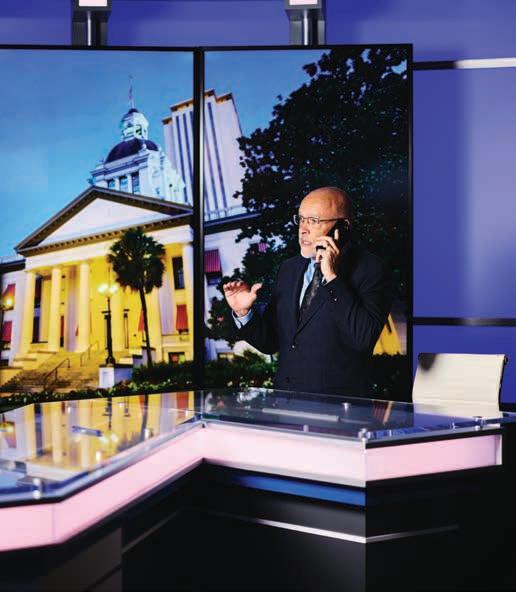


“Pushing myself outside my comfort zone has proven to be very fruitful.”

Amanda Bevis, Owner and Principal; Leigh McGowan, Director; Jessie Werner, Director; Brittany Morgan Clark, Creative Director; Maggie Gahan, Project Coordinator; Brooke Murray, Project Coordinator; Christna Hoffman, Project Coordinator; Caroline Hamon, Creative Coordinator; Madison Dorval, Project Coordinator
With the necessary “always on” grind in the world of communications in The Process, how do you balance your work life with your personal life?
Can you define balance? I’m not sure I’ve figured it out.
What’s your go-to stress reliever?
One week per year, I put up an out-of-office autoreply, and Brewster and I take the boys to visit a National Park. So far, we’ve seen Yellowstone, Yosemite and Acadia. Rocky Mountain is up next, then Grand Canyon and Zion. America is SO beautiful!
If you have to be always on, who do you most enjoy being always on with, and why?
Obviously, the Red Hills team. Each professional on our team brings unique skills and different experiences to the table, but we all share the same values. It’s a pleasure to work with people who value hard work and results. It’s comforting to be surrounded by a team who is willing to pitch in when a project requires all hands on deck.
Describe how you came to be a Great Communicator?

A lot of really incredible leaders took a chance on me: Ken Mehlman, Dan Bartlett and Adam Putnam. When I was young, I gained the best experience watching these leaders beat the odds, navigate crises and advance good policies.
If you could ditch the 24/7 grind, what 9-5 job would best suit you?
Does a closet organizer work nine to five? I am a ruthless purger who knows my way around The Container Store.
Name your favorite client, and explain how they stole your heart.
Brewster Bevis. He is the most high maintenance client. He doesn’t pay my invoices, and he definitely doesn’t take my advice. But he did steal
my heart. It was 2005, at a Pat Green concert at the 930 Club in Washington, D.C. He’s been my favorite ever since.
No one works in a high-stress, neverunplug sort of field unless they really love it. Why do you love it?
I am a results-driven person. And there are great rewards in securing a hit on a national network or in a global newspaper. But some of the best wins are the disasters that we dissolve or mitigate. I wish there was a better way to measure the communications crises we avoid through effective messages. I also love that my sons see their mom hard at work. They know I’m working for them, saving for our National Parks trips and investing in their future.
Who have been some of your most impactful mentors, and how do you pay it forward for the next generation of communications leaders?
When I worked at a PR firm in D.C., my boss, Stephanie Bluma, would red line all my writing. I pored over her edits so I could avoid the same mistakes in future documents. My goal was to receive fewer and fewer markups with each new project. I know now how time-consuming it was for her to teach me. It’s sometimes faster just to rewrite a document, but I am so grateful for the time she invested in me. I learned a great deal!
Later in my career, I met Brett O’Donnell, and I have benefited greatly from his media training. When I’m navigating a communications crisis, I can hear his voice in my head!
Knowing what you know now about this business, if you could go back and give yourself one piece of advice, what would it be and why?
Don’t hold back. Speak up. Engage. Participate. Lean in.
Pushing myself outside my comfort zone has proven to be very fruitful.


Acting Communications Director for the Florida House Democrats
on always on top of my game

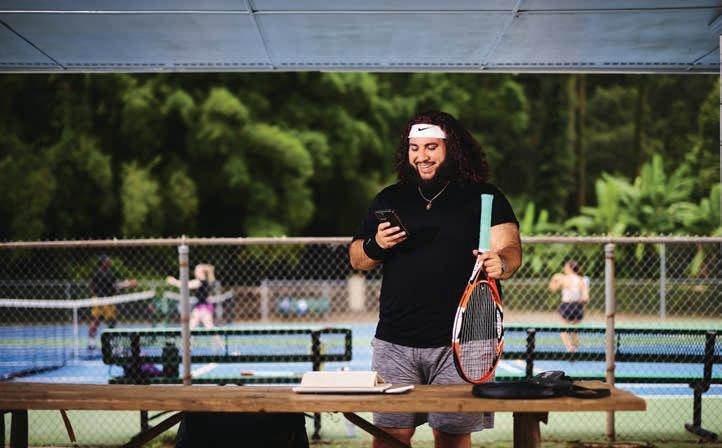
With the necessary “always on” grind in the world of communications in The Process, how do you balance your work life with your personal life?
One thing I’ve come to understand is that balance is not about finding an equal split between work and life, but rather about making time for the things that fill me with joy and keep me grounded. That can be tennis, where I can leave the chatter at the gate to clear my mind to focus on the match. I’ve also found a similar focus when I do yoga, where I can check in with my body and iron out any stress that I’ve held on to. It can also be reading a book for fun so I can let myself get lost in the pages. My absolute favorite thing is tending to my plants Sunday mornings.
What’s your go-to stress reliever?
I’ve got to say popping open a bottle of red wine (usually malbec or tempranillo), opening a new bag of Takis, and watching a show is my favorite go-to
stress-relieving activity. Some of my current favorite shows are Abbott Elementary, The Morning Show, The Lincoln Lawyer, Sierra Madre: No Trespassing, Only Murders in the Building, The Bear, Interview with the Vampire, Ted Lasso, and Invasion.
Describe how you came to be a Great Communicator.
My success today is thanks to the foundation laid by my parents. They’ve taught me that hard work, honor, and respect go far. One of the most profound lessons my dad taught me when I joined him on job sites in middle school, which I carry to this day, was to “never be afraid to learn something new in your chosen profession.” I am also grateful for my colleagues who turned into friends and family for exposing me to this crazy world of “The Process,” including Tatiana Daguillard, Carlos Nathan, Kimberly Diaz Scott, Courtney Thomas, Brittney Geathers, Daniela Fernandez, Sean Cooley, and Gianna Trocino

Who have been some of your most impactful mentors, and how do you pay it forward for the next generation of communications leaders?
I am fortunate to have impactful mentors along the way, especially Rolanda Hatcher-Gallop, who I met during a pivotal moment in my career when I was consulting on the Alton Edmond for Brevard County Sheriff campaign, and Leader Fentrice Driskell who recently gave me a powerful lesson on how to conquer selfdoubt to embrace success. Both mentors have taught me the power of persistence, the value of integrity, and the importance of human connection, and I will forever be thankful to them. Now, I do my best to pay it forward by mentoring others, whether it’s through formal programs or simply being a sounding board for someone navigating their own path.



With the necessary “always on” grind in the world of communications in The Process, how do you balance your work life with your personal life?
I am super fortunate to work for leaders (shoutout Commissioner Wilton Simpson and Kathy Mears) who not only understand the importance of a work-life balance but actively promote it. In the communications world, especially in The Process, there’s always that “always-on” grind, but I’ve found that the culture of the office makes all the difference. We’re definitely a team that works hard — whether it’s meeting tight deadlines or navigating high-pressure moments — but we also play hard. There’s a strong understanding that rest and recharging
are essential for doing our best work.
While there are times when we have to be “on” around the clock, there’s also a lot of flexibility when it comes to personal time.
What’s your go-to stress reliever (this can be a favorite vacation spot, or just a quick activity, or even a favorite cocktail)?
Being outside. Preferably at the beach with a good book and cold drink on hand.
Who have been some of your most impactful mentors, and how do you pay it forward for the next generation of communications leaders?
Some of my most impactful mentors while working for the state of Florida have
all displayed servant leadership in the truest sense. Not only did they focus on the growth and success of our team, but they also had a deep commitment to serving the people of Florida.
Working alongside and learning from great leaders like Terry L. Rhodes, Colonel Gene Spaulding, Commissioner Simpson, Mears, and so many more over the years has been invaluable. They have taught me that leadership is not about personal accolades, but about lifting others up and creating lasting, positive change — and I try to pay it forward by leading with that same spirit of service.
What’s your go-to stress reliever?
I’ve found that the best way for me to decompress is to get outside and get moving. Whether it’s working in the yard, going for a jog, heading to the beach, or taking a hike with my girls, being outdoors is my instant reset button. It’s a chance to step away from the screens and notifications, to stop endlessly scrolling, and to “disconnect” for a while. But let’s be honest, I’m never fully off the grid, I’ll still have my phone and Apple Watch just in case.
Always
on always ready for an adventure
Describe how you came to be a Great Communicator?
Honestly, I’d sum up my career as one part hard work and about three parts pure luck. At every single step and milestone in my career — from my first internship where I was greener than green, to my current role with Agriculture Commissioner Wilton Simpson and Kathy Mears — someone has taken a bet on me. And I’ve tried my best to make good on that bet each time.

If you could ditch the 24/7 grind, what 9-5 job would best suit you? I absolutely love what I do and the people I get to work with every day, but if I could ditch the 24/7 grind, I’d be outside mowing lawns or working with my hands — no question. For me, there’s something satisfying about finishing a job or accomplishing a task that yields instant and visible results. My very first job was running my own little lawn care business through high school, and even now, my wife laughs because I still enjoy cutting the grass.
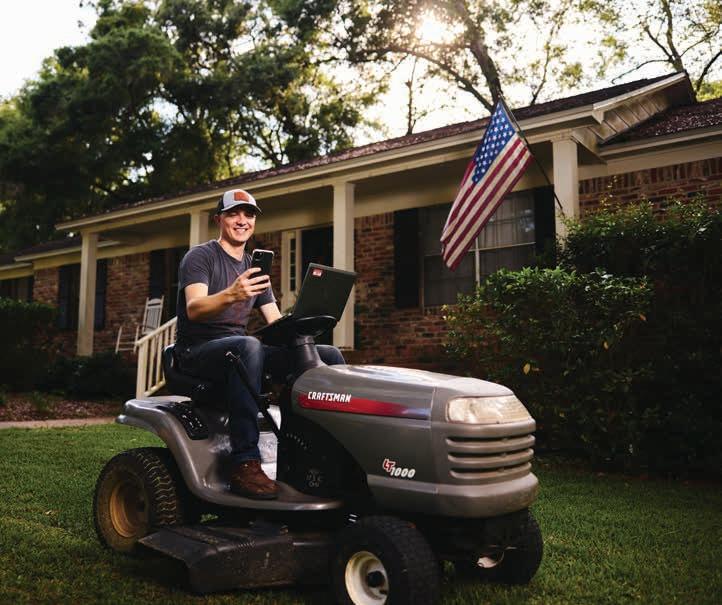


Principal/Founder, CVS
With the necessary “always on” grind in the world of communications in The Process, how do you balance your work life with your personal life?
Good cell service and portable WiFi! You can work from anywhere as long as you are well disciplined and well connected!
If you have to be always on, who do you most enjoy being always on with, and why?

My partner, Ron, who is my favorite adventure buddy, the calm in my storm, and always ready with a portable charger or WiFi if mine fails (or I’ve failed to charge it…). From cafes in Morocco to the benches of the Boston Common and many places between, Ron has a photo series lovingly entitled “Claire on her phone” — photos of me typing away and solving the urgent client matter du jour. Our pup Penelope almost never leaves our side, whether traveling the globe to places unknown or burning the midnight oil during campaign season.
Name your favorite client, and explain how they stole your heart.
Senate Democratic Leader Lauren Book is my first and forever favorite client. To know her is both to love her and to feel a deep drive to help her advance her mission of creating change for children. We met when I was an intern tasked with securing earned media in every market on her 1,500 mile trek across Florida from Key West to Tallahassee to advocate for child sexual abuse prevention, hope, and healing. When Lauren asked me to come work with her in South Florida, I never looked back! Since that time, her advocacy has grown as a

Senator and Democratic Leader, and I’ve been honored to work alongside her to create change during some unthinkable moments — from bringing 100 Parkland high school survivors to the Capitol on busses days after the attack, coordinating meetings with bipartisan members of the Legislature and the Cabinet, culminating with a a 2-hour meeting with then-Gov. Rick Scott, which resulted in historic gun safety policy change — to making international news as Lauren was arrested protesting Florida’s dangerous 6-week abortion ban — and so many events in
between. What is most inspiring about working with Lauren is her ability to bring people together and bring them along with her. I am honored to work with her every day, and excited to see where this journey continues to take us.
I would also be remiss not to mention the truly incredible first woman Mayor of Miami-Dade County, Daniella Levine Cava — an incredible leader and coalition-builder — for whom I was honored to serve as Director of Communications on her decisive re-election campaign.

The Florida Chamber Safety Council is on a mission to establish Florida as the safest state in America. That starts with partnering with small to mid-size Florida companies, committed to their employees’ health and safety, while striving to create an accident-free workplace. With a Safety Council Membership, at any level, you will gain access to a wealth of resources and tools, including but not limited to:
24/7 Safety Support: A dedicated call-in number for questions on OSHA compliance, workplace injury/illness/fatality, industry standards, and more.
Safety Council Orientation: An in-person orientation to the Florida Chamber Safety Council which includes an initial safety program assessment, and a review of the online platform and training benefits.
Complete Annual Risk Evaluation: An assessment of regulatory compliance and potential safety and health risks. This includes an overview of industry best practices, a review of workplace/job site conditions, and a confidential written report of findings. These evaluations help promote and foster continual growth in providing a safer and healthier work environment.
$2500 Annually
(1) non-expiring credit towards 6 available training classes
10% discount on future courses Advocate $1000 Annually

(2) non-expiring credits towards 10 available training classes
20% discount on future courses
$5000 Annually
(3) non-expiring credits towards 15 available training classes
30% discount on future courses

With the necessary “always on” grind in the world of communications in The Process, how do you balance your work life with your personal life?
I’ve learned that the majority of matters people deem “urgent” are manufactured panic (usually because of a failure to plan ahead). Learning how to differentiate between situations that require immediate attention and those that do not is an invaluable skill, and being able to fall back on a solid plan is always the right first step.
What’s your go-to stress reliever?
Cooking or baking bread. Spending time with my Matt (husband) and Alexander (son), especially at the beach. Watching comfort shows or movies like “Harry Potter,” “Gilmore Girls,” “You’ve Got Mail,” or “It’s Complicated.”
If you could ditch the 24/7 grind, what 9-5 job would best suit you?
Probably not the best “non-grind” job but I would love to own my own restaurant where I can share my love of Greece with everyone.
Director of Marketing and Communications, City of Tampa
With the necessary “always on” grind in the world of communications in The Process, how do you balance your work life with your personal life?
As much as I am consumed with my job, I am pretty good about finding ways to unwind, be it concerts, or quick trips for fishing, theater, or exploration. Nantucket is my favorite vacation spot.
What’s your go-to stress reliever?
Working out should be the answer, but I am also adept at decompressing by inundating my grown kids with moronic TikTok and Instagram reels.


No one works in a high-stress, never-unplug sort of field unless they really love it. Why do you love it?
Corny but true: It’s an adrenaline rush trying to make the world a better place, particularly in a job where every day is different from the one before it. That was the case as a journalist, helping clients navigate challenges and
now, working for the residents of one of America’s most exciting cities.
If you could ditch the 24/7 grind, what 9-5 job would best suit you?
I would be utterly content working at a doggy daycare. Precious few things on our planet spark more joy for me than dogs. Ideally, this would be a management position so I could delegate the pee and poop cleaning.
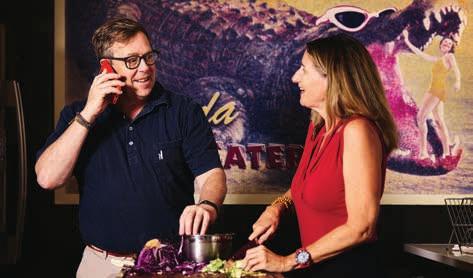
Always on always ready for the next adventure
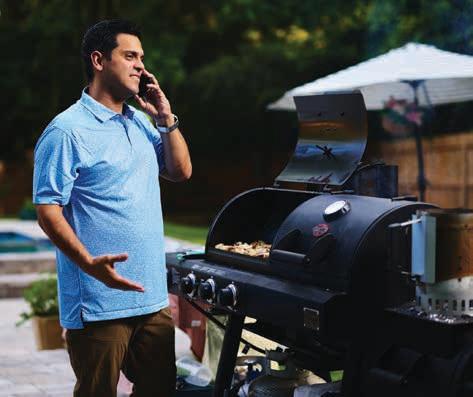

Always on always thinking of the next culinary adventure
With the necessary “always on” grind in the world of communications in The Process, how do you balance your work life with your personal life?
Balancing the demands of advocacy and politics with personal life is a continuous journey. I would love to tell you I’ve mastered setting those boundaries, but I’ve certainly been guilty of taking the work call even while putting for bogey. Come to think of it, a little more balance would definitely help my golf game. Outside of work, spending time with my closest people is when I’m most at peace and able to disconnect. Nothing helps me better connect with the people I cherish than preparing a
meal we can all enjoy. There’s something special about stepping in the kitchen or manning the grill to make delicious memories. Attention to detail is the most important ingredient. Food transcends. Assembling a quality, well thought out meal and seeing others enjoy the fruits of that labor is the most rewarding thing, and worth tuning out the world even if just until the next time the phone rings.
No one works in a high-stress, never-unplug sort of field unless they really love it. Why do you love it?
Fleshing out a narrative with your clients or partners in advocacy and mapping out where to drop a message, when to deliver it, and how to make it impactful is
a rush you can’t get anywhere else. The only thing that makes it better is having been blessed over the past 20 years to do it with people I respect, have learned so much from, and who are equally passionate about doing good for the communities we aim to serve. The past four years have been especially rewarding. I can never repay Speaker Paul Renner or Allison Carter and our incredible teams at House Campaign and the Florida House for giving me a front-row seat to some of the greatest political and policy victories in state history. This work is ultimately about making a difference and championing voices that need to be heard. Some days are hard, like really hard, but with a good plan, and principled leaders around you, there’s no limit to what we can achieve.
Who have been some of your most impactful mentors, and how do you pay it forward for the next generation of communications leaders?
If I always have to be on, I’m glad I am making a difference and I appreciate the journey this path has taken me down where I’ve gotten to meet and work with some incredible people around the country. One of my first bosses in the process was Alia Faraj-Johnson. I was a brighteyed OPS self-starter working in the press office at the Florida Department of State. Alia came down from Gov. Jeb Bush’s office. She was all of five foot nothing, but was a giant in how she commanded respect, understood her mission, and empowered her team to deliver a successful election in 2004. I learned so much watching her operate: treat reporters with respect, bring down the hammer when she had to, and do it all with a smile. I’ve told her this before, but I’ll say it again, thank you, Alia. Over the past 20 years I’ve been blessed to learn from some brilliant political and advocacy communicators that carry the sort of professional excellence leaders like Alia, Katie Betta, Helen Aguirre-Ferré, James Davis, Mark Pfifle, or Christina Johnson bring to the table. Whether by working directly for them, with them, or just around them, there are so many talented people that are willing to guide you, if you just ask. There is so much opportunity in this world and I’m really lucky to have such excellent people around to help me shape mine.


At AT&T, we’re dedicated to doing our part to connect America. That’s why we’re investing in and expanding the reach of our fiber-based internet service while also working to provide more affordable and accessible internet services to help close this country’s digital divide.
In Florida, we have invested more than $3.1 billion in the last 3-years and pushed AT&T Fiber to 1.8 million homes & small businesses. Keeping communities connected. At AT&T, it's how we do business.
© 2022 AT&T Intellectual Property. AT&T and Globe logo are registered trademarks and service marks of AT&T Intellectual Property and/or AT&T affiliated companies. All other marks are the property of their respective owners.



Partner and Executive Managing Director of Public Affairs, The Moore Agency
With the necessary “always on” grind in the world of communications in The Process, how do you balance your work life with your personal life?
My ability to find a work-life balance can be attributed to the leadership at Moore and my team. There is a reason Moore has been recognized as a Florida Trend Best Companies to Work For for 15 consecutive years and has a team retention rate of 92%. Moore’s strong company culture and values have created an environment of collaboration and flexibility that is critical for work-life balance.
We also have the #1 Public Affairs team in Florida, so I know that when I need to take time off, my clients are in the best hands. Recently, this has been more critical than ever as I am taking time off for maternity leave with our new baby girl, Emma
My husband Derek is also a huge part of my work-life balance — he’s incredibly understanding and supportive of me and my work.
What’s your go-to stress reliever?
I love being outside, especially venturing to the beach or a trail hike with our rescue dogs. After growing up in Chattanooga, Tennessee, living so close to the coast never gets old.
No one works in a high-stress, never-unplug sort of field unless they really love it. Why do you love it?
I love the fast-paced environment and getting to support efforts and causes that impact our daily lives. My clients are doing
amazing things to better our communities and the lives of Floridians — from the Florida Dental Association’s work to improve access to oral health to the collaboration of Florida’s specialty children’s hospitals in advancing pediatric cancer care — and I love being able to support their work.
Who have been some of your most impactful mentors, and how do you pay it forward for the next generation of communications leaders?
My public affairs journey at Moore started over 15 years ago, and I am so lucky and grateful to have learned and grown under the leadership of the best in the business, Karen Moore and Terrie Ard. They have been incredible mentors to me over my tenure at Moore. Their encouragement has been integral as we’ve continued to grow Moore’s Public Affairs practice area and expand our services to bring forward new innovations, such as leveraging first-party data for our digital advocacy and advertising efforts, to yield even greater results for our clients.

Recognizing the impact of Karen and Terrie’s mentorship on my career, I work closely with Moore’s interns and rising stars to help them grow their experience and understanding of public affairs and provide guidance to help them on their professional path.
“My ability to find a work-life balance can be attributed to the leadership at Moore and my team.”

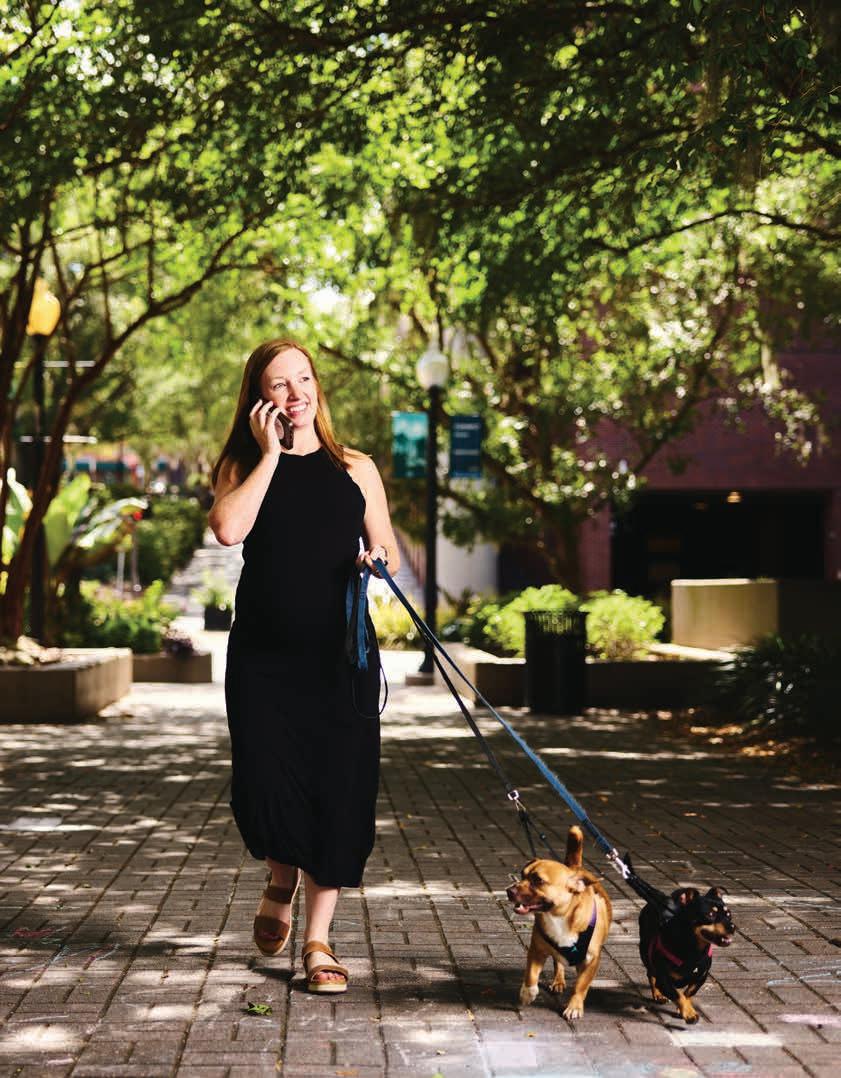
Always on
always finding a way to be outside with my family and rescue dogs
President,
Yellow Finch Strategies
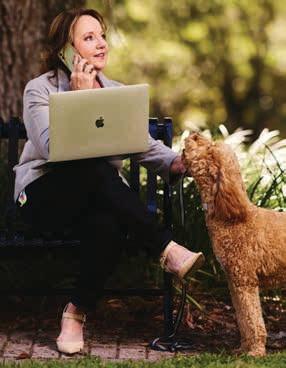

Describe how you came to be a Great Communicator?
I caught the communications bug in college while volunteering for a statewide gubernatorial campaign. From cutting and placing radio spots, to posting candidate signs along roadways, it was the beginning of a love affair between communications and politics.
If you could ditch the 24/7 grind, what 9-5 job would best suit you?
I would ditch it for dirt and transition to designing and building backyard landscapes that provide homeowners with a peaceful backyard escape. The only metrics you’ll need to know whether your “design campaign” works is, the plant will either live or die!
No one works in a high-stress, never-unplug sort of field unless they really love it. Why do you love it?
Every organization has a story to tell, and that’s particularly important during times of crisis. Providing a voice for clients facing potentially devastating business threats and negative public opinion is vital for the life of those organizations.
Knowing what you know now about this business, If you could go back and give yourself one piece of advice, what would it be and why?
Take notes and write a book. All the experiences you’ll gain along the way are worth sharing — especially the funny anecdotes you’ll personally experience.
Always on always ready for the next great communications adventure

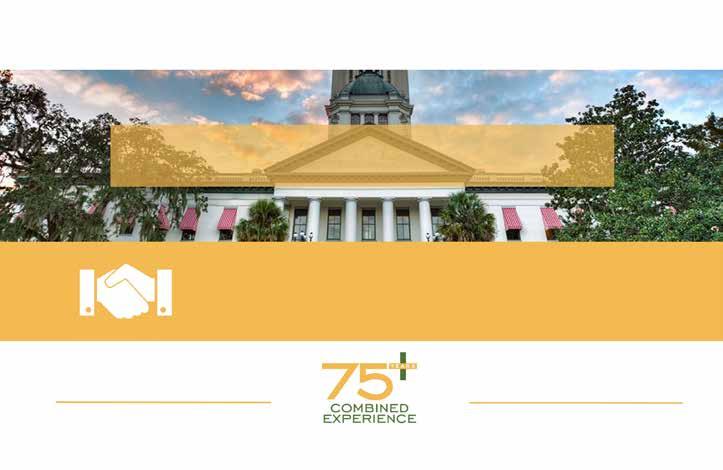

Managing Director, Mercury Public Affairs
Name your favorite client and explain how they stole your heart.
While all of my clients are my favorite, “Stand with Parkland” remains impressive because of their unwavering commitment to creating safer schools and communities. Working alongside families who have turned their grief into meaningful action motivates me to push harder for change and ensures that every step we take is rooted in compassion and progress.
Who have been some of your most impactful mentors, and how do you pay it forward for the next generation of communications leaders?
I’ve been very fortunate in my career to have a handful of impactful mentors at a young age. Ashley Walker, arguably one of the best leaders and strategic communicators in the country, took me under her wing when she helped run the 2008 Obama campaign in Florida and has forever been an impactful part of my career decisions. Mayor Bob Buckhorn showed me the ropes of municipal leadership, while also allowing me to grow into my role and shape the communications of a burgeoning city.
With the necessary “always on” grind in the world of communications in The Process, how do you balance your work life with your personal life?
The word “balance” is relative in The Process. We have a ton of interconnectivity that happens daily with work and friends, which makes us good at our jobs and quick at getting the job done. Our colleagues are also the people we decompress with, which, on some days, makes the balance interesting.

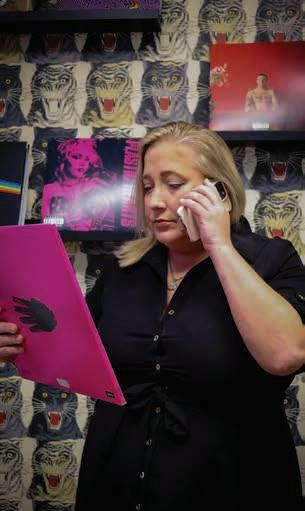
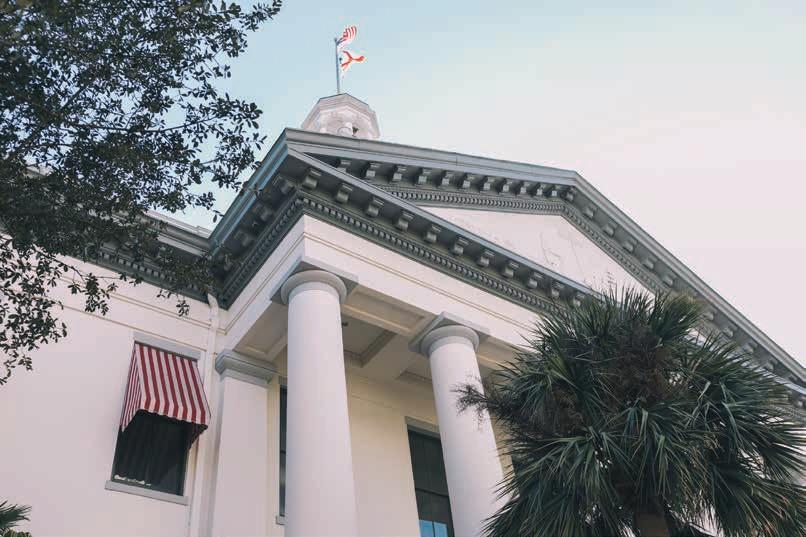


Digital Director, Supernova Digital
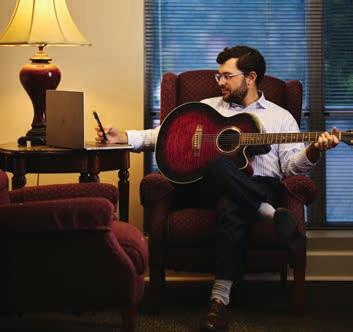
Always on always making the most out of every day

Always on always in my notes

GOP Communications Operative
With the necessary “always on” grind in the world of communications in The Process, how do you balance your work life with your personal life?
Staying prepared and anticipating your client’s needs is key.
When you can plan ahead for these things, it makes it easier to complete projects with the speed and quality our clients expect.
My wife and family understand that I sometimes have to take calls at odd hours, but we always find opportunities to make up the time!
No one works in a high-stress, never-unplug sort of field unless they really love it. Why do you love it?
I like having something new to do each day, solving complex problems, and feeling like there just isn’t enough time in the day to get everything done.
Knowing what you know now about this business, If you could go back and give yourself one piece of advice, what would it be and why?
Learn your keyboard shortcuts in Adobe Premiere.
If you could ditch the 24/7 grind, what 9-5 job would best suit you?

It’s hard to say. I would probably make a pretty good IT guy. But I don’t think I could do any job where I had to clock in and clock out.
With the necessary “always on” grind in the world of communications in The Process, how do you balance your work life with your personal life?
Take the trip. See the movie. Have the party. Go to the game. Do all the things anyway, because stepping out to take a call is way better than missing out.
The car wash up the road is a technology black hole where phone calls, text messages, Tweets and DMs cease to exist. For 6 1/2 minutes, this glorious cement tunnel forces the outside world to stay outside. It’s not much, but sometimes that 6 1/2 minutes of silence is all it takes.
If you have to be always on, who do you most enjoy being always on with, and why?
People in and around The Process tend to have potty mouths. My nine-year-old son put that together quickly and created a virtual swear jar, charging folks on the other end of my calls in the car pretty steep fines for their colorful language. Some of you have outstanding balances. You know who you are.
Knowing what you know now about this business, If you could go back and give yourself one piece of advice, what would it be and why?
Seriously, it’s not that serious.



Founder, Alia Strategic Group
With the necessary “always on” grind in the world of communications in The Process, how do you balance your work life with your personal life?
I manage my time to squeeze in work and fun. I get up early and jump right into work mode, and then I make sure that I carve out a few hours in the afternoon to watch my daughter’s high school golf
matches, and then it’s back to work for me until everything is done. As long as I have my cell phone, I am available 24/7.
What’s your go-to stress reliever?
For my family, with so few weekends when we are not traveling for golf tournaments, it's spending time at 30A because there is nothing more beautiful or relaxing than Florida’s panhandle beaches.
If you have to be always on, who do you most enjoy being always on with, and why?
My husband Rob Johnson, because he is the only person who forgives me for waking him up in the middle of the night when I think of a work solution on behalf of a client.



“... being able to offer up solutions that are practical and achievable is what I love doing.”

If you could ditch the 24/7 grind, what 9-5 job would best suit you?
It’s not a 9-5 job, but I would work for the CIA.
No one works in a high-stress, never-unplug sort of field unless they really love it. Why do you love it?
I love taking on challenges, and helping my clients connect the dots with the goal of achieving success or overcoming a crisis. There are usually so many moving parts, especially when dealing with a highstakes matter, and being able to offer up solutions that are practical and achievable is what I love doing.

Who have been some of your most impactful mentors, and how do you pay it forward for the next generation of communications leaders?
I have been incredibly fortunate to have had so many wonderful mentors in my life, including my former bosses, Gov. Jeb Bush and Mike Vasilinda and one of my dearest friends, Lori Killinger. They consistently offered their guidance and wisdom, sharing their knowledge about The Process selflessly. I have learned so much from them, and firmly believe that it is our duty to pass along similar wisdom to the next generation of communicators.
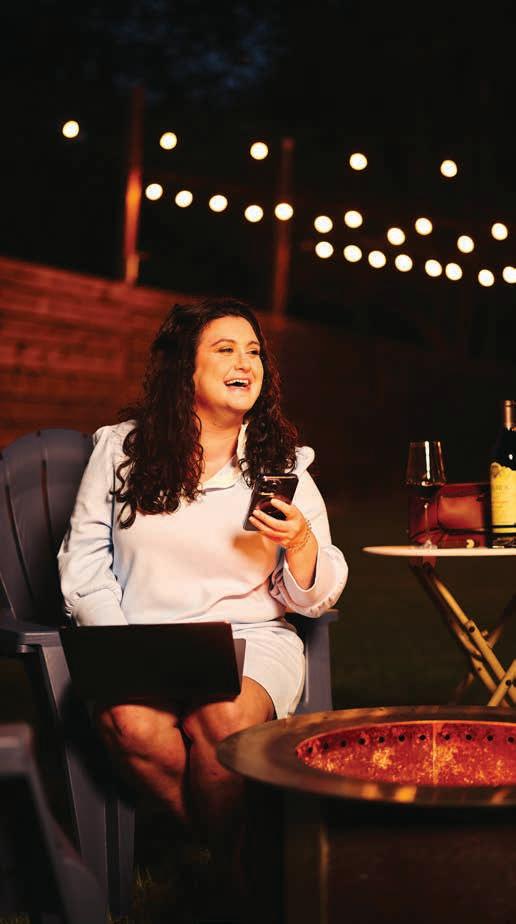
Always on always laughing
Former Communications Director, Executive Office of Gov. Ron DeSantis
What’s your go-to stress reliever?
When stress starts to pile up, I turn to laughter! Humor helps me reset and recharge. Plus, a good laugh reminds you that even in crisis, there’s always a silver lining to find!

No one works in a high-stress, never-unplug sort of field unless they really love it. Why do you love it?
I love communications because it’s like being a juggler in a circus — always on your toes and ready to tackle any challenge. Every day is an opportunity for creativity and connection. I thrive on the adrenaline and the thrill of fixing problems, and turning tough situations into engaging stories. Plus, when you can make it fun along the way, work becomes a lot more fun!
If you could ditch the 24/7 grind, what 9-5 job would best suit you?
If I could ditch the 24/7 grind, I’d love to be a nail polish namer! Imagine it: dreaming up quirky and whimsical names like “Too Glam to Give a Damn.” “Joe’s Gotta Glow, “constitu-teal” and “Procrastination in Pink.”
“... a good laugh reminds you that even in crisis, there’s always a silver lining to find! ”

With the necessary “always on” grind in the world of communications in The Process, how do you balance your work life with your personal life?
I am a member of the 5a.m. club. I find my balance before the sun comes up. Before the work day starts, I normally put in an hour of exercise, walk my dog around the neighborhood and enjoy a cup of coffee while I do my daily Spelling Bee. Yes, I am one of those who can’t live without the New York Times games.
What’s your go-to stress reliever?
A little walk usually does the trick. But if all fails, a trip to the local brewery with my husband helps, too. Or Moo Deng memes. Yeah, probably just Moo Deng memes.
sence, a lot of phone calls, a lot of writing, a lot of reading and a lot of listening.
If you could ditch the 24/7 grind, what 9-5 job would best suit you?
My escape always seems to be the thought of owning a bookstore with a coffee shop. Original, I know.
No one works in a high-stress, never-unplug sort of field unless they really love it. Why do you love it?
I’m just eternally curious. I think there is so much value in an informed community. I can’t imagine a better job than being paid to learn about what is happening and then helping people understand it — with the hope that they would like to engage in the discourse themselves.

Who have been some of your most impactful mentors, and how do you pay it forward for the next generation of communications leaders?
If you have to be always on, who do you most enjoy being always on with, and why?
My pets, Betsy and Momo. And music.
Describe how you came to be a Great Communicator?
A lot of hustle. I studied journalism at San Diego State University and basically said “yes” to every writing opportunity that came my way. I wrote for most sections of the student newspaper, did internships at four different newspapers and, after graduating, I moved to Monterey, California for my first big girl job. Then, I came to Florida and worked for several newspapers covering state government and politics. I have been at the Miami Herald for four years now. In es-

Larry, who was proud to be the newsroom curmudgeon at my first job, showed me how to be a healthy cynic. And Mary, who edited me at my second job, showed me how to be relentless when all you hear is “no.” They may not know it, but both really shaped me as a young reporter and I will always be thankful.
Does being in your mid 30s automatically make you a mentor? I don’t know. But I would like to think I am generous with my time when it comes to chatting with interns and fellows. It’s so fun to hear their ideas and help them find ways to report them out and kick butt with the end product.
Knowing what you know now about this business, If you could go back and give yourself one piece of advice, what would it be and why?
Keep your head down. Don’t take it personally. And always, always, stay open minded.
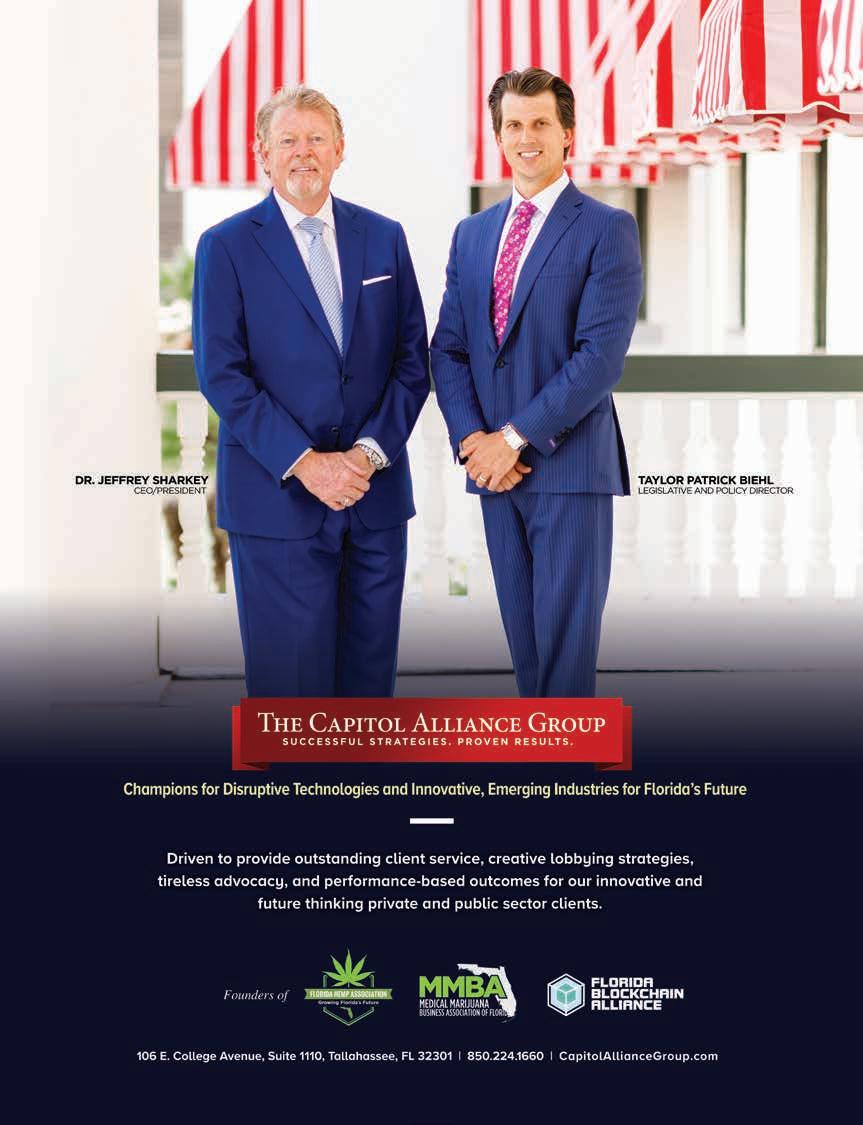



Director of Communications, U.S. Sugar
With the necessary “always on” grind in the world of communications in The Process, how do you balance your work life with your personal life?
Since starting my career, I have worked hard to maintain a healthy work/life balance. I have written media statements, op-eds and talking points from dugouts, on fishing boats, and during field trips. Unfortunately, the demand of our 24/7 media doesn’t respect your location, your children’s bedtime or whether or not you’re on vacation. That has taken the form of an inbound media inquiry on a Friday evening (mainly from Bruce Ritchie … haha!), or a crisis that unfolds after work hours. But managing these unexpected events comes with the territory. I am blessed to have a wife that has been incredibly understanding of the demands of my job, and together, we make the most of our family time.
What’s your go-to stress reliever?
Live music is my escape from reality whenever possible. My wife Danielle and I have been to an embarrassing number of Dave Matthews Band concerts dating back to 2000 that have taken us to many different states and countries. We’ve met some really great people at concerts over the years, and as a result, DMB continues to fill the calendar. For summer vacations, we tend to travel to places that involve outdoor activities like hiking or fishing. I’ve found that many national parks do not have cell service and are a great place to temporarily disconnect from the grid.
If you have to be always on, who do you most enjoy being always on with, and why?
I work on a great team with some amazing government relations and public relations professionals. I consider Eric Edwards, my colleague at U.S. Sugar, to be a friend who happens to work alongside me every day. Our friendship began well before we started working together at U.S. Sugar. We were once rivals working against each

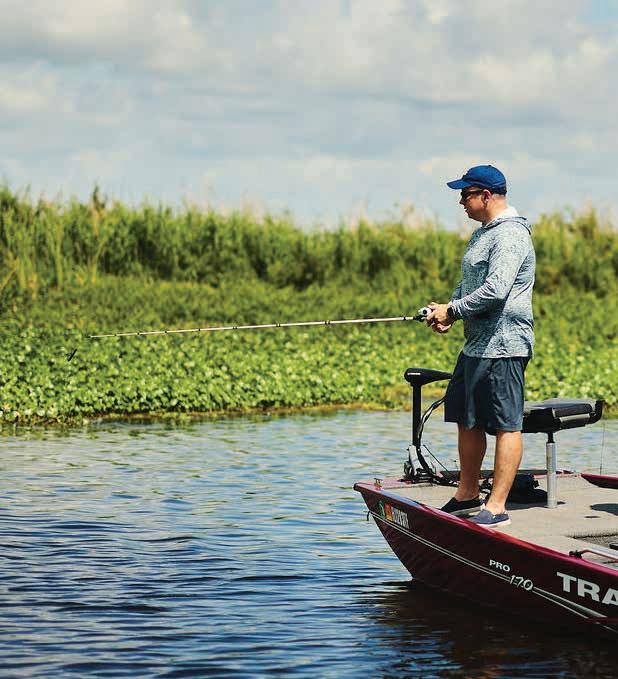
other when he worked in the Florida Senate President’s Office and I worked in the Florida House Speaker’s Office. But we usually see eye-to-eye and share a similar approach to solving issues collaboratively.
Describe how you came to be a Great Communicator.
My interest in communications, specifically through writing, really began in high school and continued at Florida State University when I declared English as a major. From there, I worked as a speechwriter in the Governor’s Office and in the United States Senate. I have always believed in the power of the written word, even as messaging has become polarized and harder to break through in our social media-driven society. I have been incredibly fortunate to work under some great editors over the years, starting with my dad, who among other things, was an English teacher. You can always say less, and sometimes an argument can become more convincing and powerful
always present in the moment
when made in fewer words. People still value authenticity, which even ChatGPT struggles to fake.
If you could ditch the 24/7 grind, what 9-5 job would best suit you?
I have always enjoyed what I do because no two days are ever the same. If I could choose another profession, it would probably be something else fast-paced, like working in the front office of a Major League Baseball team. I can only imagine that the MLB Trade Deadline is just as exhilarating and unpredictable as Day 60 of the Florida Legislative Session.
Name your favorite client, and explain how they stole your heart. I was fortunate to represent my current employer, U.S. Sugar, while working at Hill+Knowlton Strategies. I enjoyed the issues so much that when the opportunity to work for them full-time presented itself, I took it. I have lived in Clewiston for the past 7 years and have fully embraced living and raising a family in America’s Sweetest Town. Not
moment as a dad, husband and member of my community
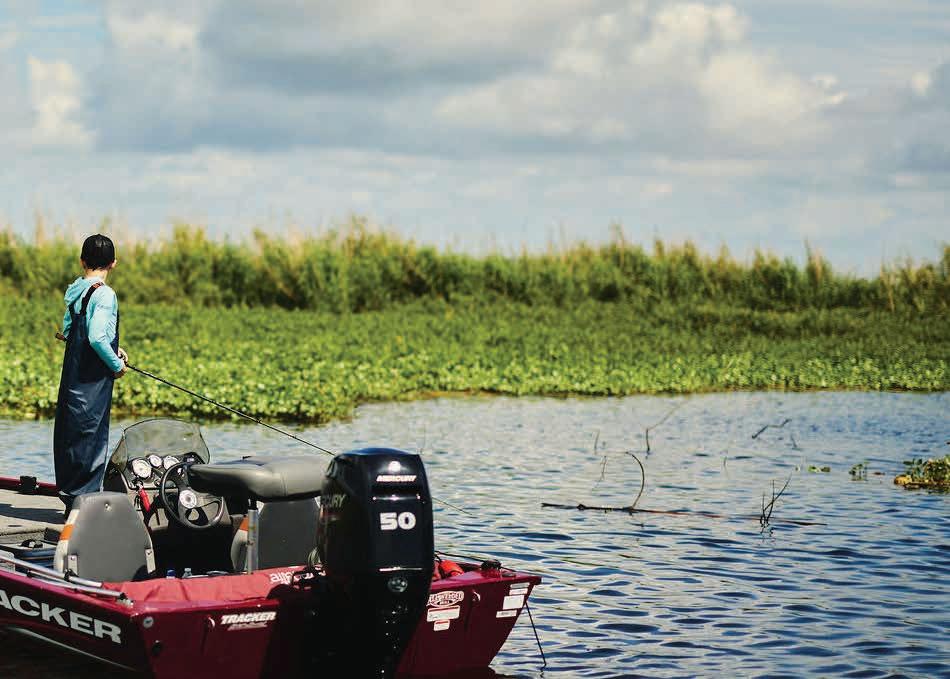
many people would be willing to uproot to work for their client, but working for U.S. Sugar has been the most rewarding experience of my professional life.
No one works in a high-stress, never-unplug sort of field unless they really love it. Why do you love it?
I have worked on many unique communications issues over the years, but none have been as fulfilling to me as advocating for Florida agriculture. To those not involved in agriculture, the issues may seem incredibly complex, but the science and technology that drives everything in our industry makes communicating on the issues really exciting. Helping to educate the public and showing them what goes on at a farm is incredibly rewarding because it provides an opportunity to explain how farmers are careful in protecting our land, water and air resources. The entire industry is basically invested in making sure the ability to grow crops is still there for future generations. So it’s easy to get
up every day and promote what farmers and employees in agriculture are doing, because they are feeding America and ensuring our country has the certainty of knowing that food will be available in stores every single day of the year.
Who have been some of your most impactful mentors, and how do you pay it forward for the next generation of communications leaders?
Sometimes people spend decades waiting to work with the person that will have the biggest impact on their career professionally, but for me, that person was my first boss right out of college. I first met Alia Faraj-Johnson as an intern in Governor Jeb Bush’s press office and she has been a trusted friend and mentor ever since. I have had the privilege of seeing her manage communications during a crisis, and believe there is no one better at crisis communications in our industry. For the past 10 years, I have also had the tremendous opportunity to work alongside Judy Sanchez at U.S. Sugar.

Judy is one of the most passionate advocates for Florida Agriculture and an incredible writer. She isn’t shy about explaining her edits, and that has helped make me a better writer. One takeaway from my experience: internships are an incredible opportunity to determine if a certain profession is for you, and it doesn’t require the risk or permanence of taking on a full-time job. For that reason, I have always hired interns, and try to share what I’ve learned as they are launching their careers.
Knowing what you know now about this business, If you could go back and give yourself one piece of advice, what would it be and why?
My advice to myself: Be patient. You have to prove yourself with small wins before the real success comes. That’s a hard concept to grasp when you are starting out in your 20s and are ambitious. The people at the top of our profession have earned successes in spades and only time has allowed for that to happen.
What’s your go-to stress reliever?
I love shopping second hand. Thrift, resale, consignment, antiques, you name it and I love it. It’s the thrill of the hunt, the feeling of accomplishment when I find something rare or beautiful, that makes it so fun for me.
Describe how you came to be a Great Communicator?
I’ve always been very vocal about giving people grace and treating them with dignity. I never expect the worst of people, and I go into every conversation and interview seeking to learn more about them as a person and how that influences their decision-making.
If you could ditch the 24/7 grind, what 9-5 job would best suit you?

I would own a luxury resale boutique specializing in vintage designer furniture, shoes, jewelry and handbags. Cause I’m broke, but I still have sparkly dreams!
No one works in a high-stress, never-unplug sort of field unless they really love it. Why do you love it?
I feel happiest when I see my former interns and employees striking out on their own, landing their first jobs, or moving on to larger markets. Teaching and sharing knowledge brings me joy; and seeing others succeed from what I’m able to offer them is one of the most fulfilling parts of my work.


Always on always rooting out nonsense with love

Always on always up for helping, running and having fun

Senior Director of Strategy and Communications, Florida Health Care Association
With the necessary “always on” grind in the world of communications in The Process, how do you balance your work life with your personal life?
Technology has made it both a blessing and a curse when defining the line between work and play. In healthcare PR, emergencies don’t wait. Information needs to be shared, or the media requires responses even when you’re at your son’s baseball game, on family vacation or on the tennis court. If I must interrupt family or personal time, I make a point of being all in — for them and myself — once the crisis passes.
What’s your go-to stress reliever?
I have a close group of friends who are all crazy enough to get up on weekdays at 5 a.m. to run, and nearly every Saturday those morning runs are followed by coffee and/or mimosas. We relieve our stress and solve the world’s problems by pounding the pavement before most people are out of bed!
If you have to be always on, who do you most enjoy being always on with, and why?
When I’m always on, I’m usually entrenched with my FHCA coworkers who are by far TEAM AWESOME. We have great leadership with Emmett Reed, and the smartest and most passionate team in the business. We work hard and play hard, trust and always have each other’s back.



What’s your go-to stress reliever?
A Negroni has been my go-to for almost a decade, but now that it’s trendy, I’m contractually obligated to reconsider. I might need to switch to something more obscure, like a cocktail only served at one bar on a remote island in the South Pacific.
Name your favorite client, and explain how they stole your heart.
Choosing a favorite client would be like picking a favorite child — you just don’t do it. Let’s just say my favorite client is ... all of them.
Who have been some of your most impactful mentors, and how do you pay it forward for the next generation of communications leaders?
John Sowinski and Tre’ Evers were my mentors and are now my business partners. I first met them working on Mel Martinez’s U.S. Senate race in 2004, and I knew right then I wanted to do what they do. Today,
I mentor the way I was mentored: Expect the best, all the time, and never settle for less. It’s the only way to grow.
If you could ditch the 24/7 grind, what 9-5 job would best suit you?
If I could step away from the never-ending communications carousel, I think I’d be a professional hammock tester. Preferably on a remote island. I hear they pay in coconuts, which suits me just fine. To be honest, I’d likely try for a PhD in Classics. Not because Cicero would help me write better political ads (though, who knows), but because a deeper understanding of ancient thought could improve my complaints about modernity. Plus, quoting Seneca is bound to impress in a pitch meeting, right?
No one works in a high-stress, never-unplug sort of field unless they really love it. Why do you love it?
I’m competitive to my core. I love to win, and I hate to lose. High stakes? Even better.

There’s nothing like the satisfaction of delivering a win when everything’s on the line.
With the necessary “always on” grind in the world of communications in The Process, how do you balance your work life with your personal life?
Balance? Well, I read — classics, geopolitics, apologies (the academic kind, not the kind I owe my family for missing dinner), sociology, history, and the occasional fiction. It’s a noble attempt to convince myself I’m well-rounded, even if the reality is I’m just perpetually trying to finish that one book on Stoicism I started five years ago. Also, crossword puzzles keep me humble — because nothing says “relaxation” like questioning if I even know English.

always ready to fight for the win
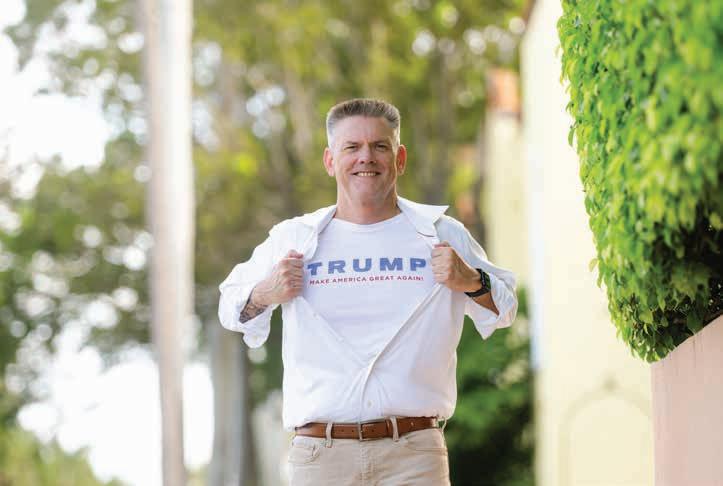
Senior Advisor to Donald Trump Campaign
What’s your go-to stress reliever?
I am always ready to put on sneakers and sweat out the day’s events, and when I can, I get on a motorcycle and ride.
If you have to be always on, who do you most enjoy being always on with, and why?
I enjoy working with journalists who are genuinely curious and interested in a challenge to a preconceived narrative. Many people show up to something with their minds made up, so people willing to hear an issue out are a pleasure to work with.
Describe how you came to be a Great Communicator?
Well I am glad to hear others say I am great, but it feels conceited to agree.

Whatever level I have reached as a communicator, I believe it comes from a desire to distill complex ideas into a format that allows anyone to engage.
No one works in a high-stress, never-unplug sort of field unless they really love it. Why do you love it?
The environment of politics and government guarantees that at any moment of any day you can be face-to-face with something completely new. Always being ready to change a strategy or rethink a solution is incredibly exciting.
Who have been some of your most impactful mentors, and how do you pay it forward
for the next generation of communications leaders?
In Jacksonville, I worked with a legendary leader, Sam Mousa. Not since I left the military has anyone else shown me such a high level of great mentorship. I always try to be supportive of the teams I lead and let younger people know the lessons I have learned. Especially those learned the hard way.
Knowing what you know now about this business, If you could go back and give yourself one piece of advice, what would it be and why?
Make time to keep yourself physically healthy. It’s good for the body of course but it’s also good for the mind. Clarity of thinking requires physical conditioning.
Cavalry Strategies
in
Tackling a new initiative?
Turning a crisis into a win? Send in the Cavalry!
Cavalry Strategies guides organizations in winning the daily news cycle by driving proactive messages that keep an organization achieving its objectives. We are experienced in delivering national and state-based earned media.
Times of crisis can often be paralyzing to an organization. Cavalry Strategies specializes in crisis management strategies to protect or restore an organization's brand. Through years of experience responding to hurricanes, the H1N1 pandemic, the Deepwater Horizon Oil Spill and more, Cavalry Strategies' experience in disaster situations can stabilize and strengthen an organization during vulnerable times.
Sometimes finding an organization's voice or message can be most difficult for the people who are the closest to it. Cavalry Strategies guides organizations in building their brands and/or achieving a messaging objective - whether it is for a legislative session, a crisis situation or simply a new initiative.
Melissa Sellers Stone | CEO
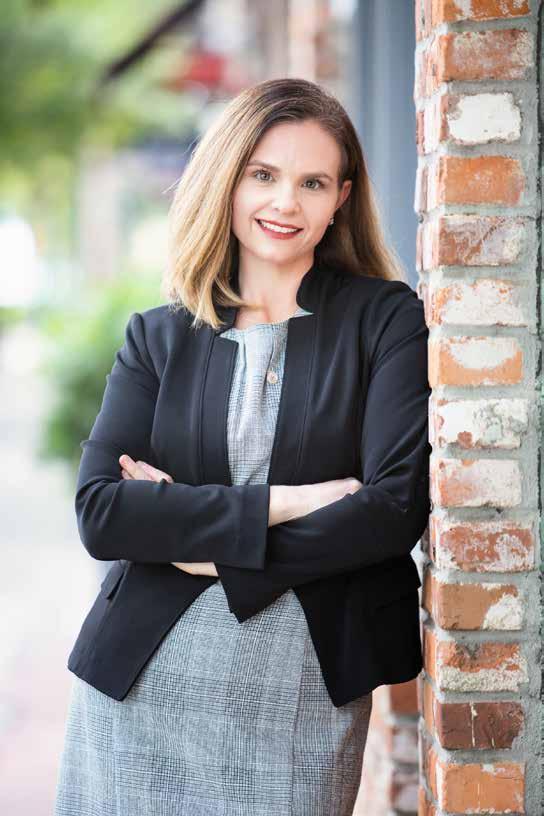


President, On3PR
No one works in a high-stress, never-unplug sort of field unless they really love it. Why do you love it?
A real truth is once you are part of a campaign, it’s in your blood forever. Winning the day-to-day message, putting out fires, managing crisis, playing three-dimensional chess, anticipating what’s ahead and achieving for the client — be it a worthy cause, a business interest or electing good people to public service is what gets into your system, and nothing compares. It is incredibly rewarding on all levels.

Who have been some of your most impactful mentors, and how do you pay it forward for the next generation of communications leaders?
Women are more prevalent in leadership positions today than they were even 20 years ago, and I am fortunate to have connected with both men and women in the field who didn’t see me
as competition for their job, but rather, a competent professional willing to put in the long hours and do what it took to get the job done. Some mentoring advice to the next generation of political and communications stars — don’t be afraid of hard work. There are no shortcuts. There are no jobs or tasks beneath you. Put in the time, ask questions, take pride in your work, and it will be recognized and rewarded.
Knowing what you know now about this business, If you could go back and give yourself one piece of advice, what would it be and why?
I started my business at the beginning of a recession, survived a pandemic, and am now going on 16 years strong at On3PR with more than 35 years in this profession. Surround yourself with talented people who are smarter than you, fight for your clients, defend your turf, and be sure to plan for that rainy day … or a hurricane.
“Women are more prevalent in leadership positions today than they were even 20 years ago, and I am fortunate to have connected with both men and women in the field ...”
Communications professionals are 24/7, always thinking about how to promote, protect and defend their clients – and it doesn’t matter what time zone you’re in. When the phone rings, you answer. One such example is when Christina Johnson, President of On 3 Public Relations (On3PR), was on a birthday trip in London last year when duty called. A client had a need to be fulfilled and quickly. And while Christina was more than happy to recreate that London High Tea client call with a photo shoot on location at The Berkeley Hotel, the gracious hosts at ‘All Things Tea’ in Tallahassee provided a setting to relive the day.

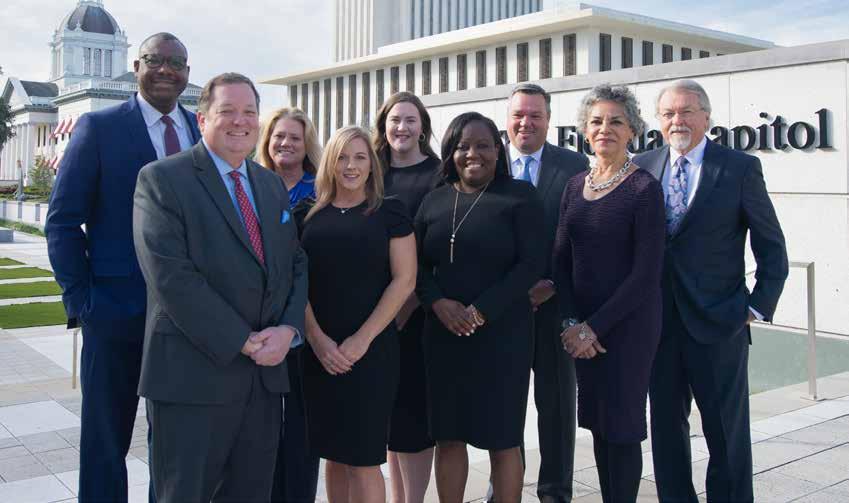
In a dynamic state like Florida, there are many paths for growing your business. Connecting with industry inuencers, policy makers and business leaders is a crucial part of the process. Gunster’s diverse team of lobbyists and lawyers have deep experience making the right connections and identifying opportunities for our clients. We use our experience and credibility to represent clients before the exec utive and legislative branches of the state government. With more than 260 attorneys and consultants in 13 offices across Florida, Gunster is statewide and state wise.


Public College in Southeast US #1
Public Engineering Program without a Ph.D.
Best Value Public School in Southeast US #2
Florida Poly is a dynamic institution designed to aggressively push the limits of core STEM education. With industry-driven programs, leading faculty, and cutting-edge facilities, the University is building a strong pipeline of in-demand, high-skilled STEM professionals prepared to innovate and take on the high-tech challenges of tomorrow. The state’s only all-STEM public university, Florida Poly’s graduates earn an average of $57,900 one year after graduation, the highest among all state universities.

If you have to be always on, who do you most enjoy being always on with, and why?
Martin! We had a rough time in the beginning (puppy phase almost got the best of me) but he’s my favorite bestest boy now!!
Who have been some of your most impactful mentors, and how do you pay it forward for the next generation of communications leaders?
Anna Alexopoulos Farrar was my first boss in the communications world, and she made a lasting impact on my career. When she hired me to work in the CFO’s office as the Communications Coordinator, she not only introduced me to the field but also showed me the importance of creativity and confidence in this line of work. Her guidance
shaped (and still shapes because we talk daily) my approach to communication, and it’s something I carry with me to this day.
To pay it forward, I focus on developing talented individuals who are full of ideas, and I aim to instill in them the same belief that Anna instilled in me: that they can do anything. I encourage my team to think big, be bold, and trust their instincts. Mentorship, for me, is about empowering the next generation to embrace their potential and lead with confidence.
Knowing what you know now about this business, If you could go back and give yourself one piece of advice, what would it be and why?
Take the vacation! Spend time with loved ones! Make personal memories!

Why? Because work will be there when you return! *read in a loud voice*
What’s your go-to stress reliever (this can be a favorite vacation spot, or just a quick activity, or even a favorite cocktail)?
My go-to stress reliever is pretty simple: hanging out with Marty and unwinding on the couch with some mindless reality TV ( I know, I know, it’s killing my brain cells). It’s the perfect way to relax after a long day. I also love getting away and traveling with friends whenever I can. Whether it’s a quick weekend trip or exploring a new place out of the country, being around good company always helps me recharge. I’m truly blessed to have such amazing people in my life!


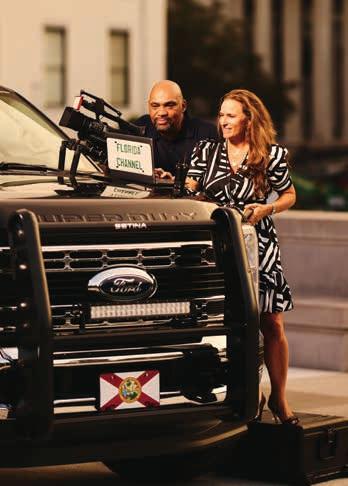
Publisher, La Gaceta
Always on always looking forward to spending time with my family
Always on always remembering why
The Florida Channel was created


Executive Director, The Florida Channel
With the necessary “always on” grind in the world of communications in The Process, how do you balance your work life with your personal life?
Loving family and forgiving friends.
If you could ditch the 24/7 grind, what 9-5 job would best suit you?
Tour guide in my favorite Gulf Coast town.
No one works in a high-stress, never-unplug sort of field unless they really love it. Why do you love it?
The people, The Process and it’s never the same day twice.
Knowing what you know now about this business, If you could go back and give yourself one piece of advice, what would it be and why?
Model good behavior, and don’t forget where you came from.
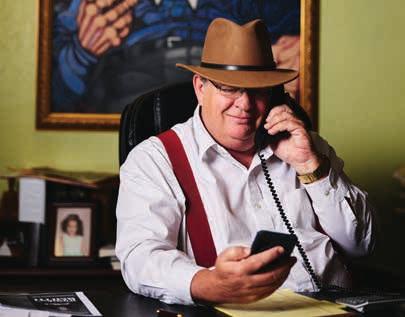
What’s your go-to stress reliever?
A scotch and cigar at my favorite bar, The Dirty Shame.
If you have to be always on, who do you most enjoy being always on with, and why?
The person in front of me. It is always enjoyable to learn about someone you just met.
If you could ditch the 24/7 grind, what 9-5 job would best suit you?
An Ybor City ambassador or museum docent.
No one works in a high-stress, never-unplug sort of field unless they really love it. Why do you love it?
I find people fascinating and my job allows me to engage them and dig deep into who they are. I also appreciate that my profession enables me to learn something new every day.
Knowing what you know now about this business, If you could go back and give yourself one piece of advice, what would it be and why?
I would have learned how to type and spell better.


President, Allison Aubuchon Communications
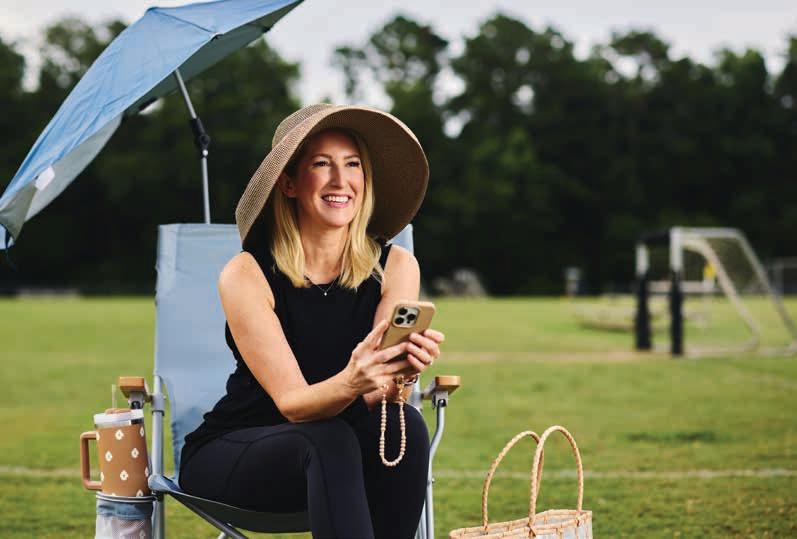
With the necessary “always on” grind in the world of communications in The Process, how do you balance your work life with your personal life?
Accepting that imbalance will frequently happen — but that it’s all part of a larger balance — helps me. Keeping a good sense of humor is key too. Working for myself has given me more freedom over my schedule, even if it means working some non-traditional hours. This flexibility has been a huge help in being there for my family when they need me most. I love when my kids can tag along on work-related trips and events; sometimes they cheer for me, just like I cheer for them. Session is, of course, crazy for our family, with both my hus-

band Josh and me working Process-related jobs. Publix chicken fingers are frequently what’s for dinner. But thankfully, my work is usually portable. The soccer field can be a beautiful backdrop for the occasional work email or call when needed, but during their games, you can bet I’m locked in. Keeping up with everyone’s hobbies and interests, health and work/school amid shifting schedules takes sacrifice from the whole family sometimes, and thankfully I have a great partner to make it work.
What’s your go-to stress reliever?
Checking on my garden is one of my favorite stress relievers. Hearing the birds and seeing all the greenery — the growth, the changes, the butterflies and bees, the
lizards — I love it all. Being in the garden is such a great break from all the screens. My dog, Ranger, is also a huge stress reliever. He’s my daily work companion and serves as director of health and wellness. He knows when I need a hug and is always in a good mood. Other favorite stress relievers include the Calm app or my favorite IPA: Proof’s La La Land.
No one works in a high-stress, never-unplug sort of field unless they really love it. Why do you love it?
I love the problem-solving nature of this work. Communications offers endless ways to be creative, from messaging strategies and innovative tactics to design
always excited to see a hummingbird
details. Challenges evolve, as do the tools we use, and I enjoy that I’m constantly learning. Using my PR background to support advocacy and coalition work has been especially rewarding. The Process can feel like a rollercoaster, but I’m proud to support purpose-driven campaigns. Plus, I get to work with clients I call friends, each with missions I believe in. I might be a small shop but I feel connected and very much a part of my clients’ teams.
Who have been some of your most impactful mentors, and how do you pay it forward for the next generation of communications leaders?
Jaryn Emhof made a lasting impression on me when we worked together at the Foundation for Excellence in Education over eight years ago. She led with kindness and always looked out for her team. I always valued her feedback, her
respect for the legislative process and her integrity. I can’t say I always navigate with as much calm, but I hope I’ve carried some of her qualities forward. I also fondly remember my Ringling Museum internship mentor, Christy Kruger-Gruendyke, who was then the director of marketing and communications. She had a great way of looking on the bright side of mistakes: “Now you know, and you’ll never do that again!” That positive approach stuck with me. I love working with young professionals who are excited about communications, and I’ve chosen not to adopt sink-or-swim mentoring styles that never worked well for me. I focus on giving credit where it’s due, helping mentees grow and explore opportunities that interest them, and ensuring that everyone is treated with respect.
“I love when my kids can tag along on work-related trips and events; sometimes they cheer for me, just like I cheer for them.”





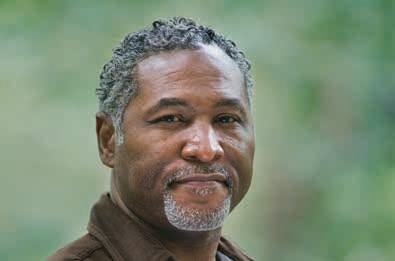
Americans 50 and over decide elections and can force action on the issues that matter most to us.
That’s why AARP Florida has collected the most up-to-date election information for you. You can find out about key voting deadlines, polling places and how to cast your ballot. Make sure the candidates hear from you. Get the latest Florida election information at aarp.org/FLvotes
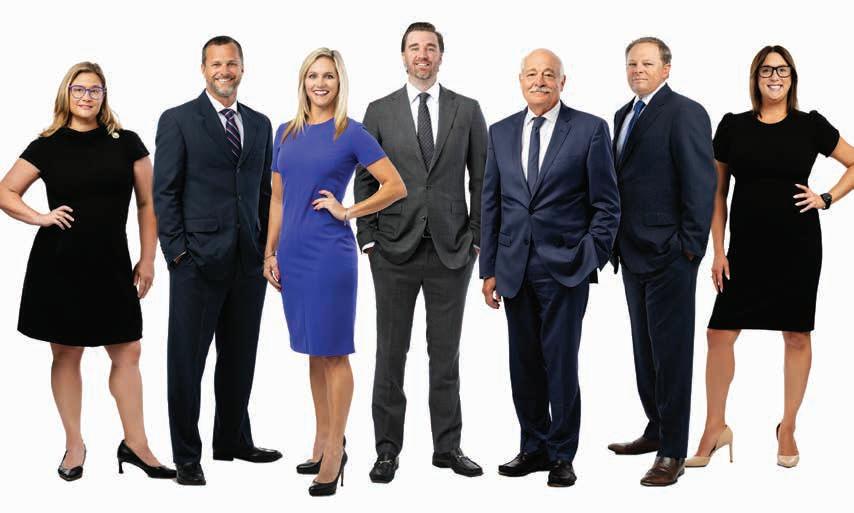
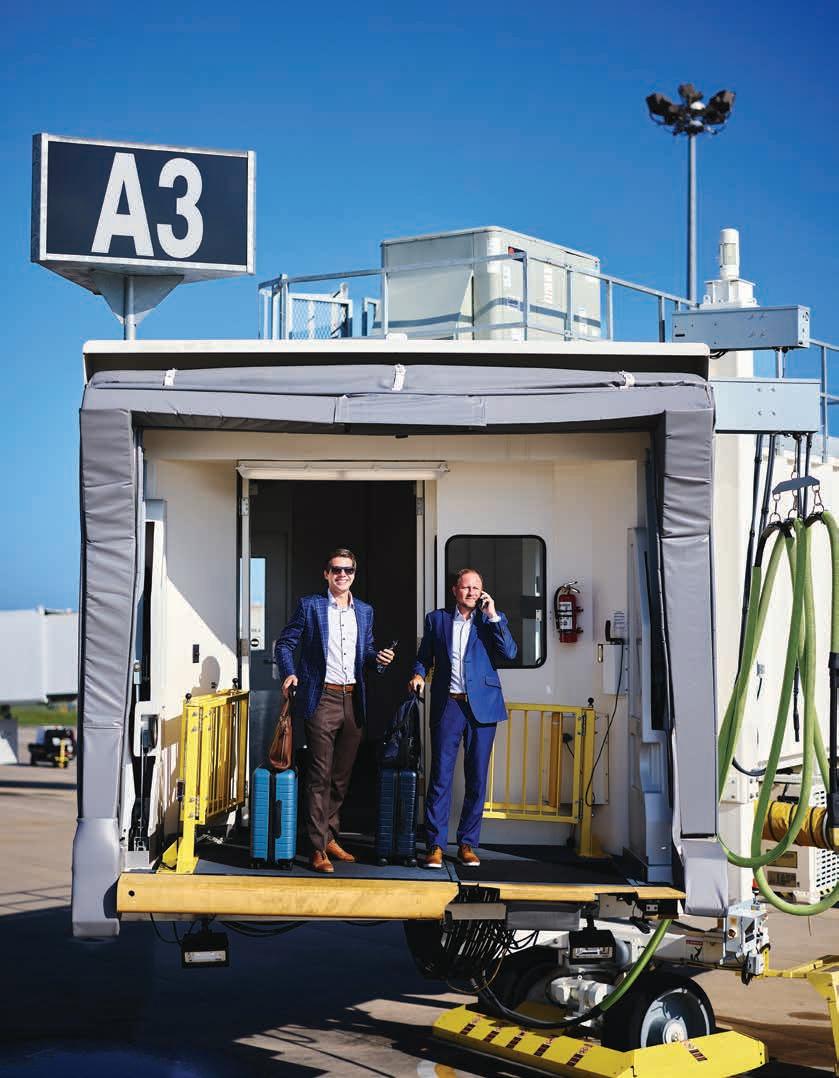
Drew Piers, Partner, Managing Director
Herbie Thiele, Partner, Director of Public Affairs
Describe how you came to be a Great Communicator? [BOTH]
We each were fortunate to begin our careers as interns at Sachs Media, where we learned so much from the firm’s leaders and team of amazing and talented communications pros. The firm has always had an “always on” mentality so right from the start we were able to get involved in important work — in fact, Herbie spent his first weekend as an intern helping to coordinate public hearings for the presidential oil spill commission following the BP disaster! And things haven’t slowed down since then, meaning we have to be always on, ready to respond to opportunities or obstacles wherever and whenever a client needs us. That mentality has allowed us to build relationships and friendships that have been essential in
our ongoing – and always “on” – communications work. Together, we’ve got more than 25 years working at the firm and it’s been quite an adventure!
What’s your go-to stress reliever?
Herbie: When you’re always “on,” I don’t know that there’s truly such a thing as a stress reliever — but it’s so important to have something else to focus on for a change of pace. For me, it’s actually three “something elses” — my 5-year-old daughter Maggie and 3-year-old twins Bennett and Brendan. There’s no better way to get my mind off of work for a while. But my wife Ali and I have learned that in some ways, trying to persuade three little ones to stay on task and do what we need is just a different way of being a communicator.

The always-on mentality can be a grind – what makes it worth it?
Drew: I absolutely love doing the kind of work that truly matters for causes and clients. There are so many clients and causes out there that are changing the world by making a meaningful difference in the lives of people, and by working with them to advance their missions, we get to have an impact on everything from cancer research and food insecurity to health care access and housing affordability. Our team is absolutely stellar, and is motivated to solve problems, make a difference, and consistently deliver the kind of strategic thinking our clients rely on. Leading such a dedicated group makes the hard work worth it every day.


Founder and CEO of Cavalry Strategies


Describe how you came to be a Great Communicator.
I am blessed to have worked with some of the very best in the business, from watching Karen Hughes as a BushCheney intern in 2000, to learning from Kathy Walt with Texas Gov. Rick Perry in 2003, to the Great Kevin Madden on Bush-Cheney 2004, to Curt Anderson of OnMessage — whom I forced to mentor me since 2006 — to the savvy Timmy Teepell in LA in 2007 to Gov. Bobby Jindal himself — the smartest man alive; and of course Rick Scott, the best businessman alive from 2012 and onward.
Who have been some of your most impactful mentors, and how do you pay it forward for the next generation of communications leaders?

Curt Anderson, OnMessage, Inc. I still force him to give me advice whenever I can. He is loyal, he is smart; he is usually right — usually. He does what he believes in even when it’s not popular.
Sen. Scott. He will always give me advice when I ask and tell it to me like it is, when most people would probably sugarcoat it. He is probably also the very top person in my life who has always wanted me to succeed and put his own name on the line to help me.
And, CFO Jimmy Patronis, who teaches me how to be more likable (no small task!) and handle everyone like a customer in a restaurant: be respectable, be of service, and help them have fun!
Paying it forward, I will mentor anyone who asks. I will always help my staff and interns, even when they move on from their time at Cavalry and I will help mentor anyone else who wants advice. If you are reading this, call me! (I would be nowhere without those who helped me. I want to be that difference maker for someone else too.)
If you could ditch the 24/7 grind, what 9-5 job would best suit you?
Maybe I could help my wonderful husband live out his dream of running a burger food truck from our Airstream on the beach. But, if I truly got to pick any job in the world, I would sing in musicals on Broadway.
















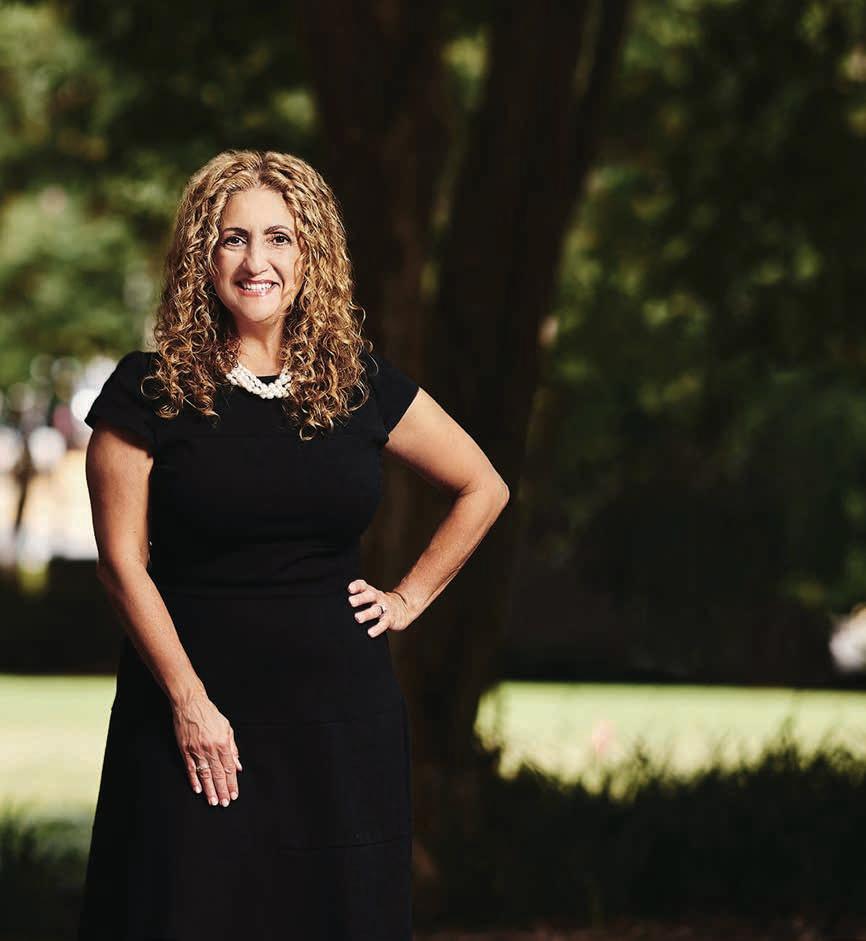
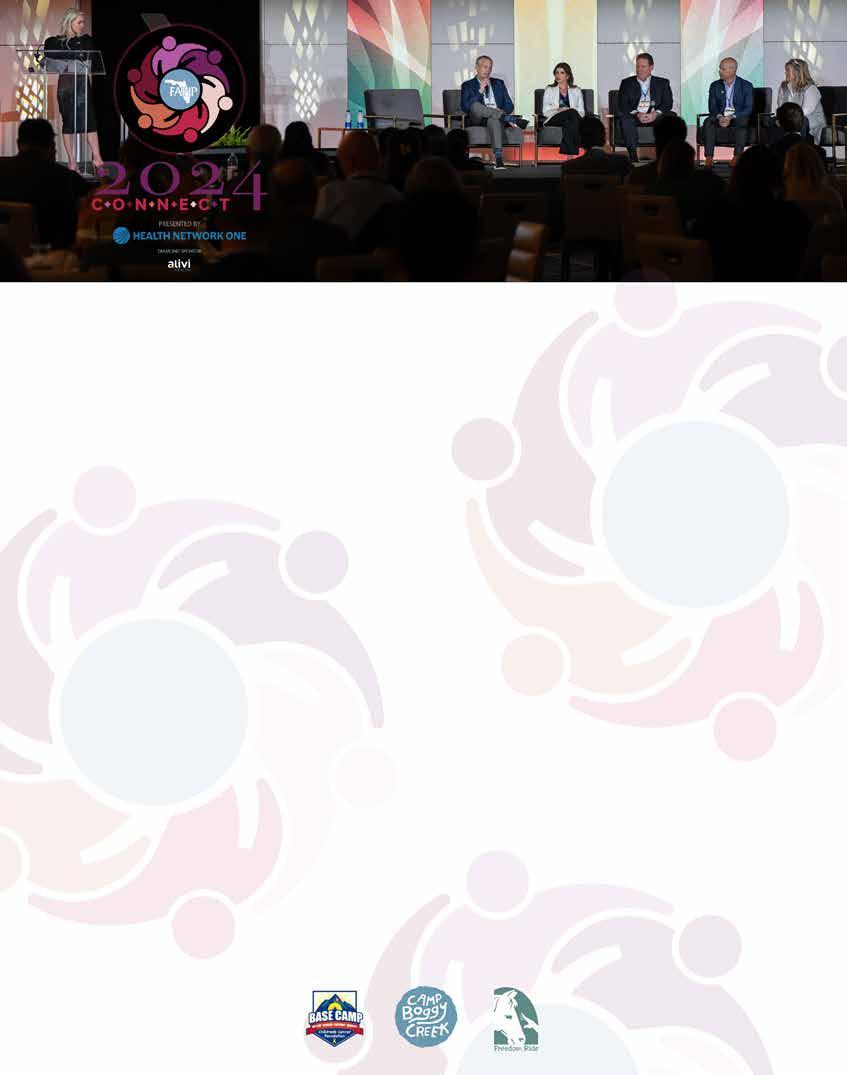

60, Tallahassee
Gunster, of Counsel in the law firm’s Government Affairs, Healthcare and Appellate Practice
25-year career in Florida Government
As told to Rosanne Dunkelberger
HER ORIGIN STORY:
It’s one of those stories you could not have dreamed up. My father, who was from Ohio, worked for Firestone from the time he was 19 to when he retired at about 57ish. As part of that experience for him, he lived and worked for the better part of 20 years in Liberia where Firestone, I want to say since 1900, has produced rubber.
My mother, who was from Guyana, South America, had been living in London, studying nursing. And as the story goes now — obviously I wasn’t there to witness this firsthand — she went to Liberia to marry a Liberian guy that she had met. For a variety of reasons … that didn’t work out, my mother decided she needed to get a job to save some money to get herself out of Liberia and wherever it was that she wanted to go. She took a job in a furniture store in downtown Monrovia. And my father came in one day to buy furniture.
And that’s how two people, not from there, from completely different backgrounds, from completely different places in the world, met in Liberia.
My dad was retired by the time I was born and we lived there until 1973. I was nine-ish and my father decided he wanted to move to St. Petersburg to be permanently based there where his favorite sister, Ida, had retired. We landed at JFK airport on July 4, 1973 and flew into Tampa International Airport. I’ve been really a Florida girl, a St. Petersburg girl, a Tampa Bay area girl ever since. I’ve lived in Tallahassee since 1999 but my heart always will be in the Tampa Bay area.
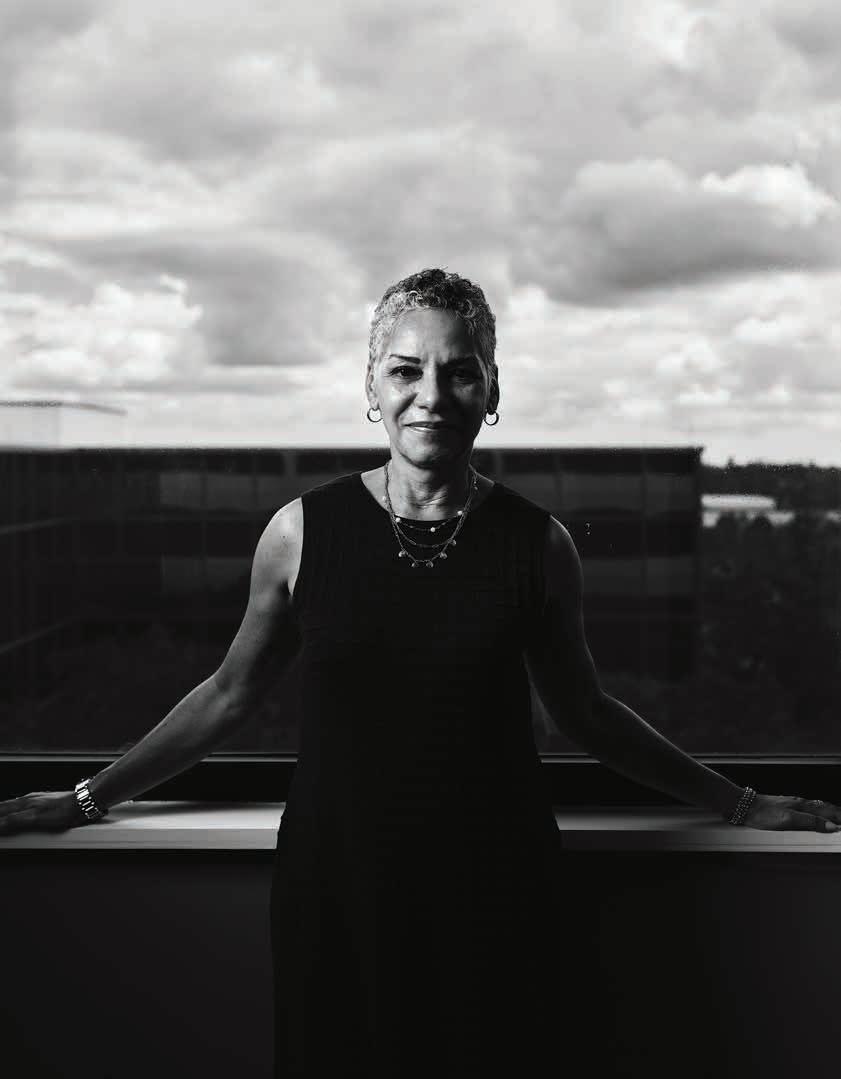
“I like to empower the people who work for and with me to do the things, come up with the solutions.”


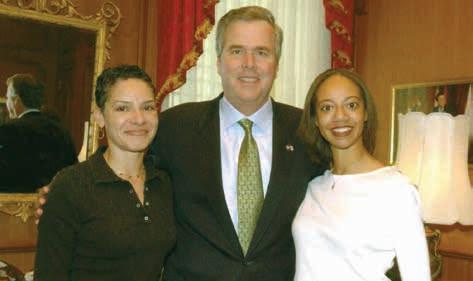
poses with Marstiller on her last day as Gov. Jeb Bush’s deputy chief of staff
I decided I needed a graduate degree that would open more professional opportunities for me than my business degree could. And that was why I went to law school. I had no real desire to practice law, but it was during those three years that I really came to enjoy the law for what it is and what it stands for in our society. And then in my last semester, I clicked with an appellate practice course that I took. And I thought, “this is what I want to do if I’m ever going to practice law.”
Immediately after graduating from law school, I was a law clerk for now-retired judge Emerson Thompson, Jr. in the Fifth District Court of Appeal. He was an incredible first boss to have and he has been a mentor and friend to me ever since. I did that for three years and then I saw an advertisement in the Florida Bar News that the Agency for Health Care Administration was looking for an appellate attorney — strictly appellate. Those are rare positions because normally if you want to do appellate work, you do have to do a good deal of trial work before you work your way up into an appellate-only position. I came to Tallahassee to interview and was hired the same day on the spot. Five weeks later, my daughter and I moved to Tallahassee in July of 1999.
I worked as an appellate lawyer for a couple of years and then I saw another opportunity. The Governor’s office did the thing that it rarely did. And it advertised for two assistant general counsels in the General Counsel’s office.

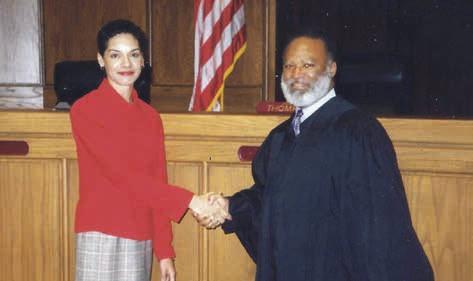
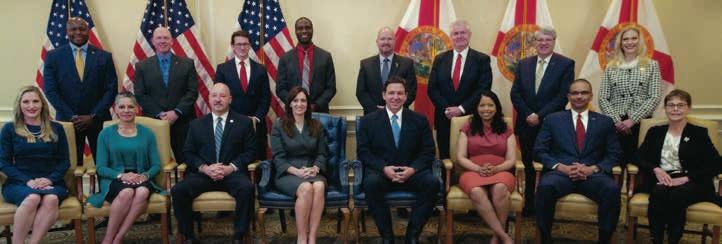
(Top to Bottom) Her daughter holds the Bible as Marstiller is sworn in as a Judge on the First District Court of Appeal by Supreme Court Justice Charles Canady. Marstiller clerked for Fifth DCA Judge Emerson Thompson, Jr., who congratulates her after she was sworn into The Florida Bar. A group photo of Gov. Ron DeSantis and his agency heads. At the time, Marstiller (front row, second from left) was Secretary of AHCA.

Tampa Electric provides 99.98 percent service reliability in blue skies and gray by working year round to strengthen our system against extreme weather.
HERE'S HOW WE’RE REDUCING OUTAGES AND RESTORING POWER FASTER AFTER STORMS:
• Investing in technology to automatically and remotely restore service without sending a crew into the field
• Moving key facilities away from potential storm surges and flooding
• Upgrading critical systems that allow us to monitor, control and optimize energy delivery
• Investing $150 million annually in our Storm Protection Plan to strengthen and bury power lines, maintain tree clearance and improve substations
Now-(FloridaSupreme Court) Justice Charles Canady was the general counsel at the time. He’s the one who hired me into the (Jeb) Bush administration as an assistant general counsel.
I learned so much in that office and in each successive position that I was privileged to get. I learned about management. I learned about policy. I learned leadership. I started as general counsel for DMS managing 20-something lawyers, then went to the former State Technology Office as State CIO running an entity of 250 and then to Secretary of DBPR with, at the time, over 1,000 employees, to DJJ and AHCA, both even larger.
It was a progression. In my opinion, it’s really the best way to learn government, to understand how the branches work together, to understand what it means to implement statutes and policy. But also to see what government does and what the agencies do and what the people inside the agencies do, how those things matter to individual lives in Florida. I think that it’s an important thing for government leaders to see and experience. It makes one a more empathetic and understanding leader.
I have been confirmed by the Senate three times. I was confirmed as secretary of DBPR under Gov. Bush’s administration. And then when I joined Gov. Ron DeSantis’ administration, I was first confirmed as secretary of the DJJ (Department of Juvenile Justice). And then the third confirmation was as secretary of AHCA (Agency for Health Care Administration).
I’ve done a couple of full circles. Starting and completing my Tallahassee career at AHCA was definitely a full circle. And for me being appointed judge on the First DCA was kind of completion of a circle because I started as a law clerk in an appellate court and by the grace of God, was appointed to an appellate court. Judge Thompson and Justice Canady were part of my investiture ceremony. It was just amazing; I have been blessed.
One of the things that I think both my parents gave me is that they both were very much kind of Jack and Jackie of all trades. They were able to kind of plunk down into any situation and make a success of it and do it well. So I got a little bit of that from both sides of my gene pool and the way it has manifested really in me is that I’m not only interested in a lot of things, but I’m able to learn the substance quickly and do things with that. I think what you’ve seen after my time in Gov. Bush’s administration is I’ve gone into my positions to do whatever it is that needs to be done. And when I feel that

that thing is done, then I moved on to do other things — on to the next challenge, whatever that may be.
My work at DJJ was the most meaningful and fulfilling work that I have done in state government. It seems like an odd one to pick. It was difficult. I was very aware from the time I started that position that I was responsible for other people’s children in circumstances that are not positive for the kids or their families. There was always a risk that something horrible could happen.
The mission grabbed me, the team of people working in the agency were great to work with and worked so incredibly well together. When it came time for me to move on, it was bittersweet because I knew that I would miss that work and that I would miss that team. But, you know, when your boss asks you to take on another assignment, you go.
HER MANAGEMENT STYLE:
I like to empower the people who work for and with me to do the things, come up with the solutions. I can’t tell you how many times I have said to various leadership teams, “Look, if I have to make all of the decisions for you, I’m not sure that I need you.” And I really have worked hard to create an environment in which my team trusts one another to push back on things, push back on me. I’ve tried as well to make sure that people in the agencies who aren’t necessarily in leadership feel valued and appreciated. I’m not talking about going around cheerleading because that is not my jam, but making sure that their supervisors are respectful to them and treating them well.
I think people who are working hard in government agencies care very much
about the work that they’re doing. But I think very often leadership doesn’t help them to see the bigger picture and help them to understand how truly valuable their work is, and what they’re doing at any given moment is affecting the lives of the people outside government because those are the people that we’re here to serve.
I left Facebook a long time ago because it was just too much. Now I’m on X and LinkedIn.
Back when Twitter was, you know, Twitter, and it was fun, I was on the court and I joined in 2011. I believe I was the first judge in Florida to be on Twitter. I think my colleagues were all afraid of it for whatever reason. But I saw it as something fun to do.
My persona and my conversation on Twitter has always been to try to keep it light, try to keep it fun. One Friday morning I did a tweet about it being Friday, TGIF, and I did a #fridaydance and I included a gif of somebody dancing. Over time people started to join in and it became a Twitter dance party. The other thing that I do from time to time are
sort of motivational, inspirational tweets with the hashtag #JustForToday.
I have retired from state government. Technically I’m a pensioner. But there are things rattling around in my brain that I’d like to do to really build on all the experiences that I’ve had and do something that people will find meaningful. I would love to somehow take all that I’ve learned about leadership (and) figure out how to package it in a way that is helpful and meaningful to people who are coming up the leadership ranks, be it in the private sector or the public sector. Frankly. I think folks in the public sector need a lot of leadership training. I want to do that and I want the flexibility and time to really think it through. Because I’m still working full time, I don’t have that space yet to really think about what I want to do and how I want it to look and what the hook will be.
I’m sure there are people I have come in contact with over the course of my career in law and government who have looked at me and judged me a particular
way because I’m a woman or because I’m a black woman. But I have never conducted my life in a way that takes any of that into account. Call it naive, but I just haven’t. I’ve always hoped — and it’s been my experience — that the people who matter assess me based on my experience, my talents, my competence and my ability to do whatever it is that I’ve been asked to do. Everyone else, whatever perspectives they might have, haven’t affected my career at all. I don’t feel that I’ve had to fight to be seen and fight to earn any particular position.
I hope young women coming up — and particularly minority women — can look at what I’ve managed to do over the last 30 years and say to themselves, “OK, I’m going to prepare myself with education and experience for whatever might be out there and know that just like Simone from St. Petersburg, who was nobody from nowhere, if she could accomplish these things, so too can I.” The entire world isn’t against you.
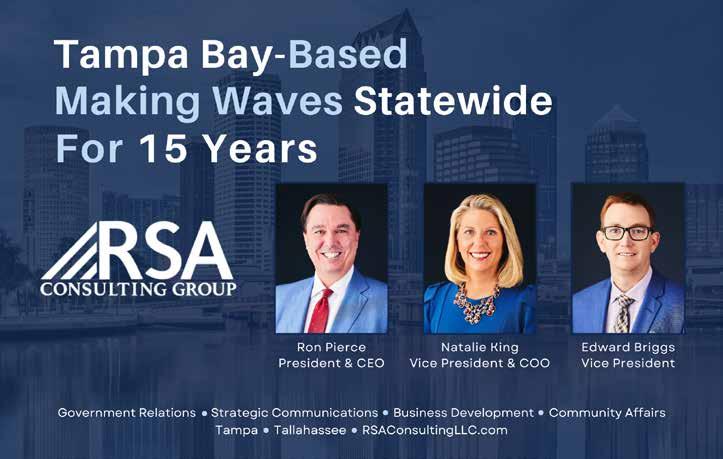
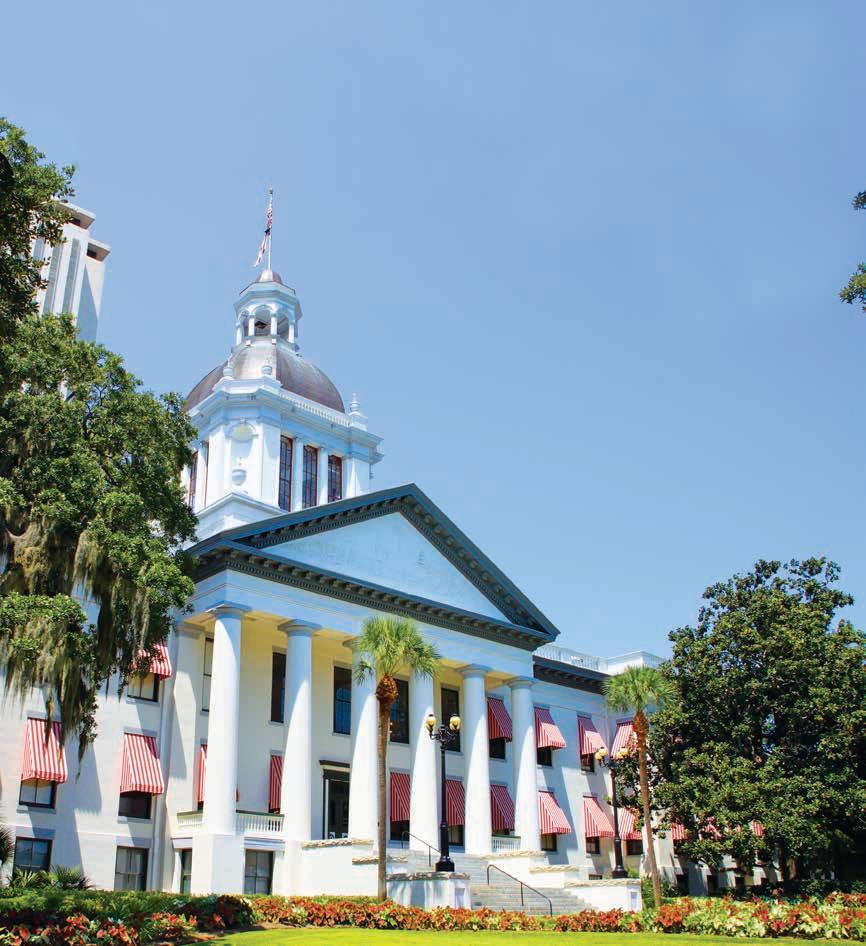
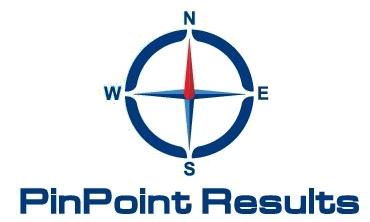

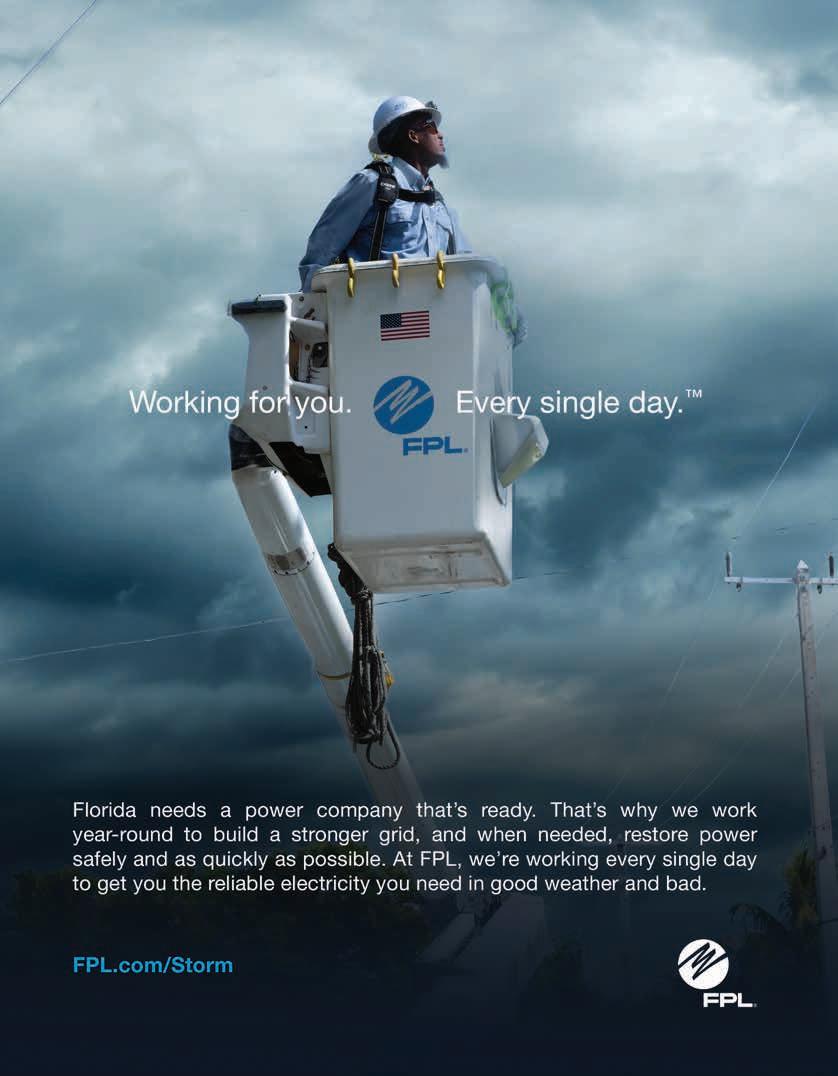
M a d i s o n ’ s I n d e x

Florida is home to the world’s first and only flying shark. A semi-truck crash carrying four sandbar sharks ejected a single shark, which flew across I-95 for a brief but glorious three seconds. Unfortunately, this circus act cost the shark its life. St. Petersburg was named when its founders flipped a coin to decide whose hometown would name the new city. The other option? Detroit.
Once a year, thousands of Floridians gather at the state line to toss dead fish across the Florida-Alabama border for the Annual Mullet Toss. The current record, set in 2004, still stands at an impressive 189 feet and eight inches.
It’s illegal to own an alligator without an exotic animal license. If you do own an alligator, though, you're required to pay the parking meter when you tie it up outside.
Following various conflicts with the state and federal government, the Florida Keys temporarily declared independence as the “Conch Republic.”
Florida has its very own Bigfoot, known as the Skunk Ape. This creature supposedly roams the Everglades, emitting a skunk-like odor and terrifying campers.
Be careful where you throw your alligators. A man in Palm Beach was charged with assault with a deadly weapon when he threw an alligator through a Wendy’s drivethru window.
The Florida State University “Flying High” Circus is one of just two collegiate circus programs in the U.S. and has gained worldwide recognition for its excellence and creativity.
Florida boasts one of the highest concentrations of Bald Eagles in the lower 48 states, second only to Minnesota.
Former Florida Governor Lawton Chiles once walked across the state from Pensacola to Key West as part of a U.S. Senate campaign.


Software for political campaigns, lobbyists, committees, non-profits and more.
